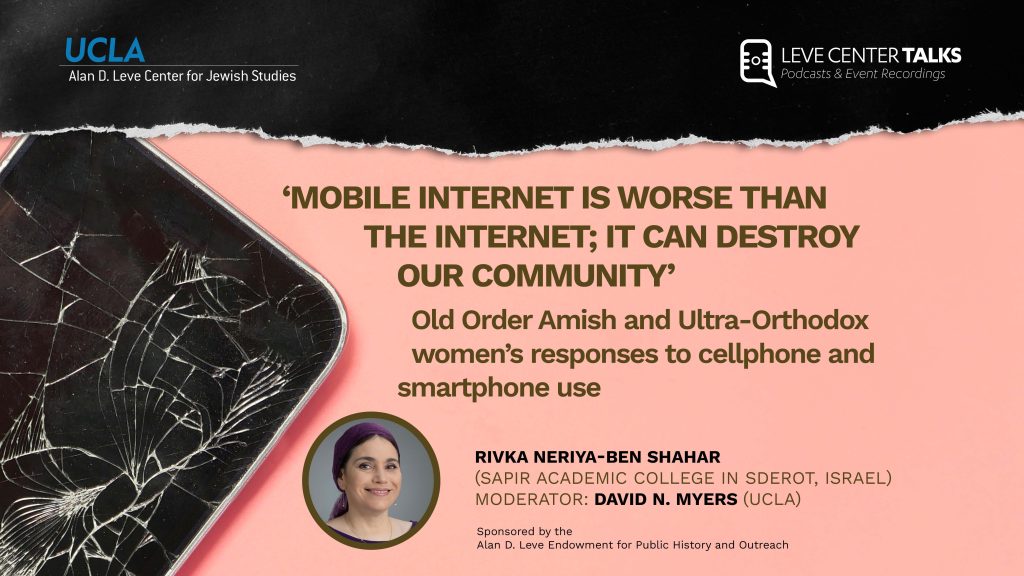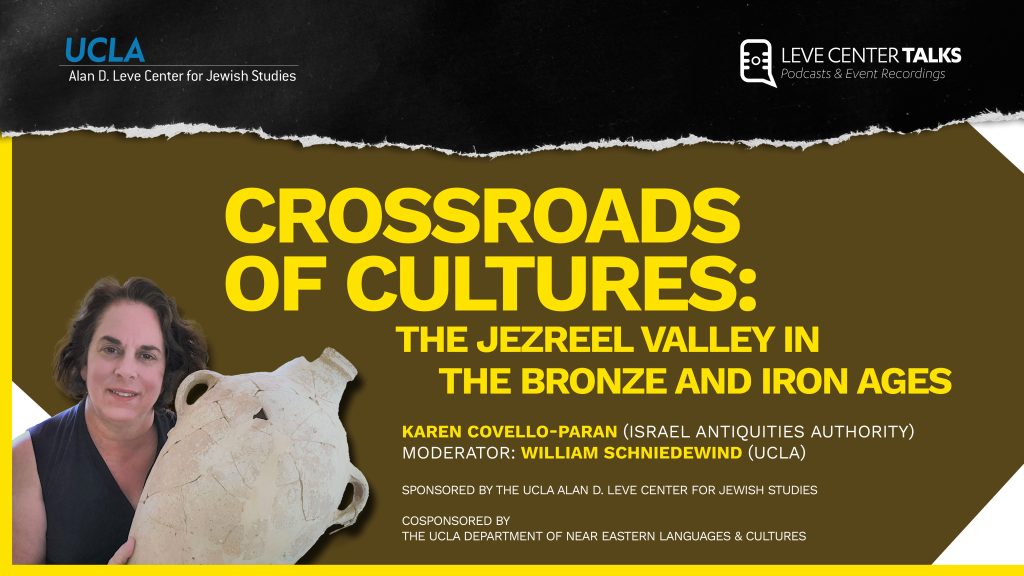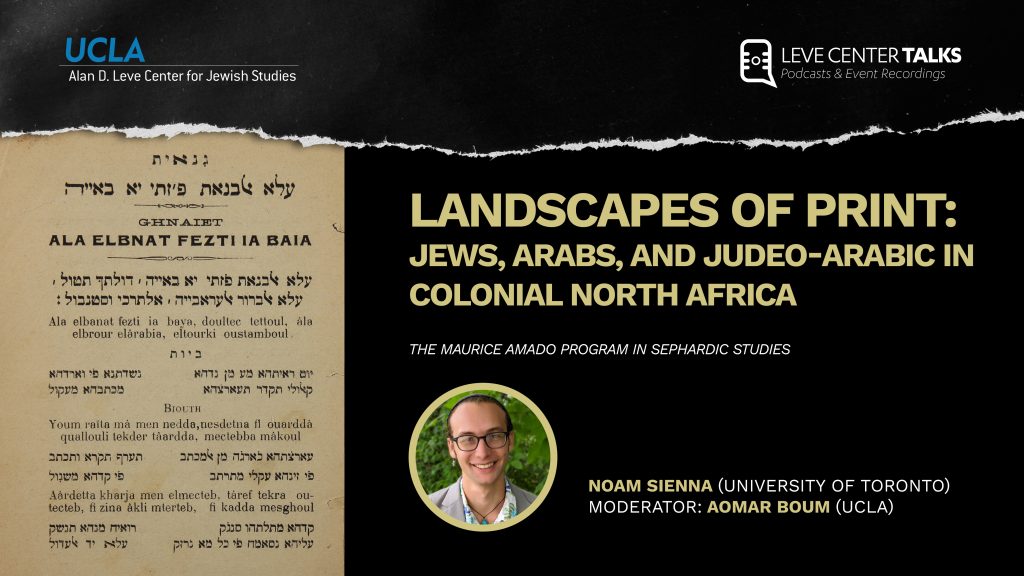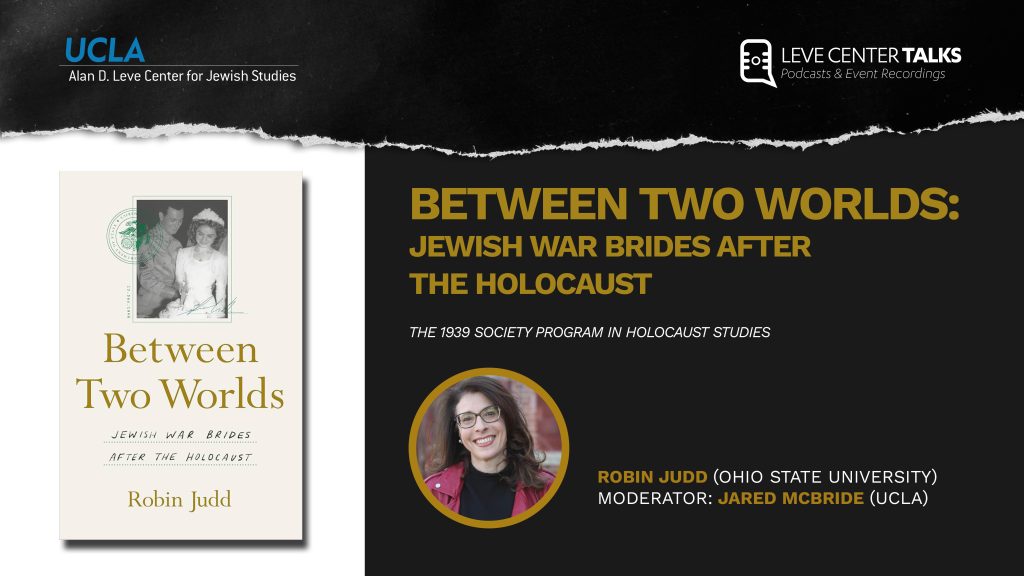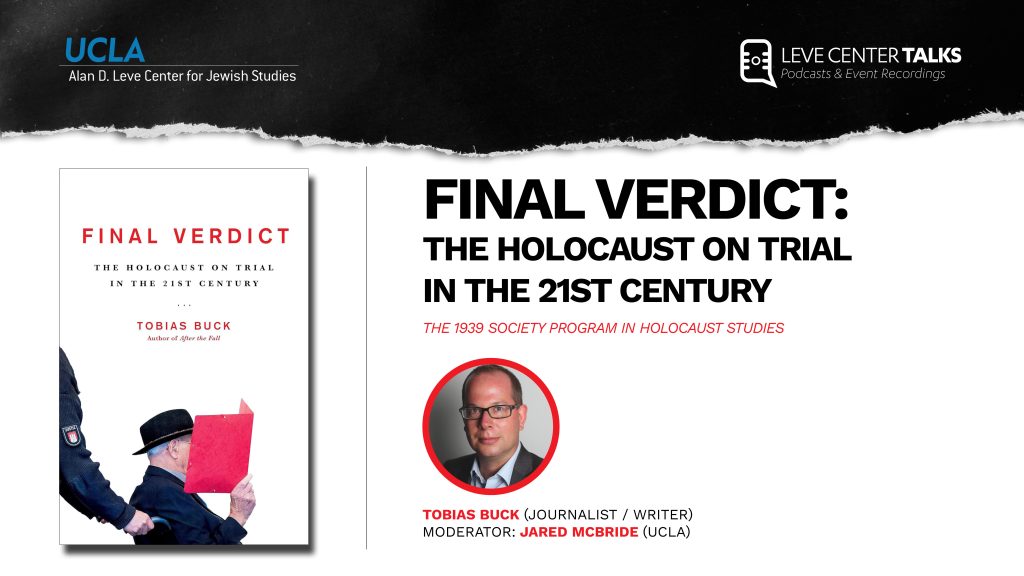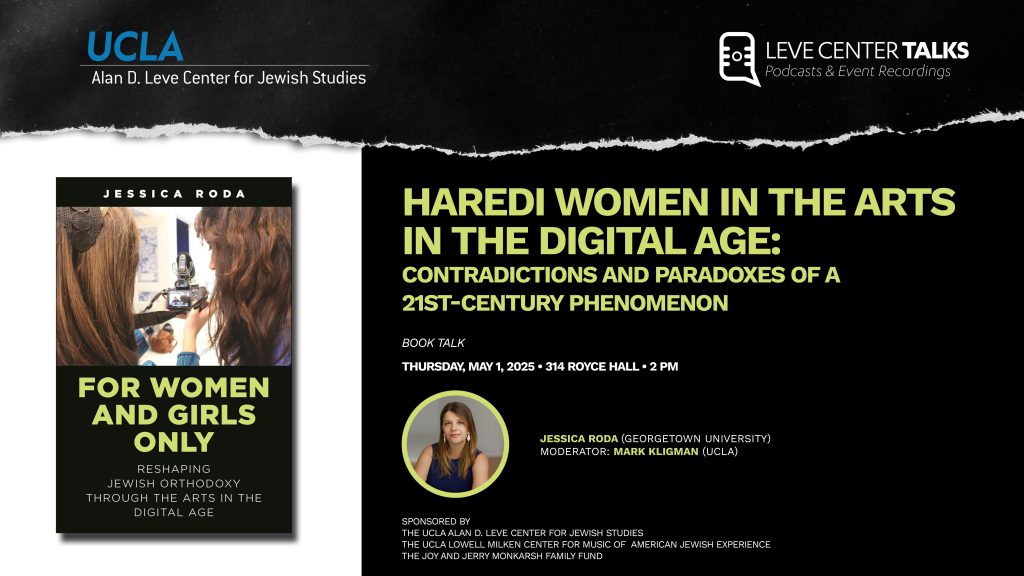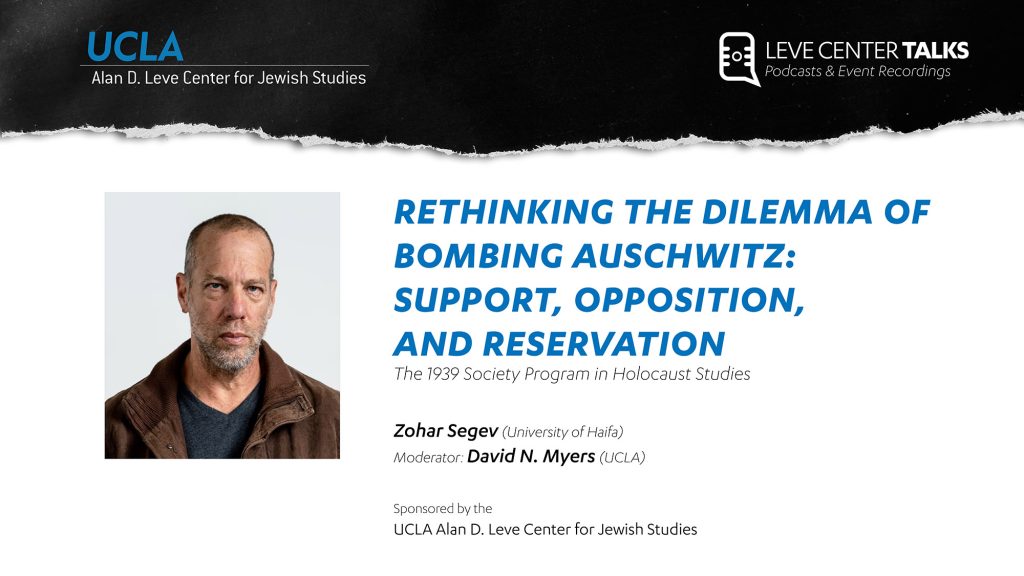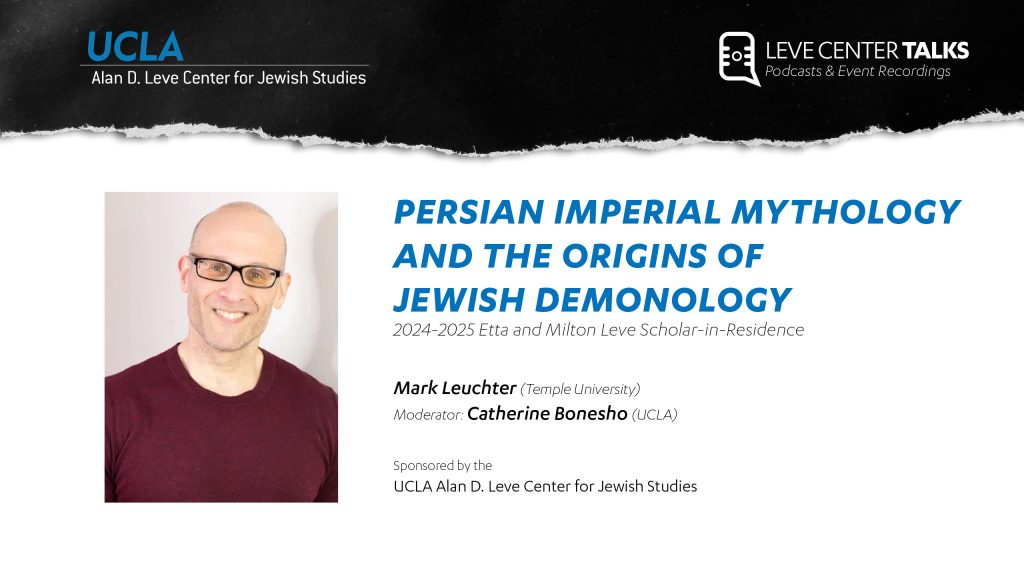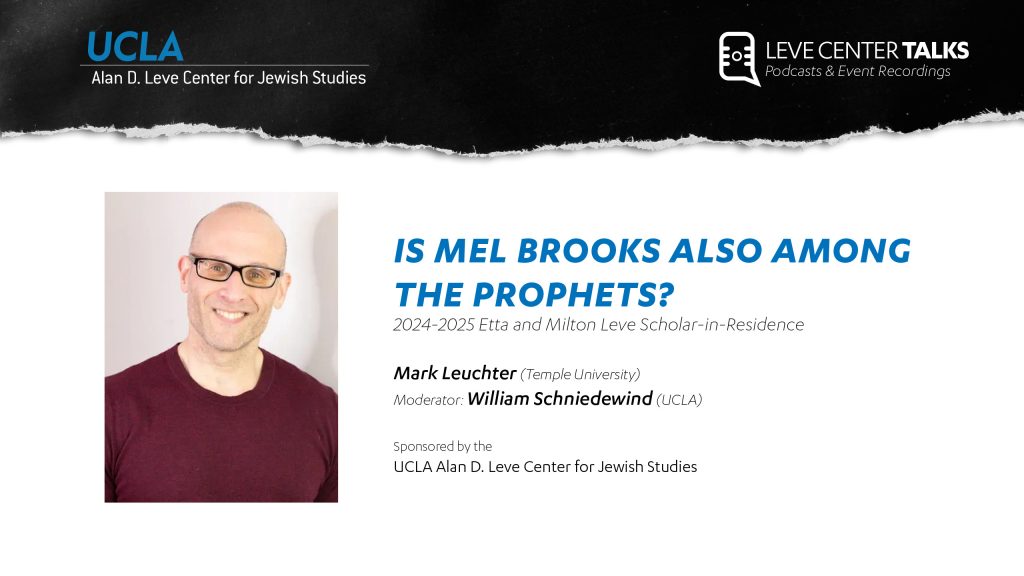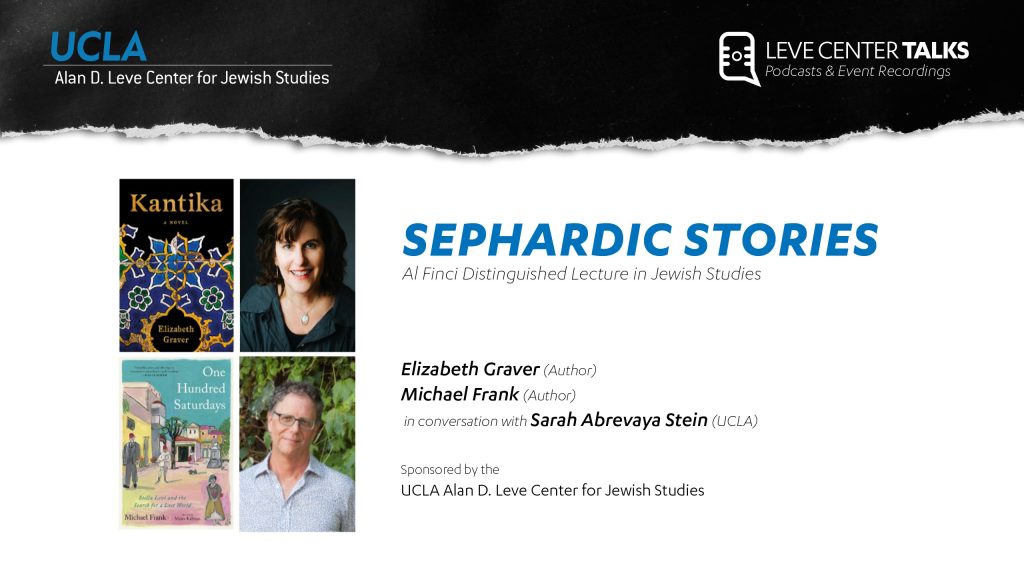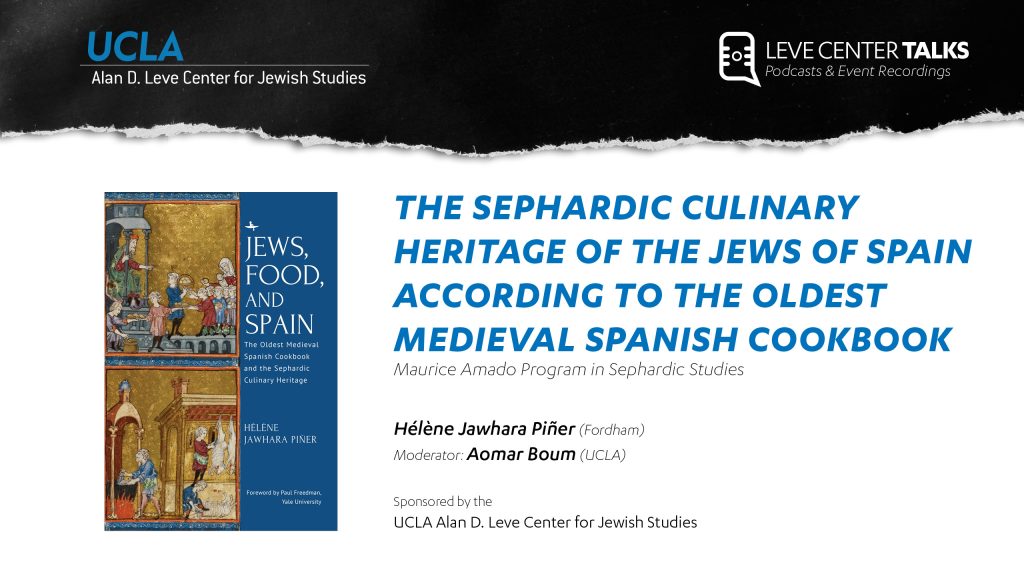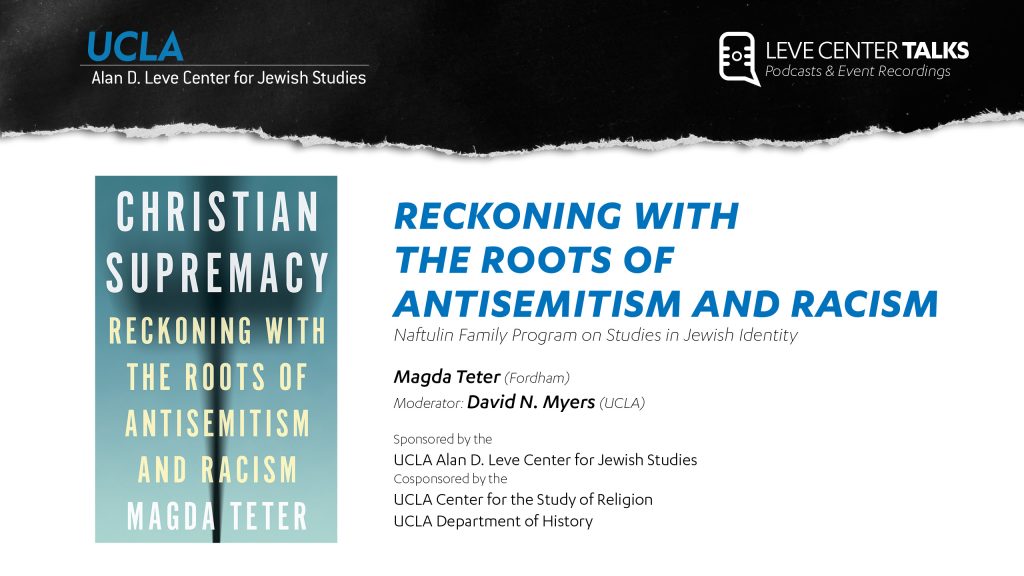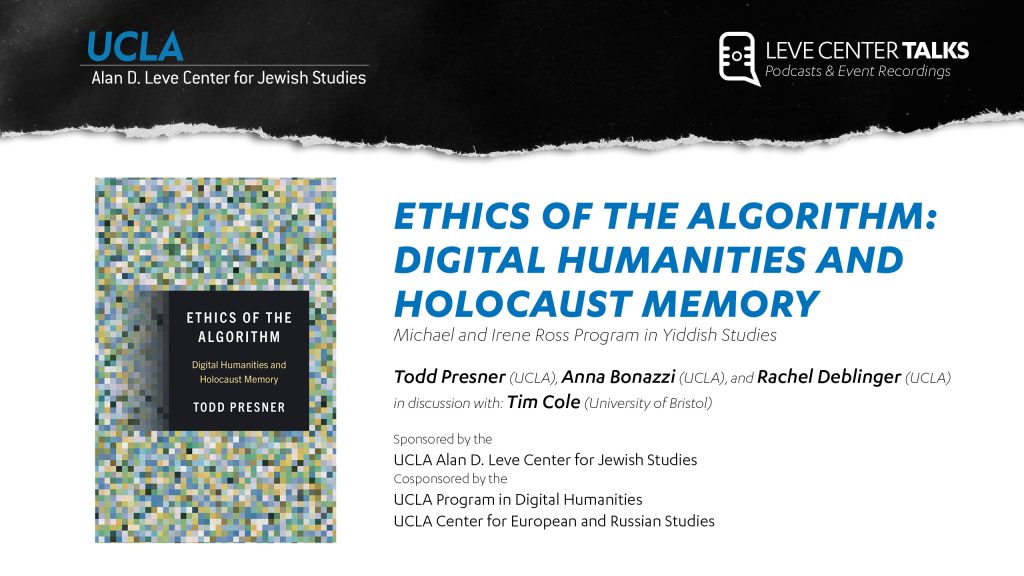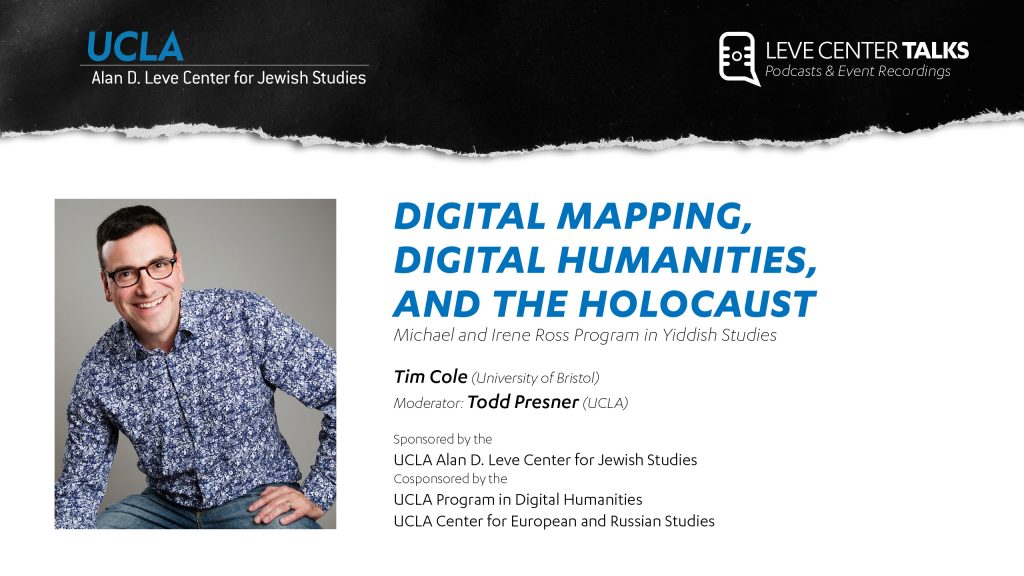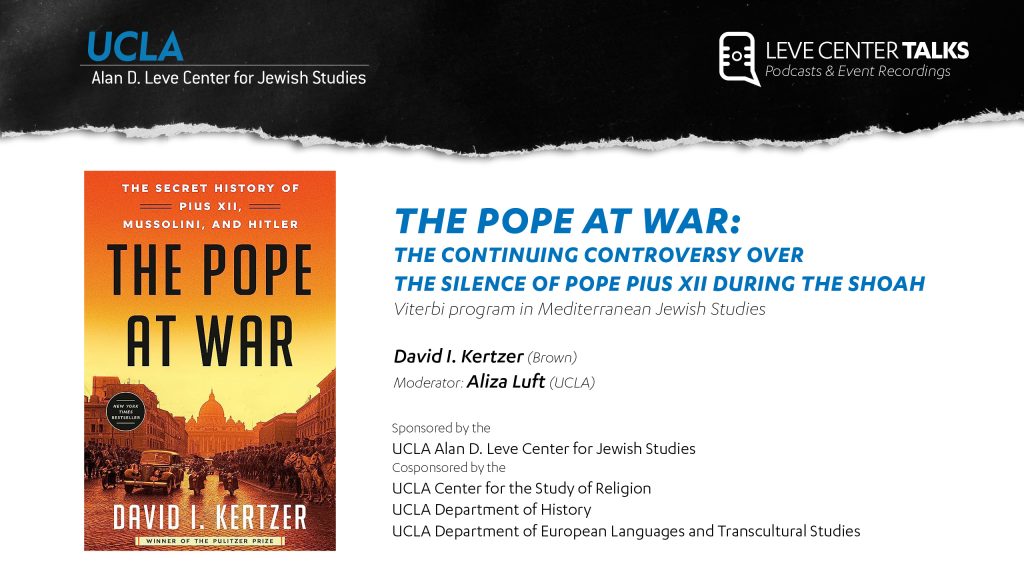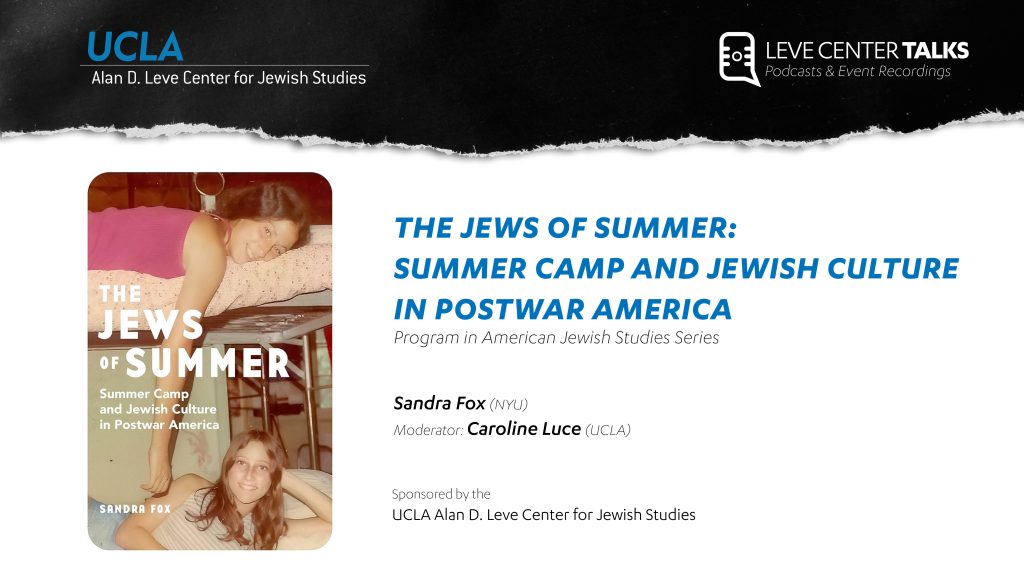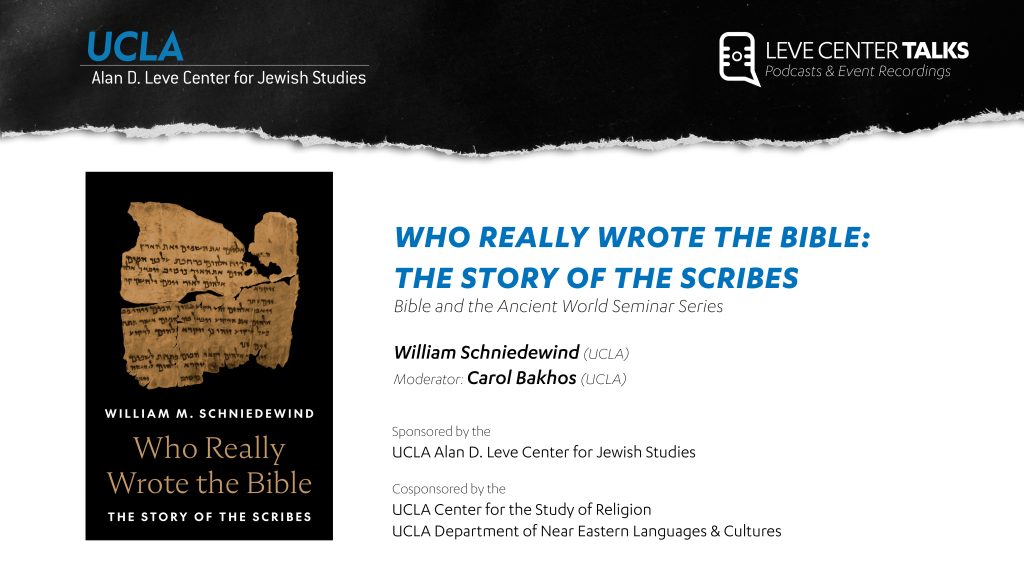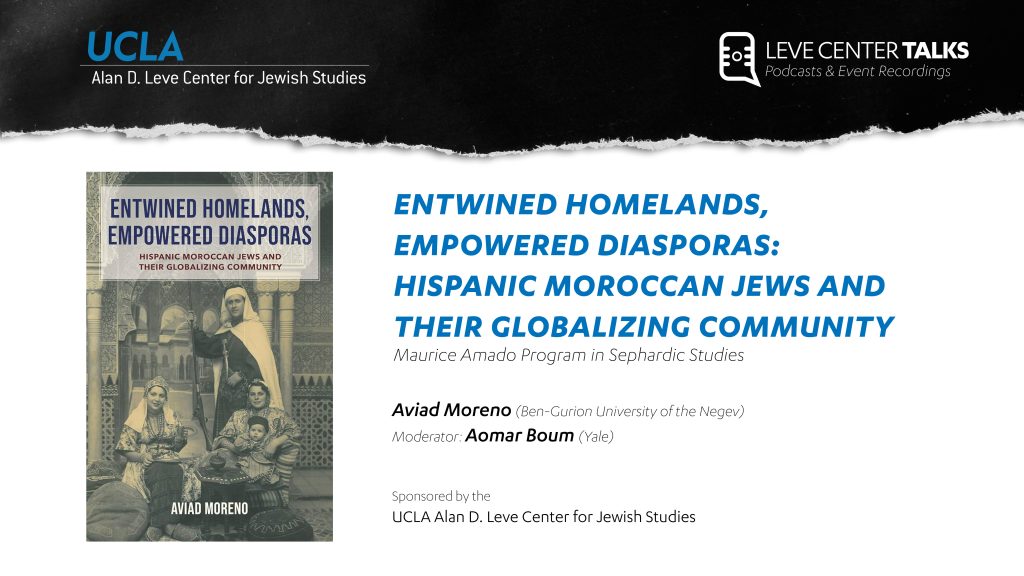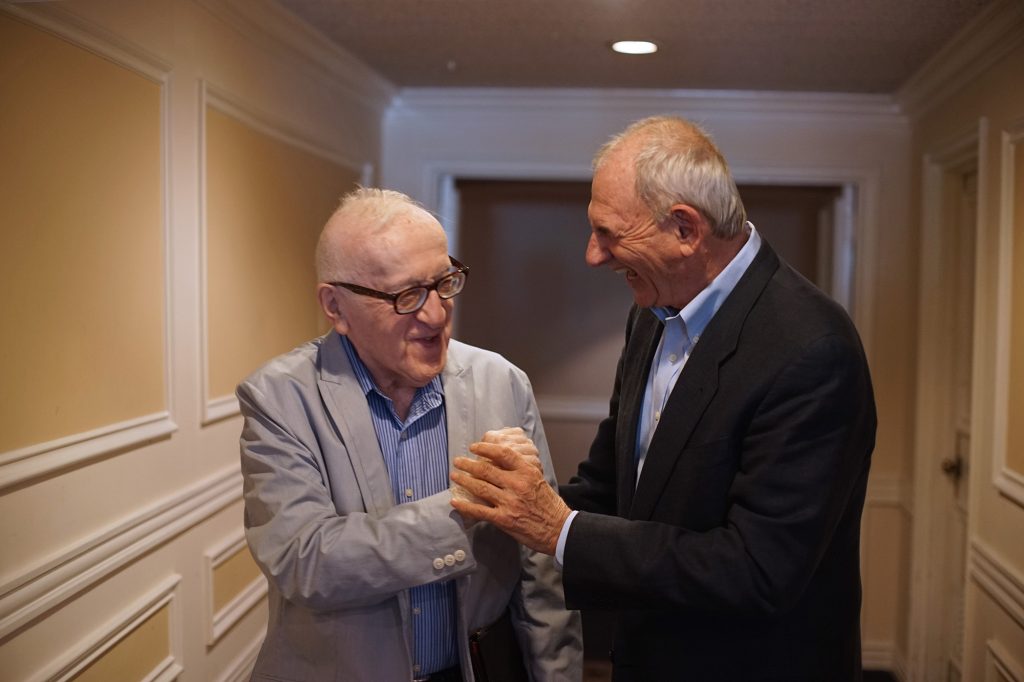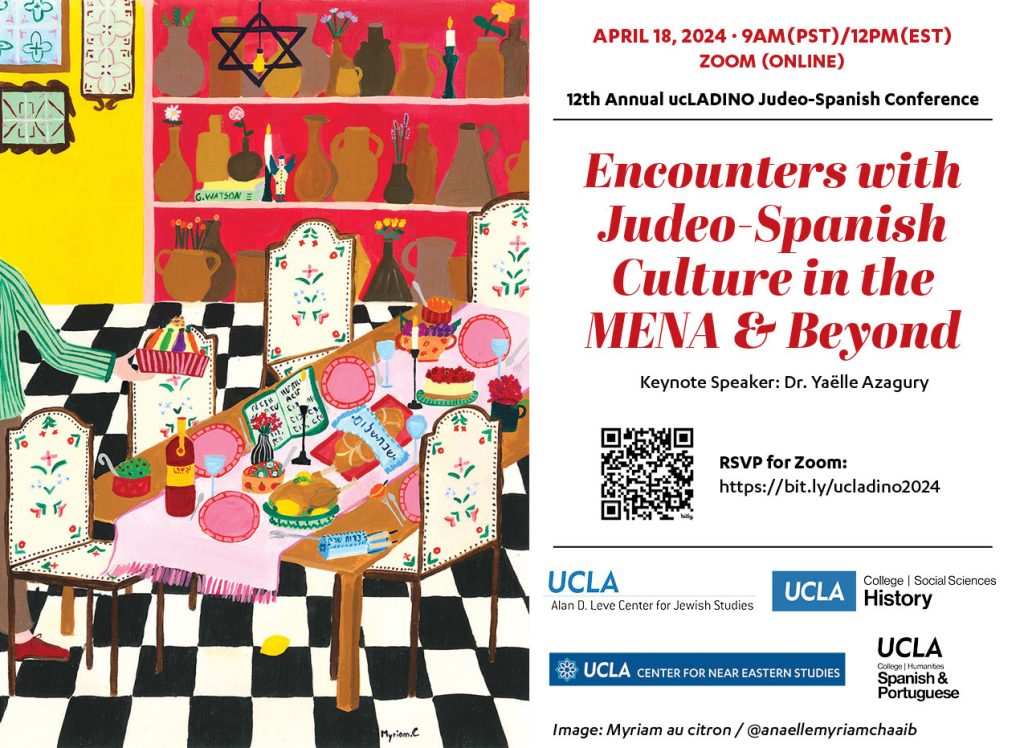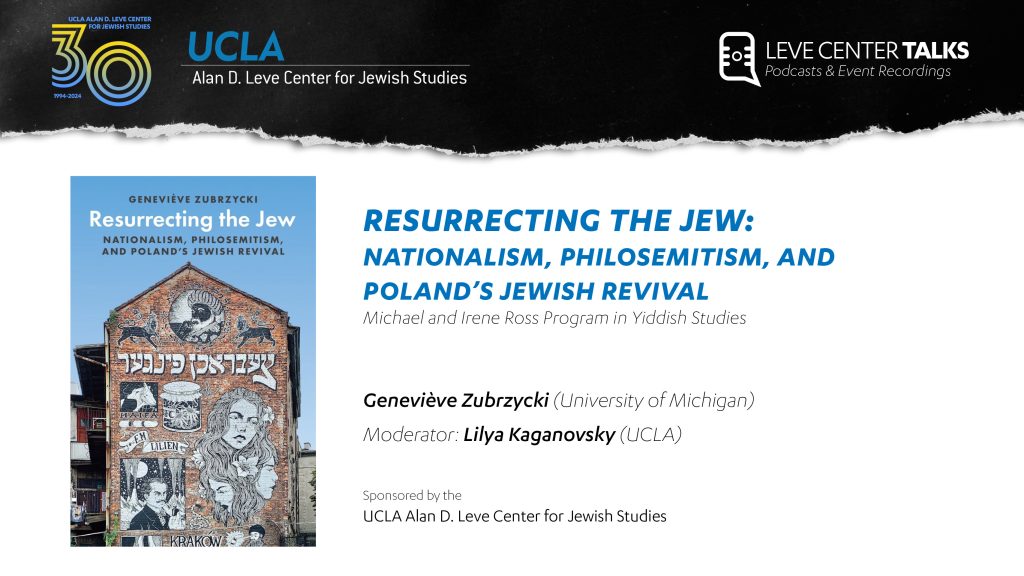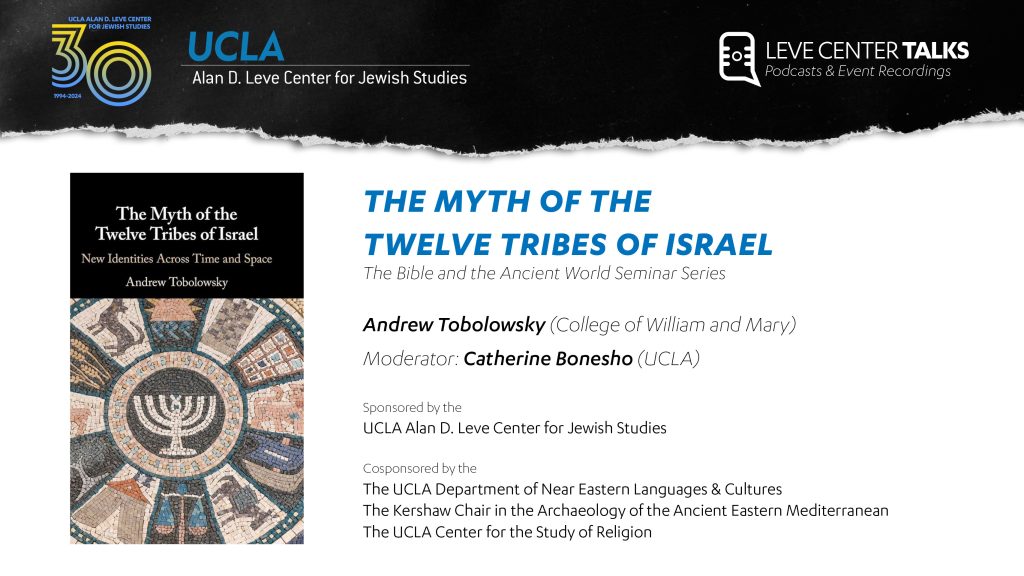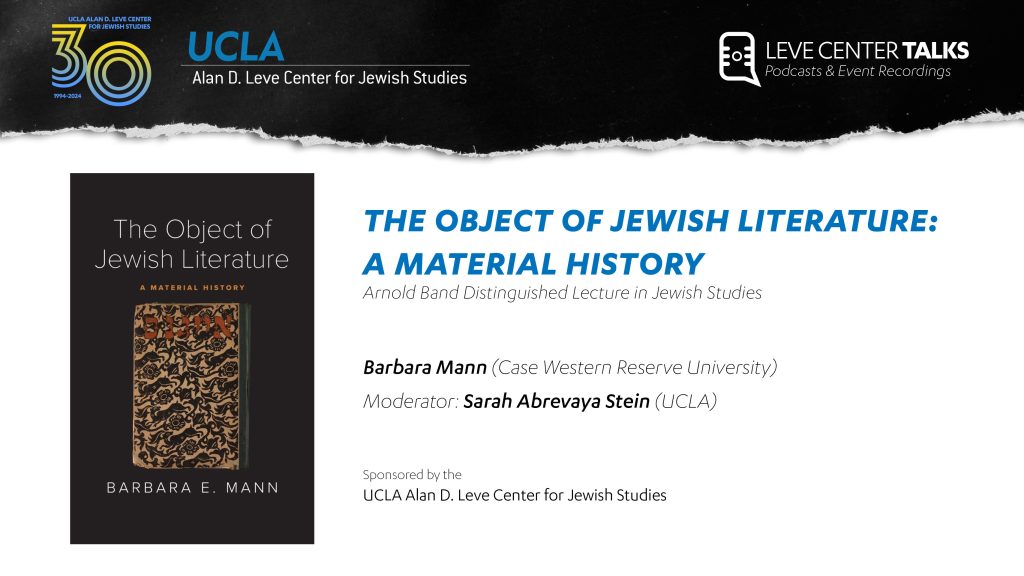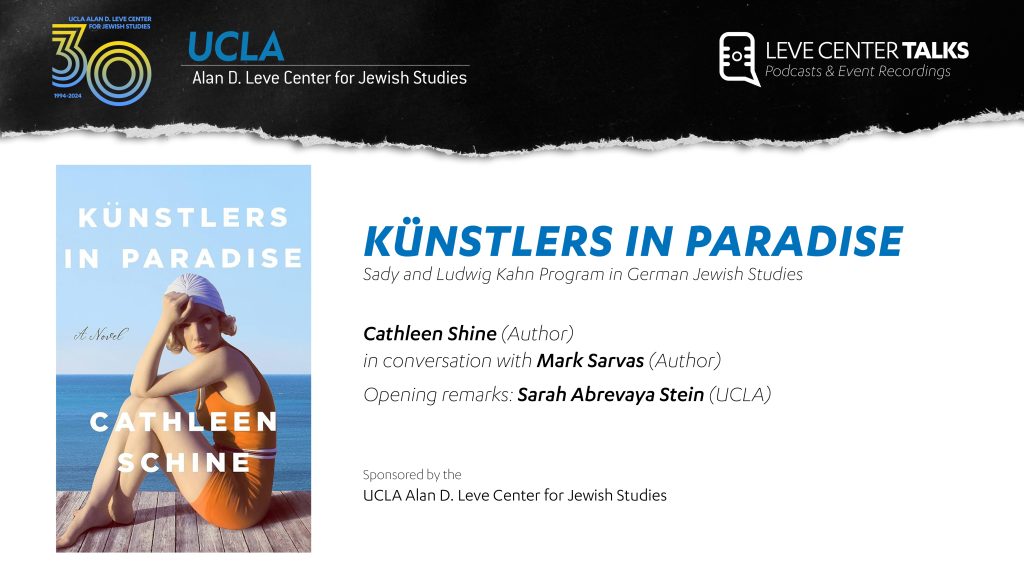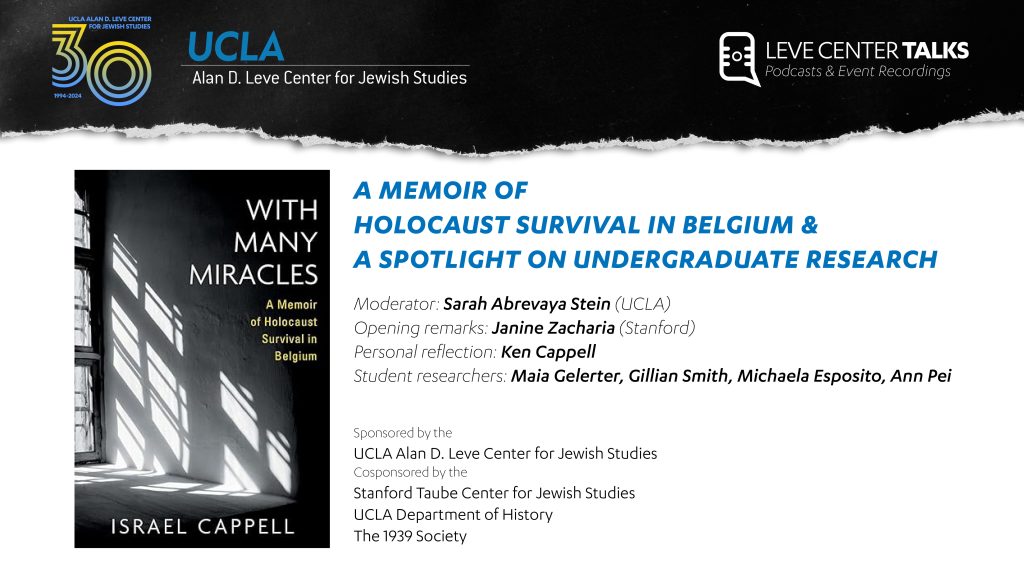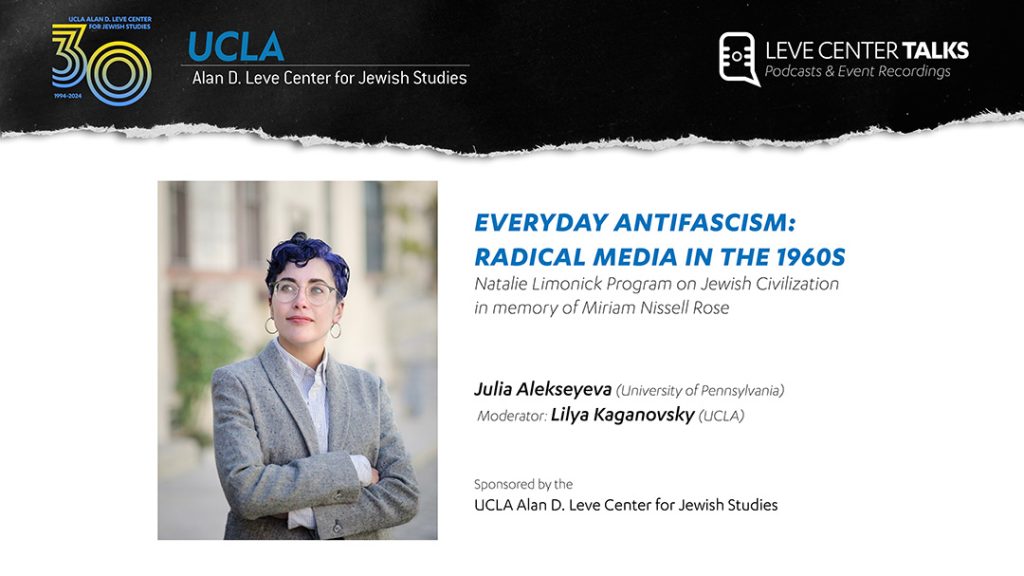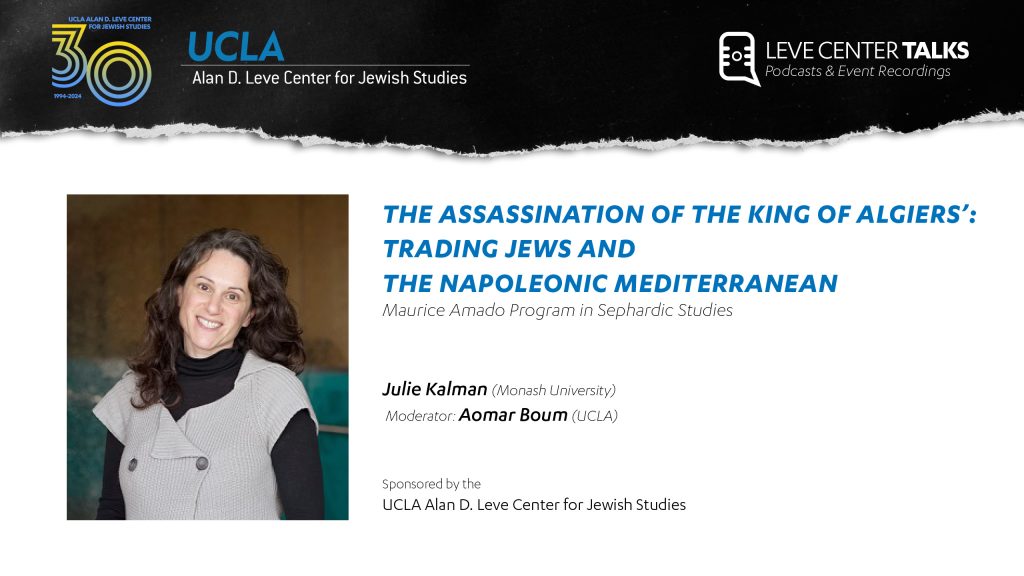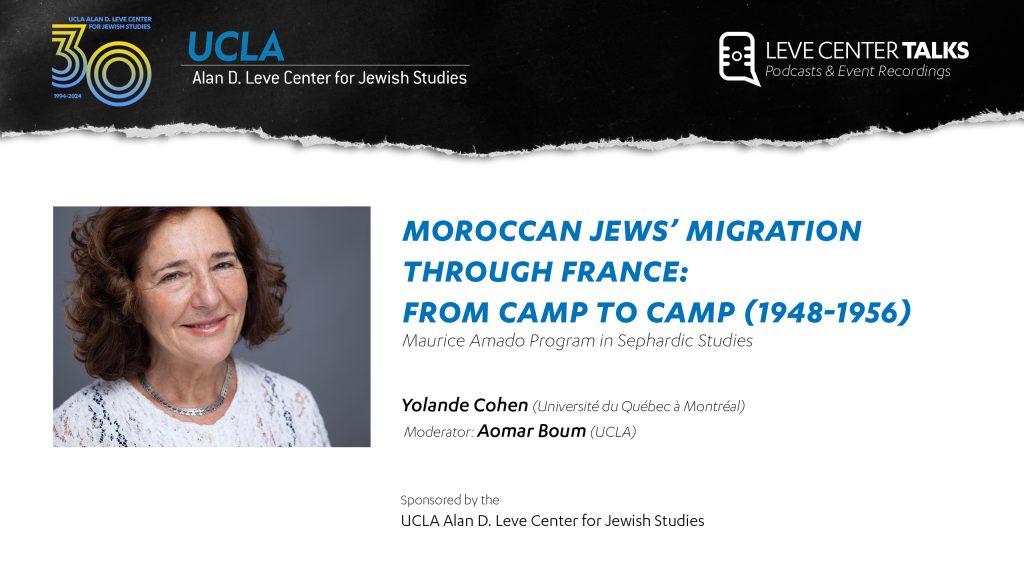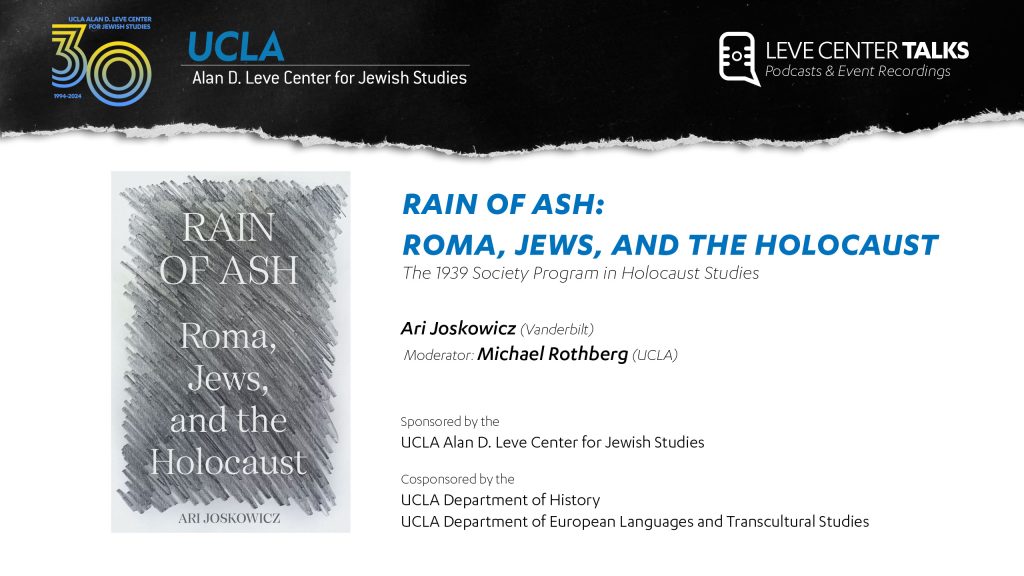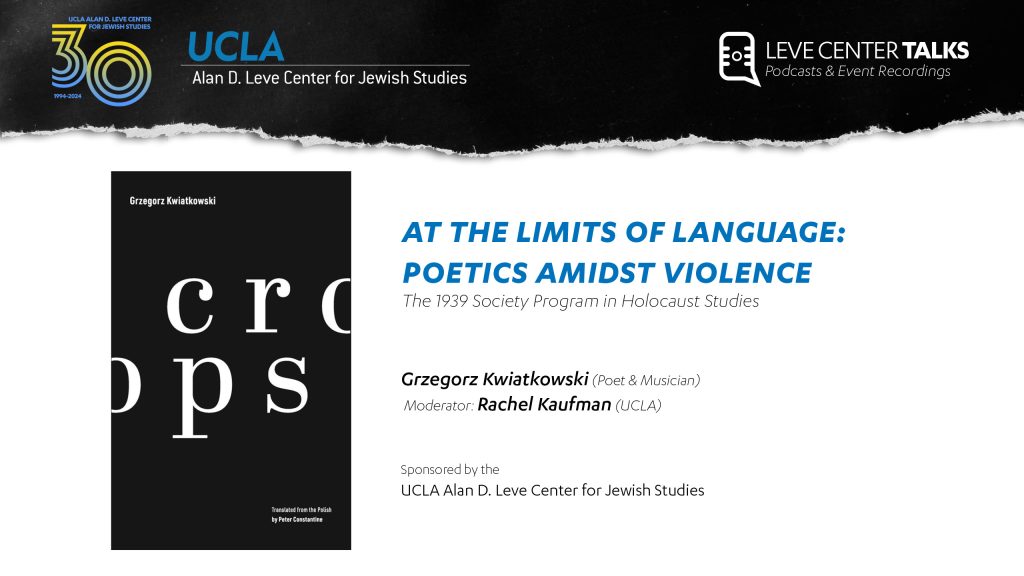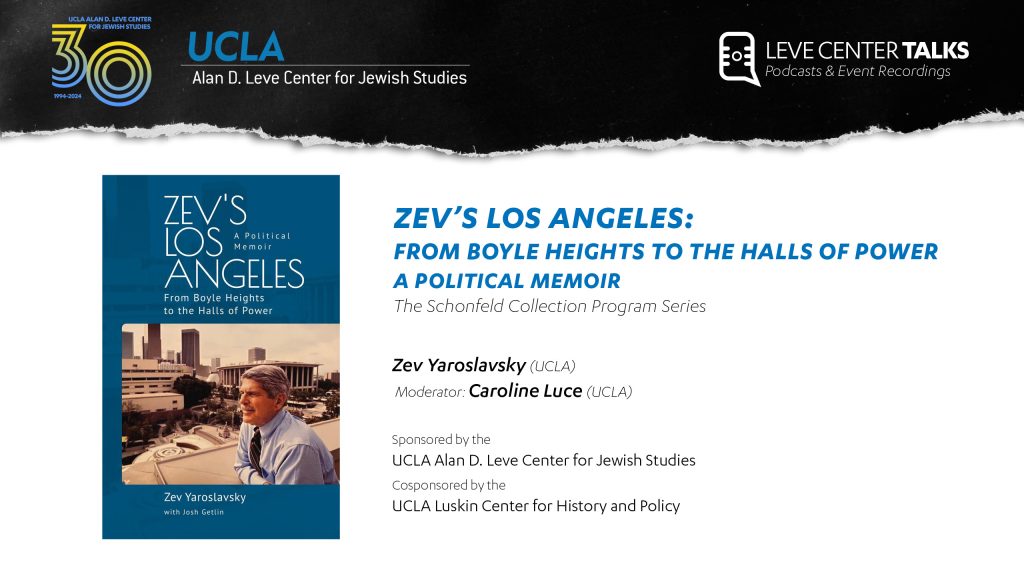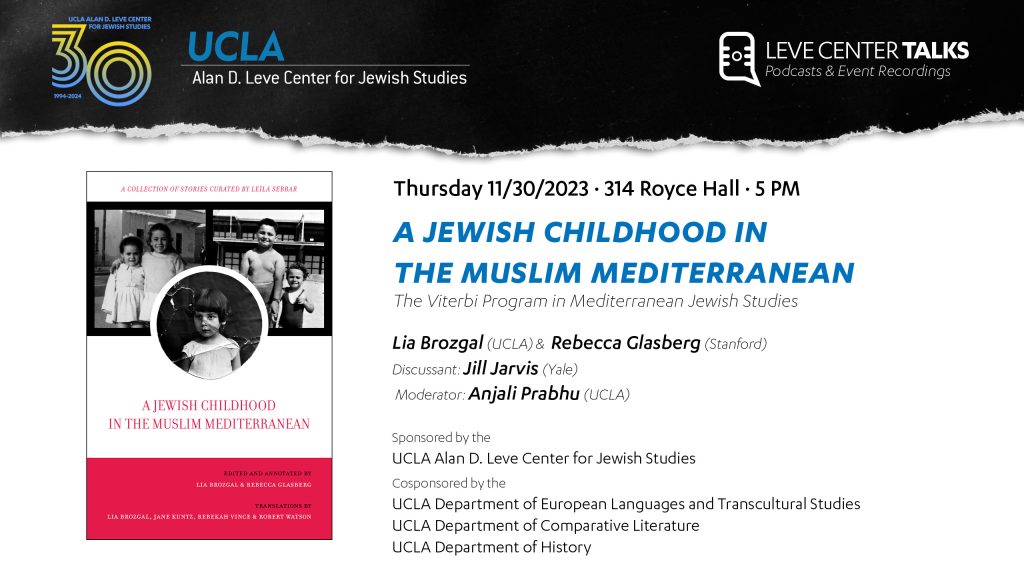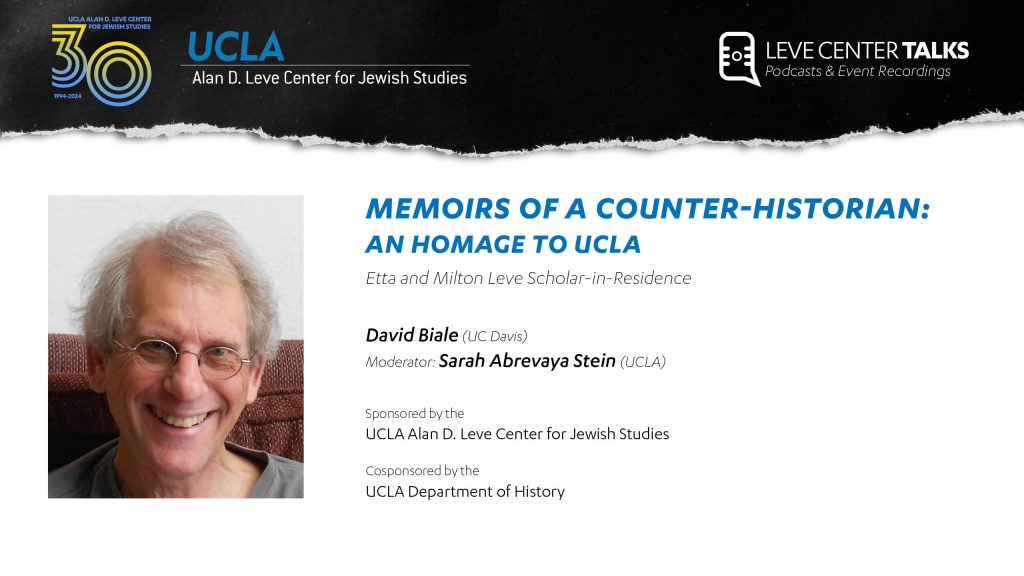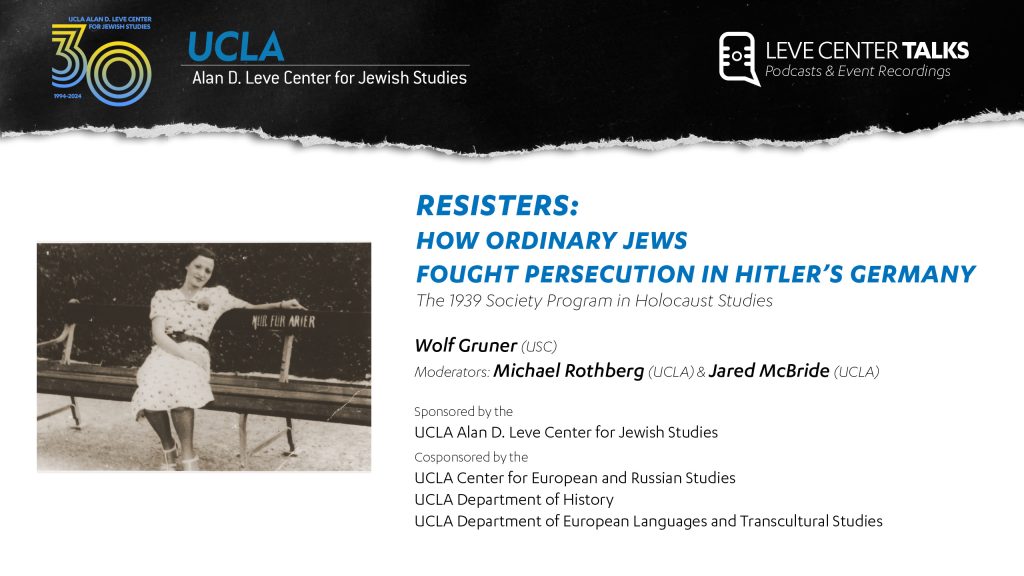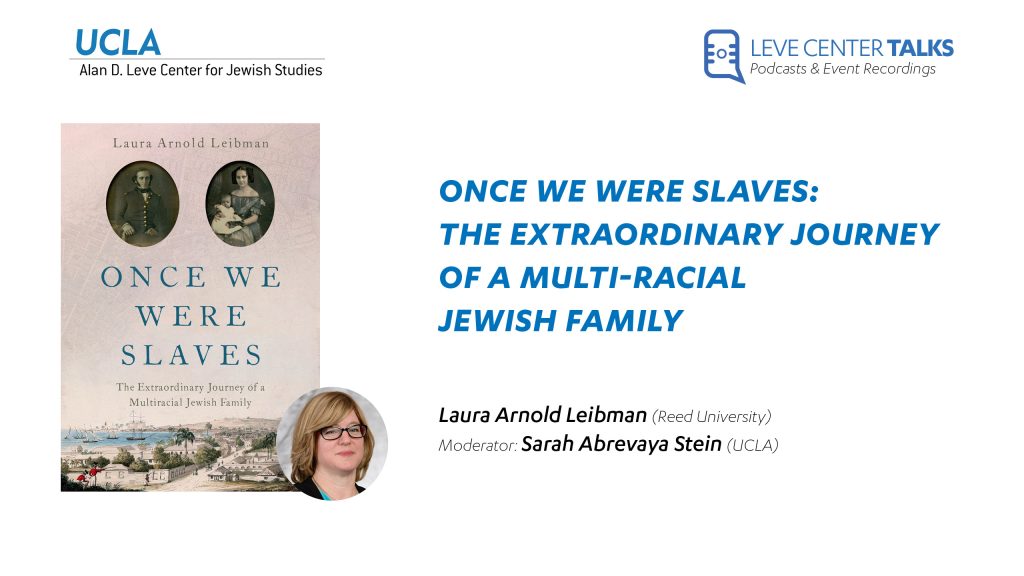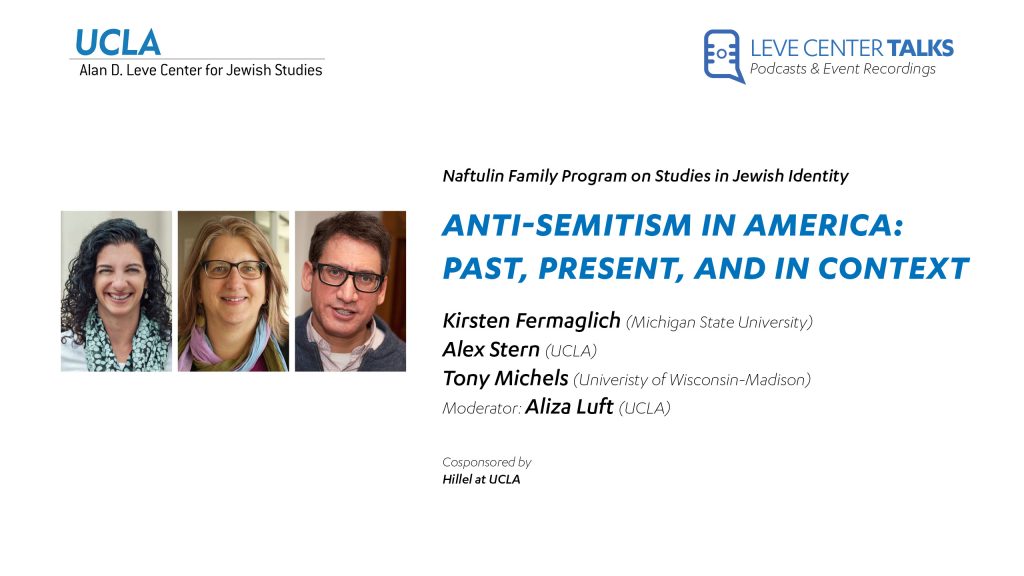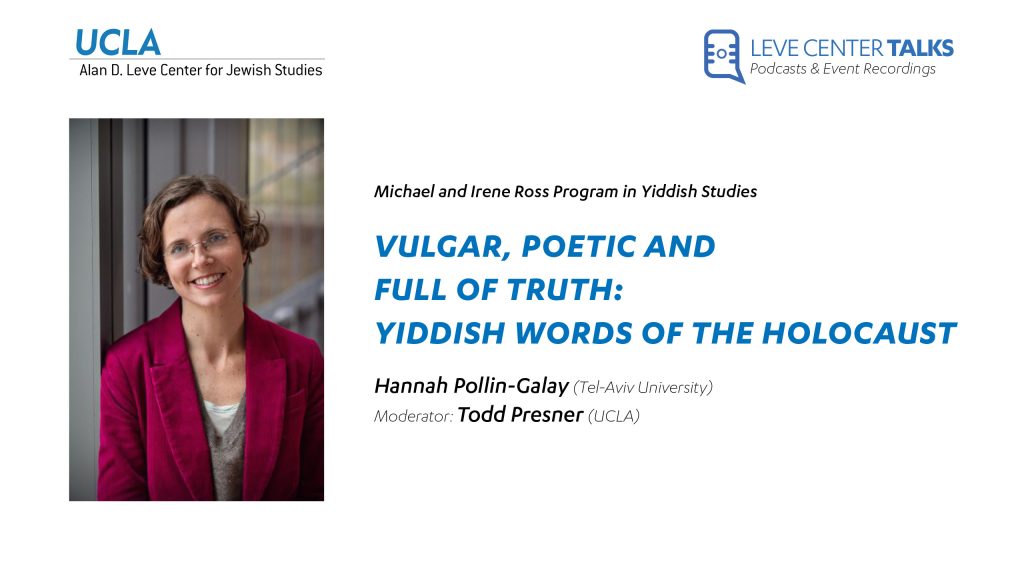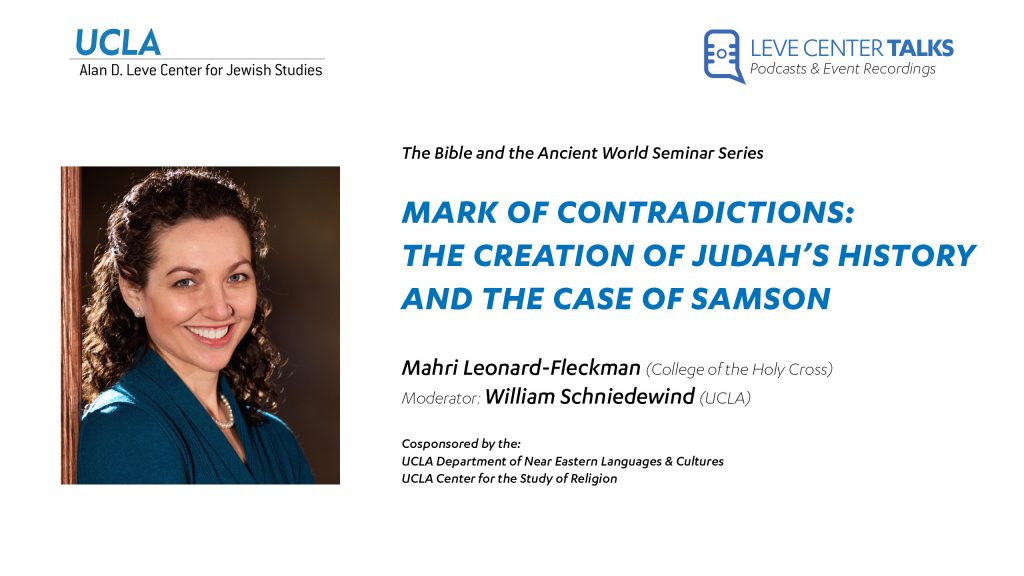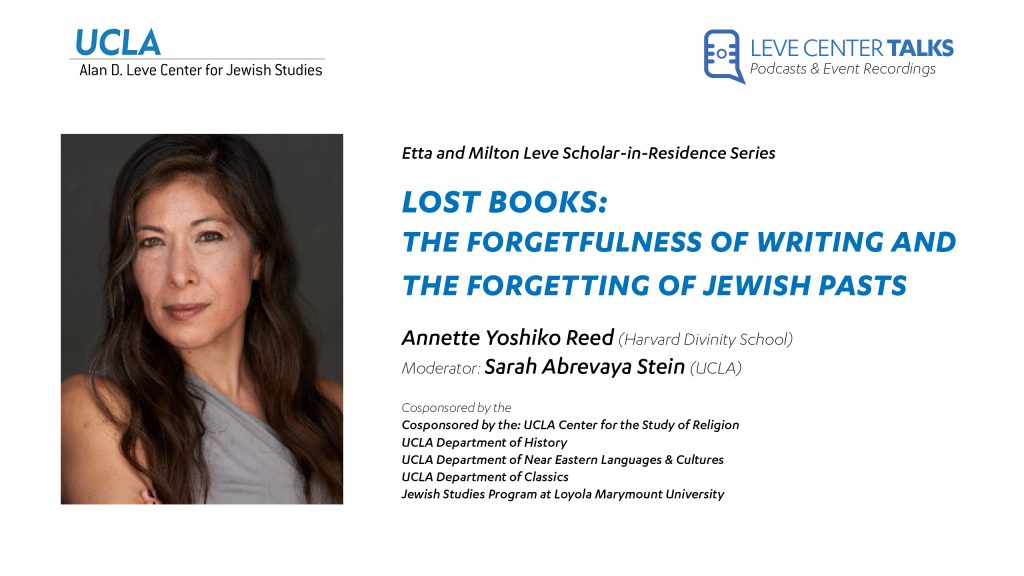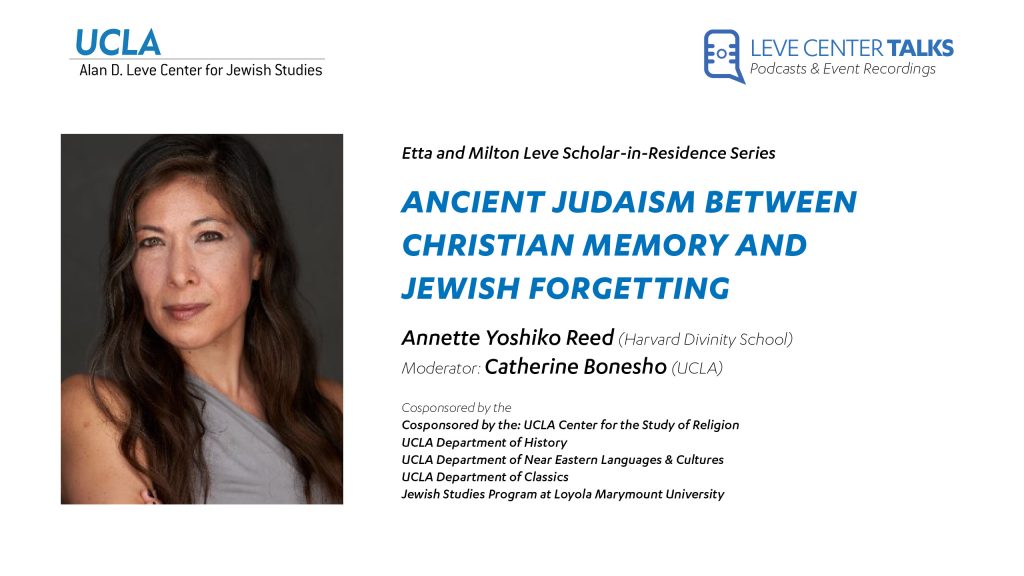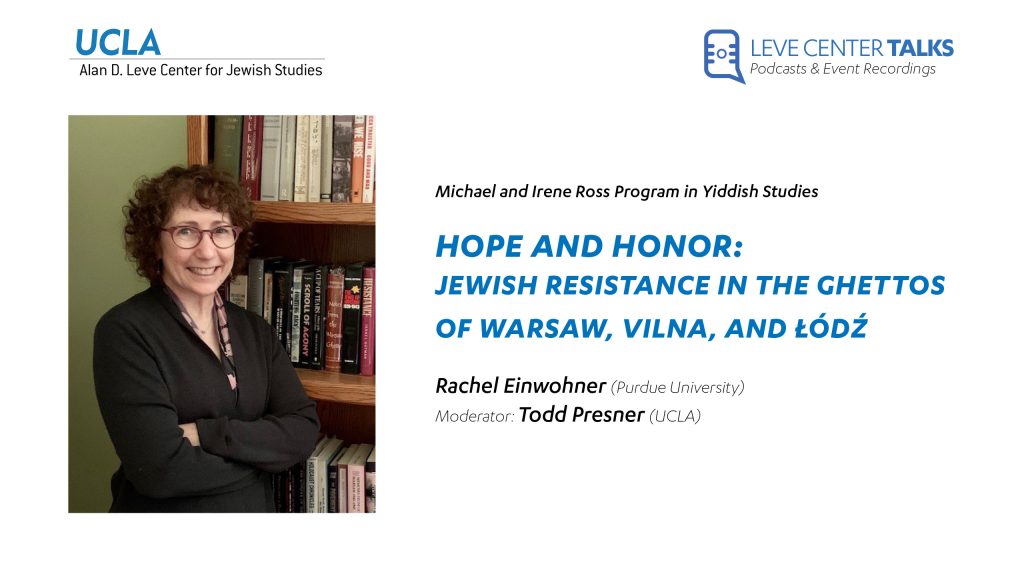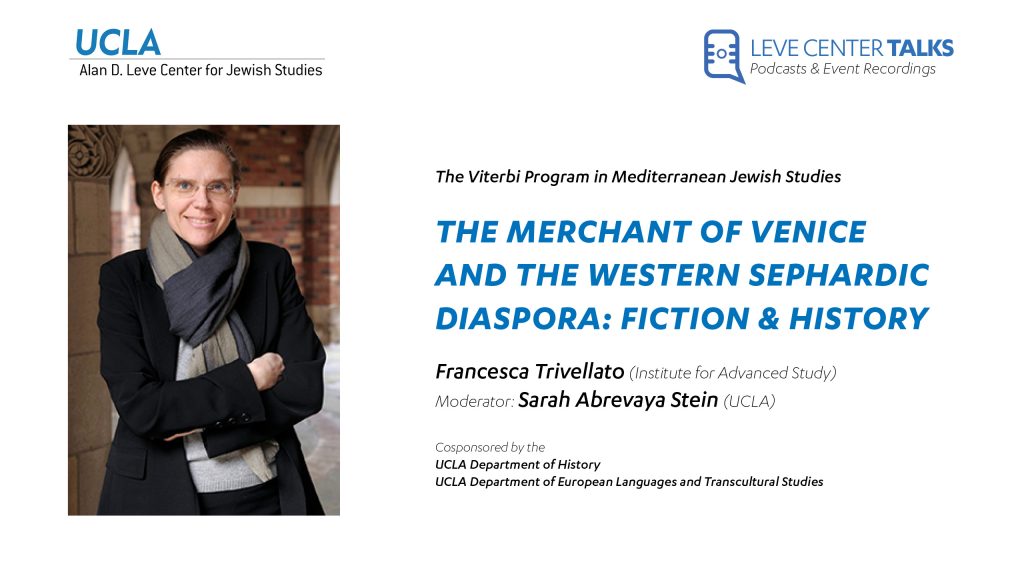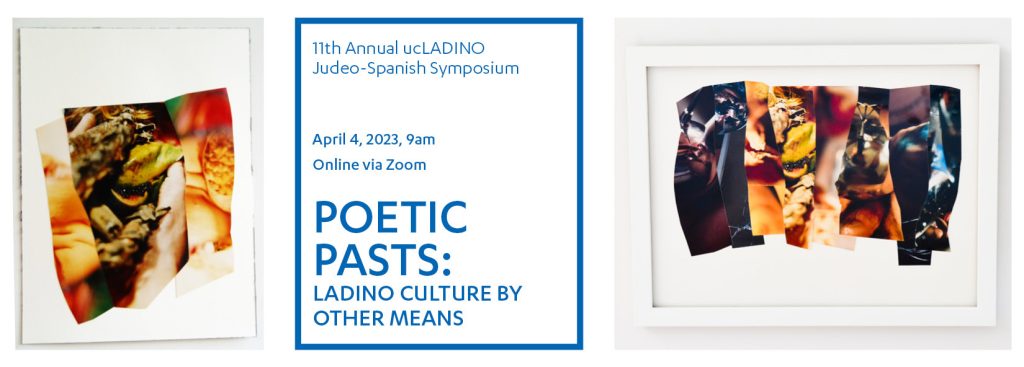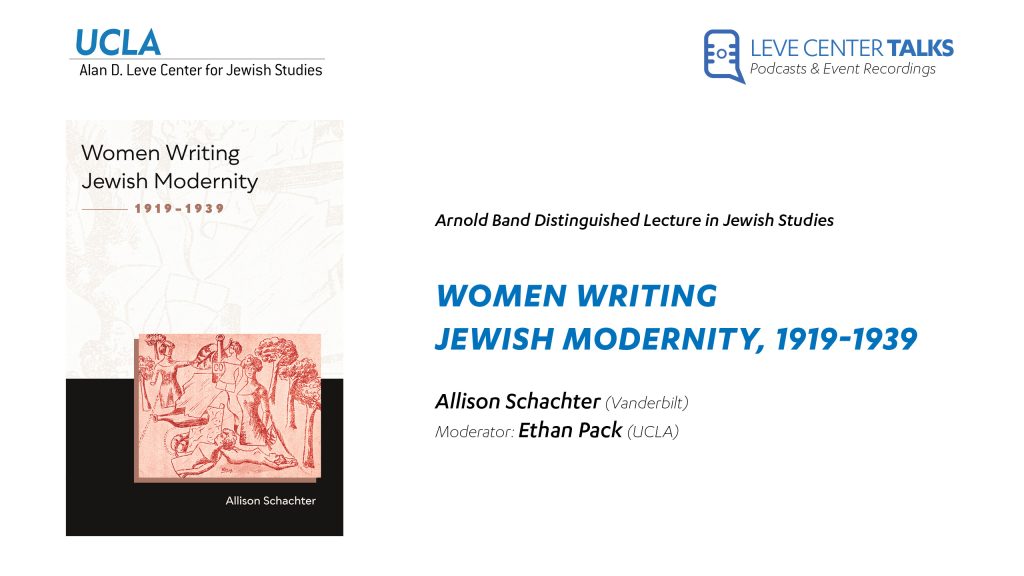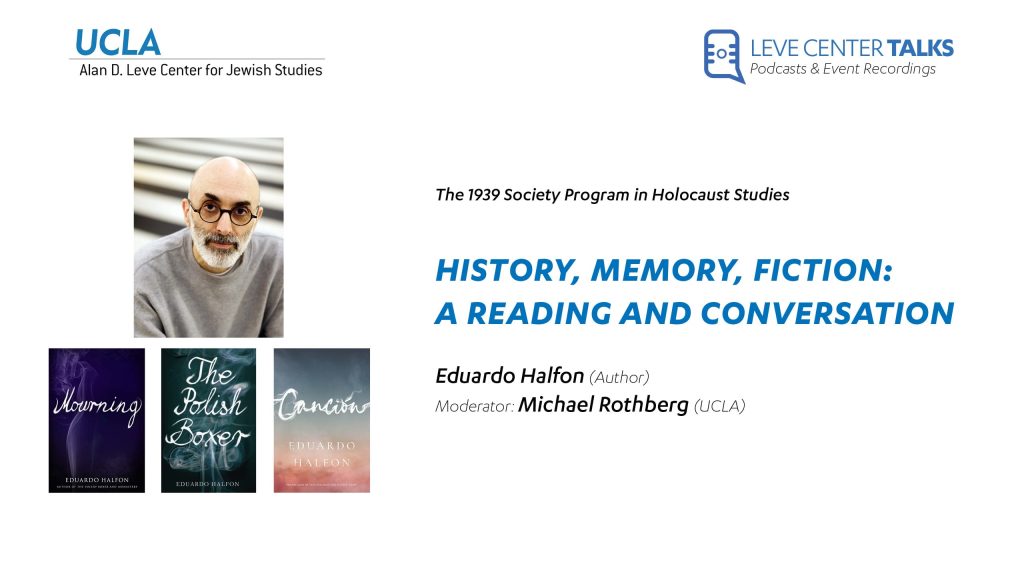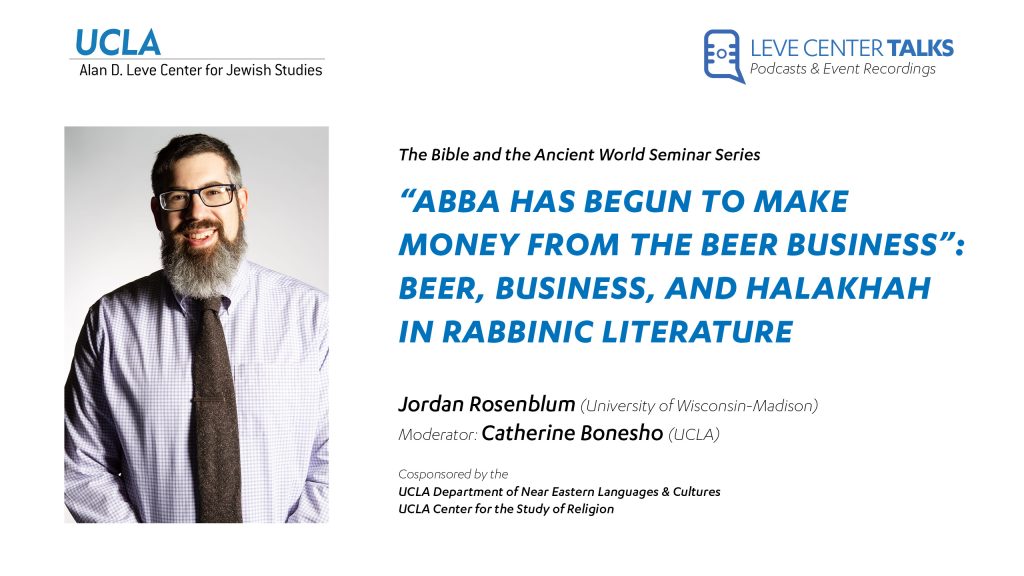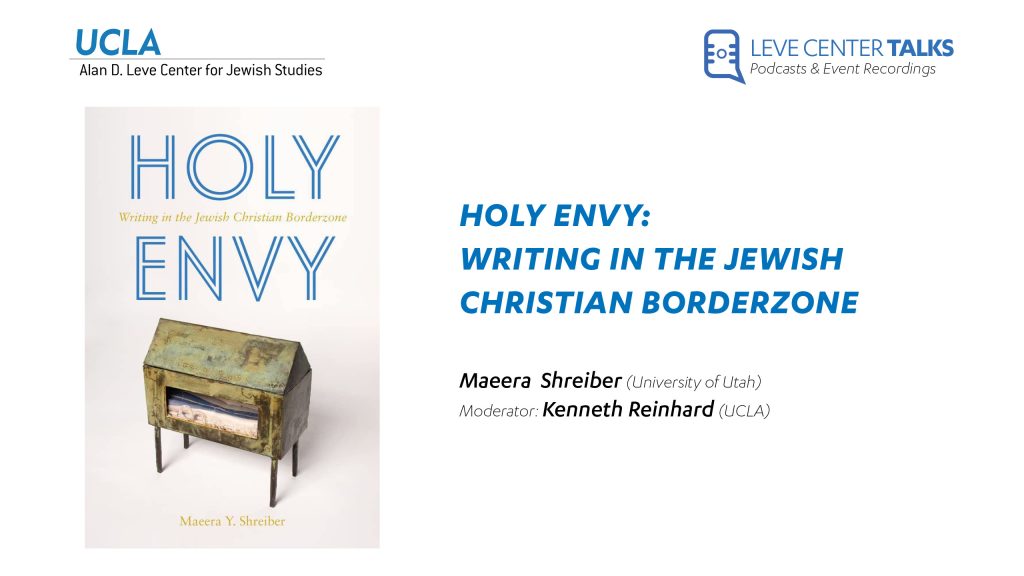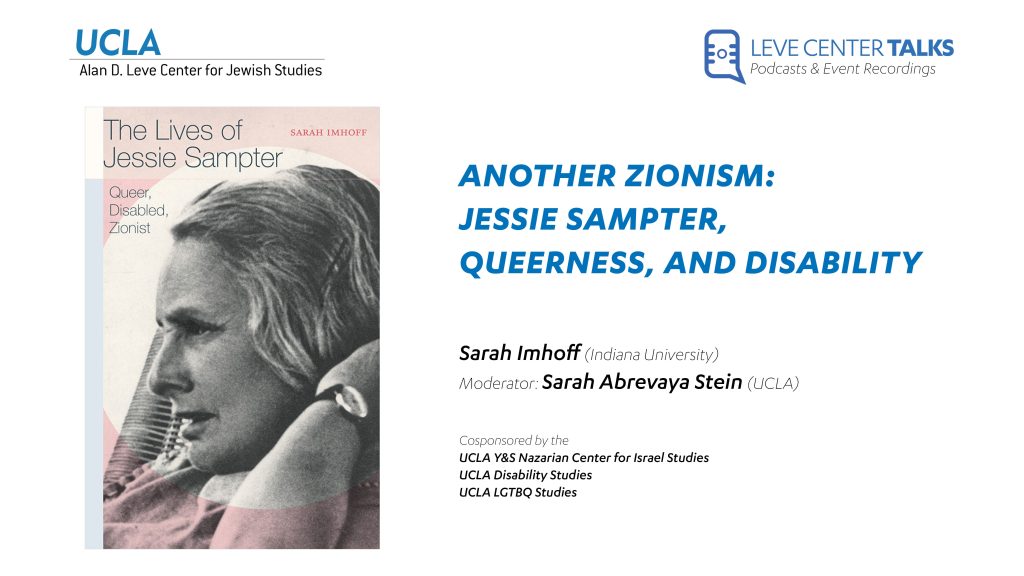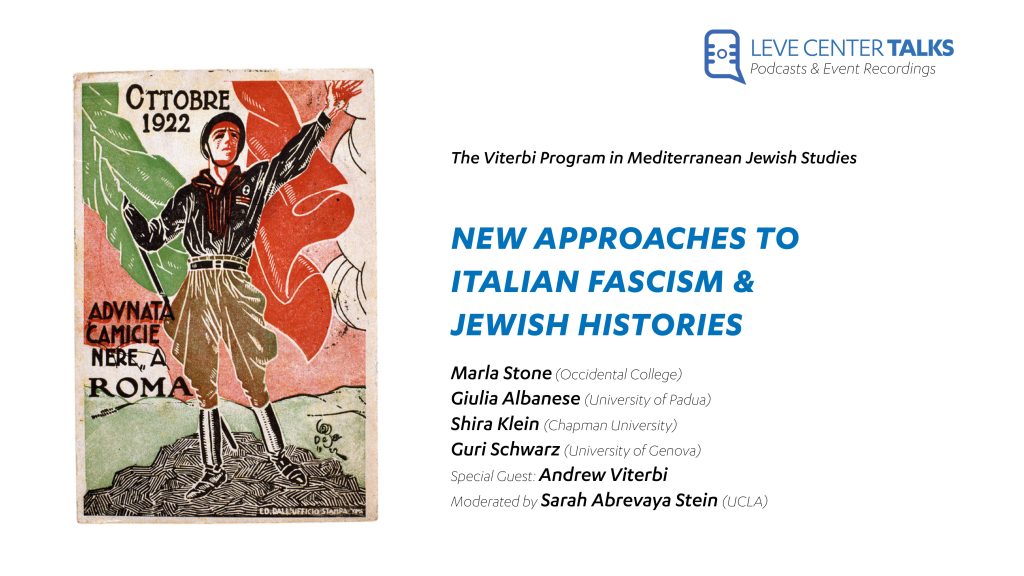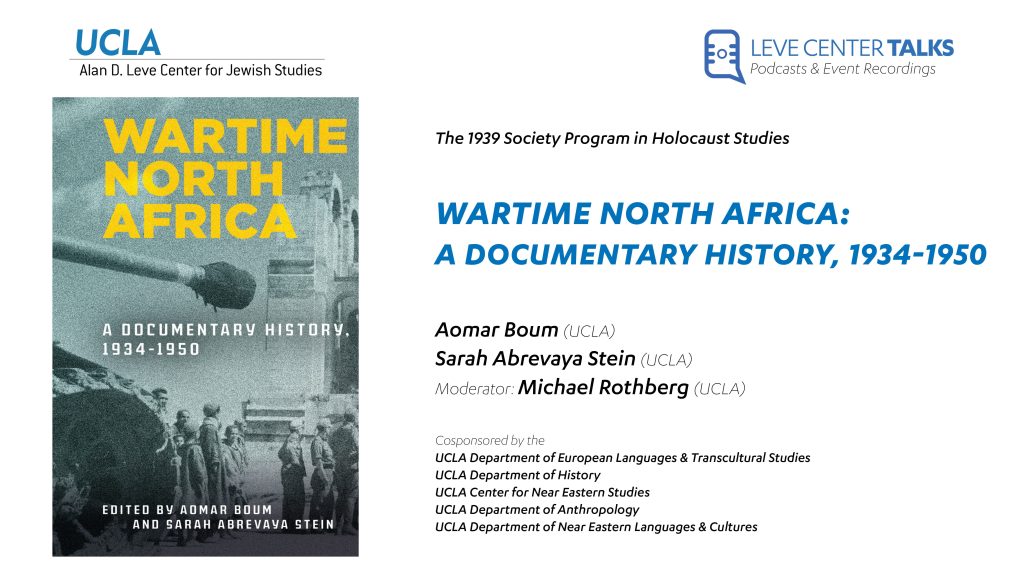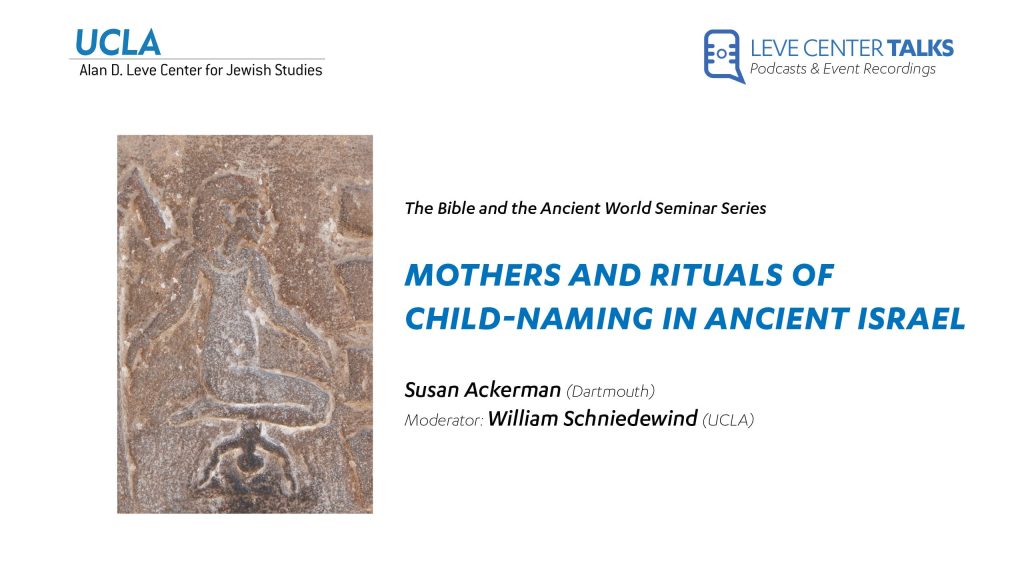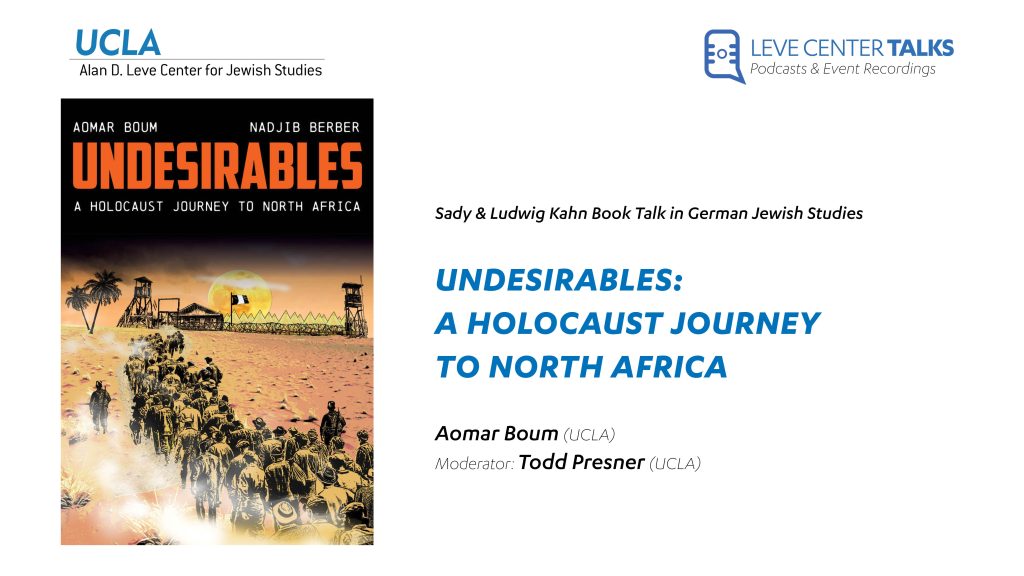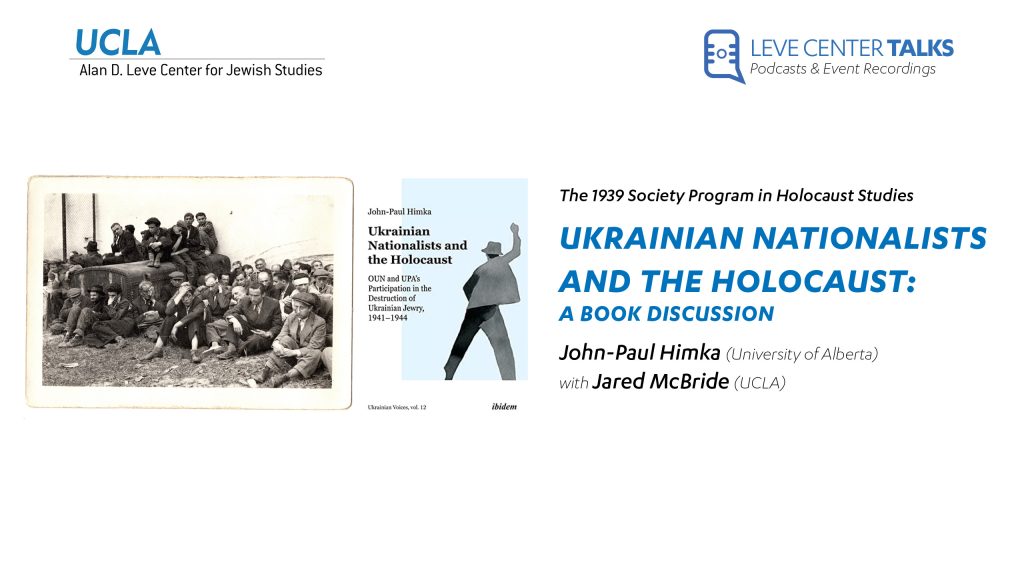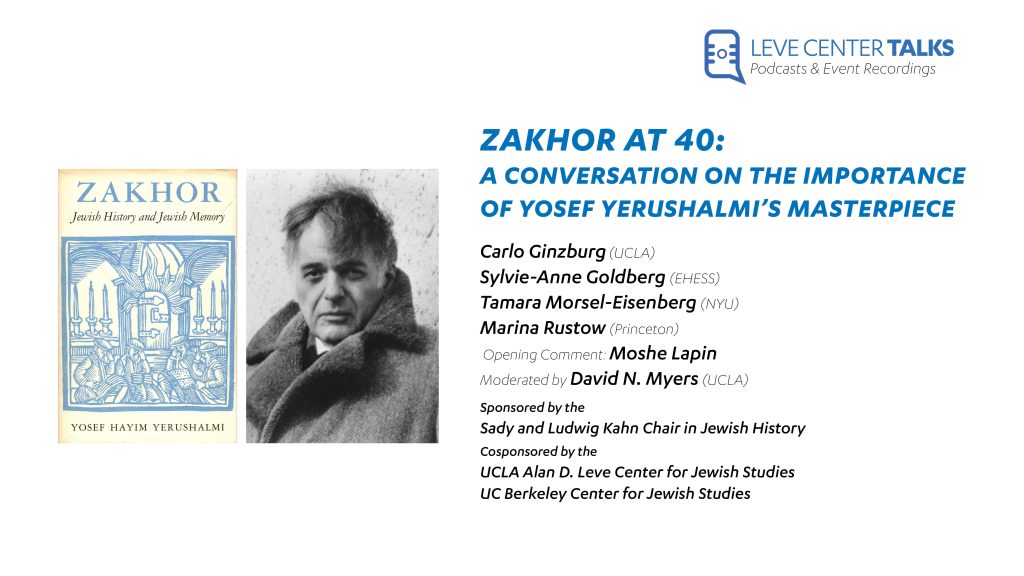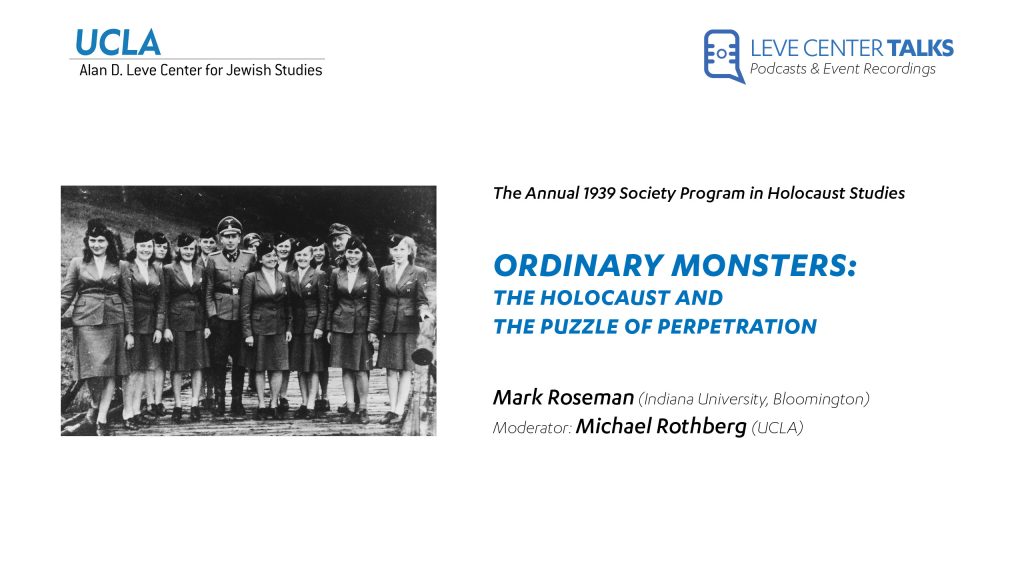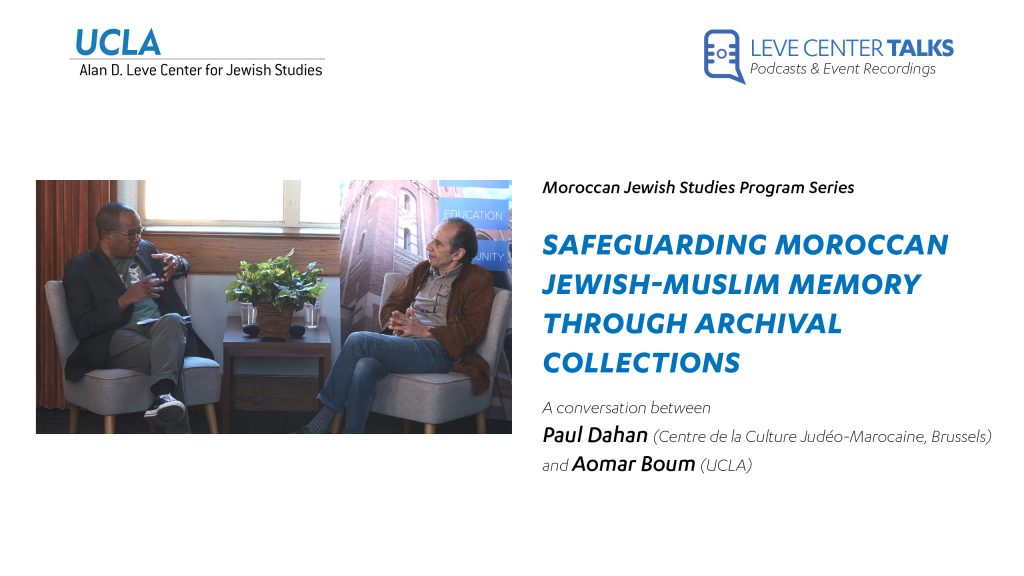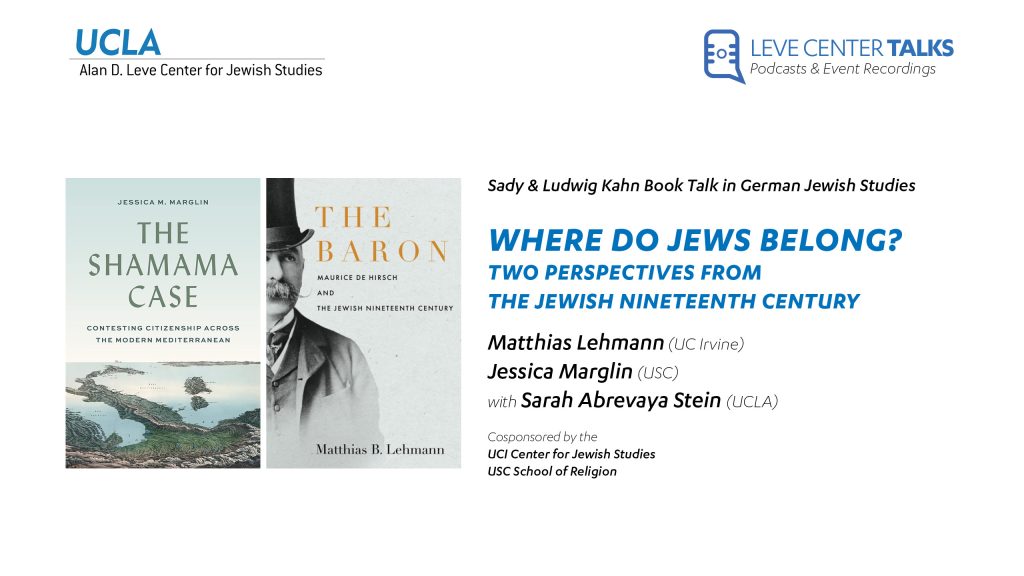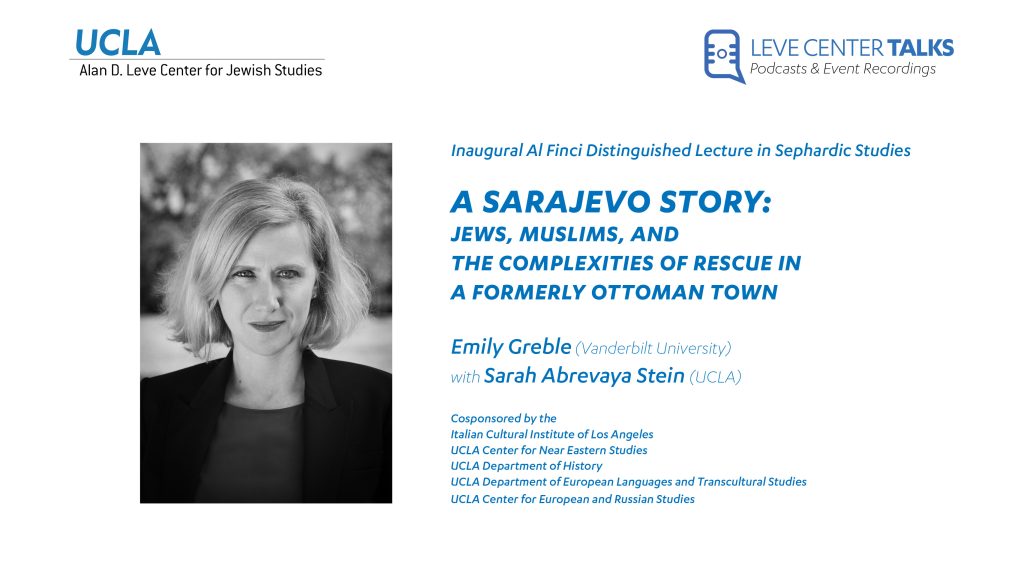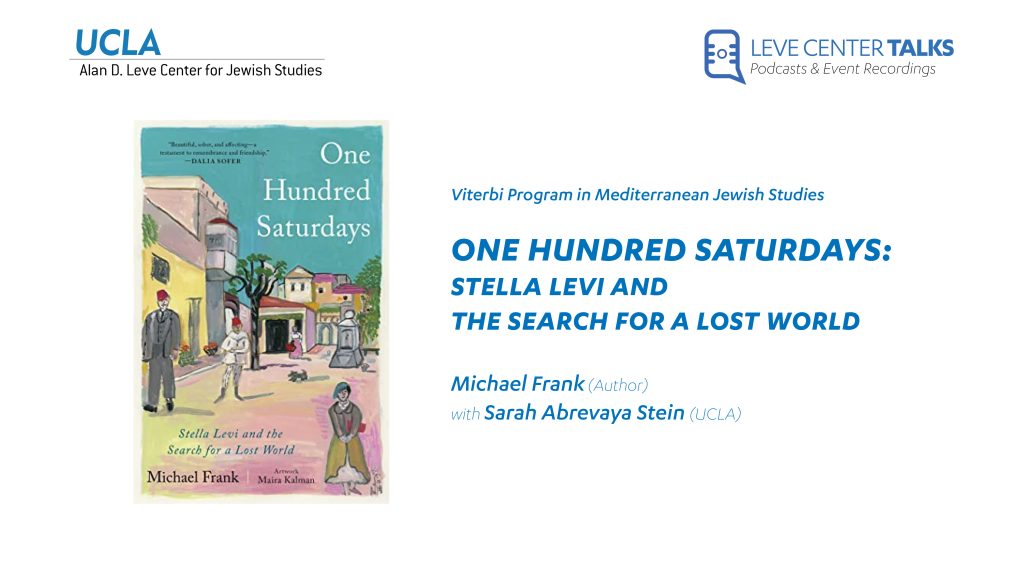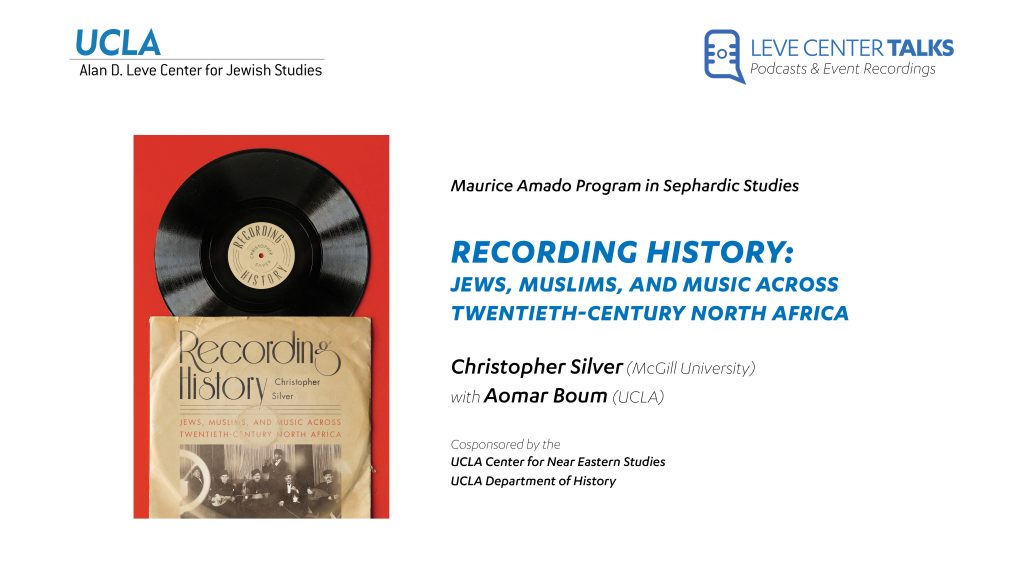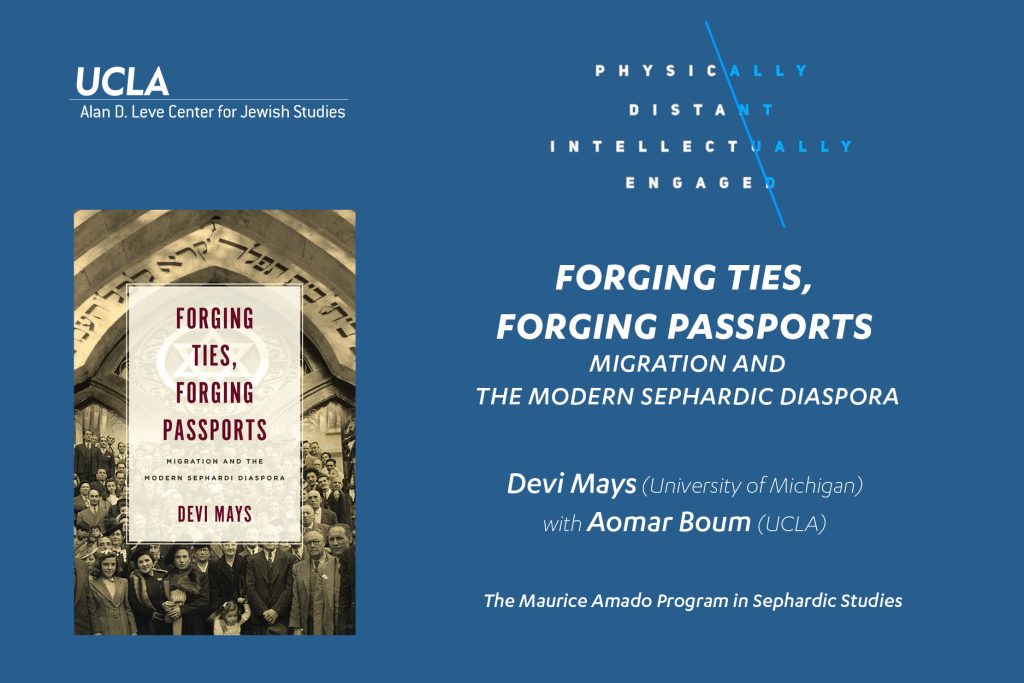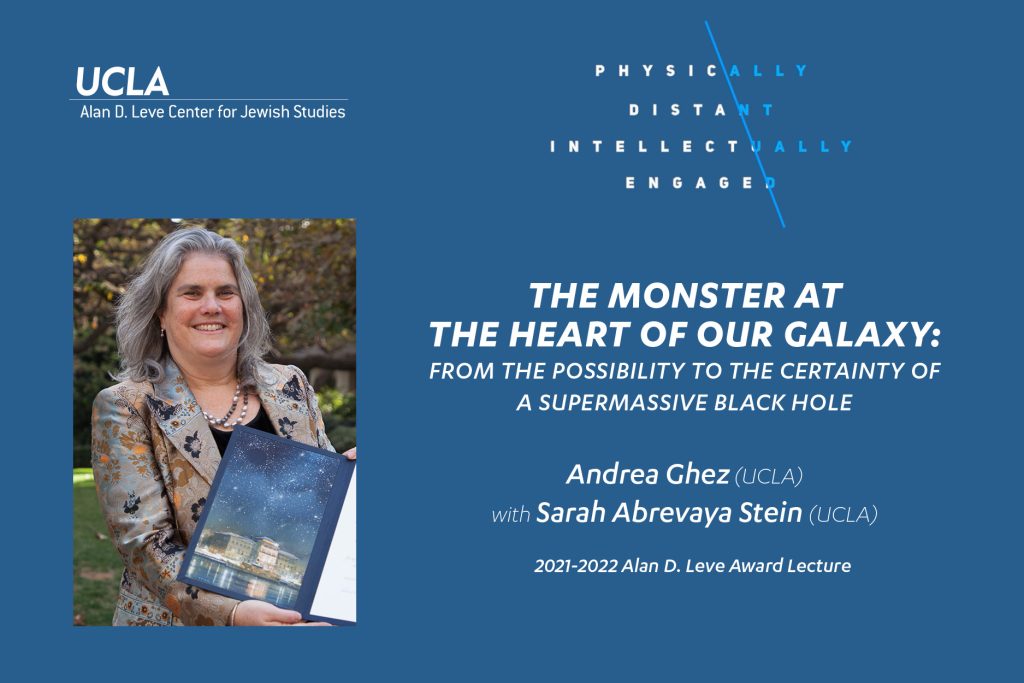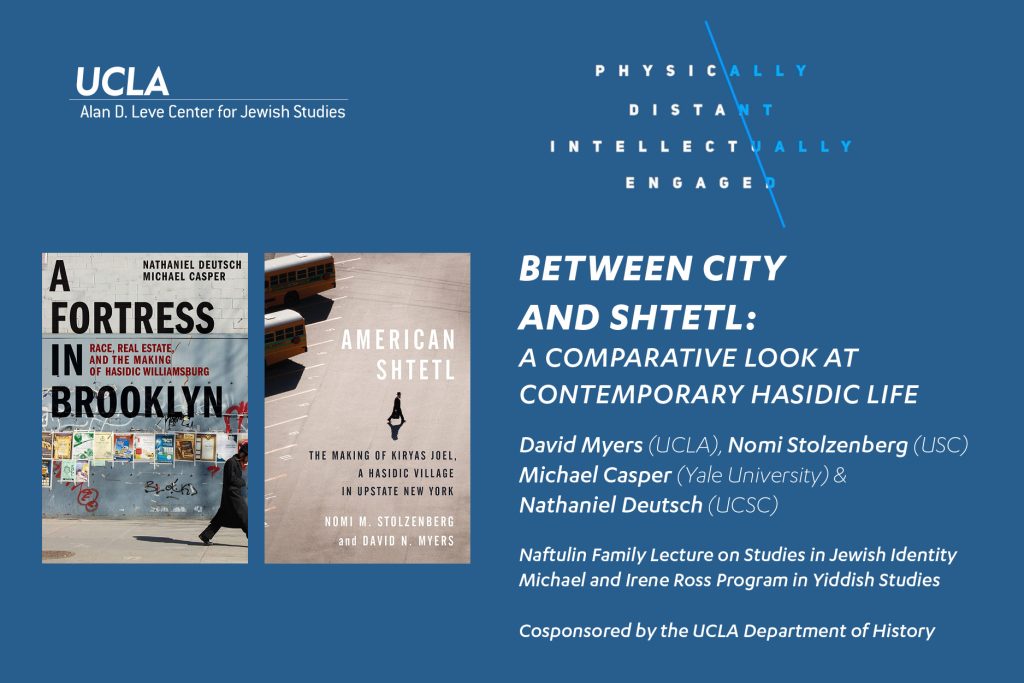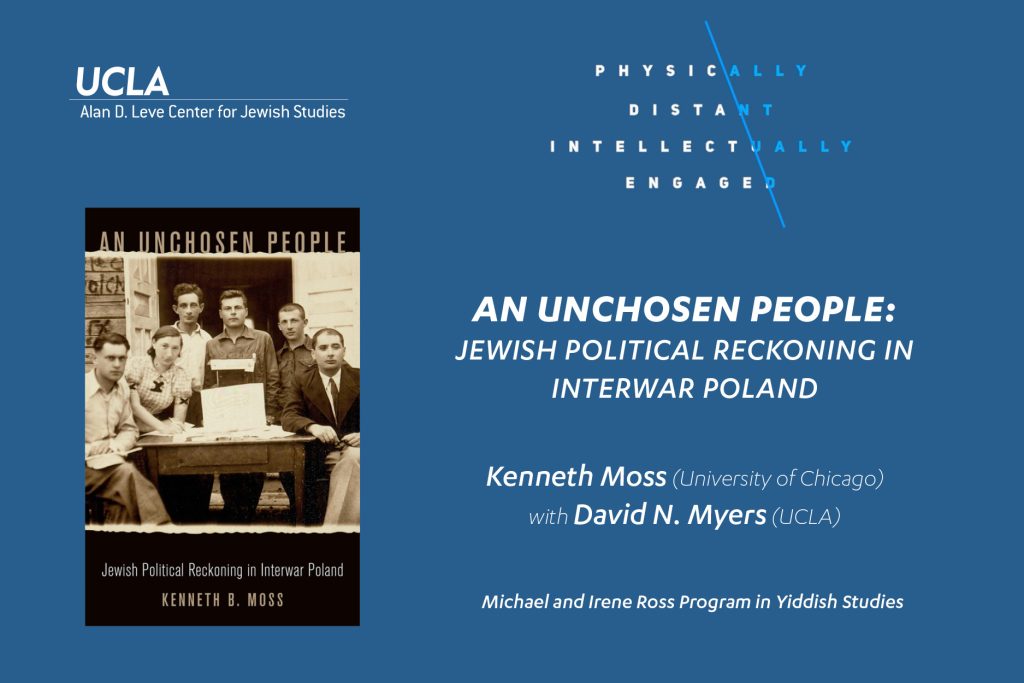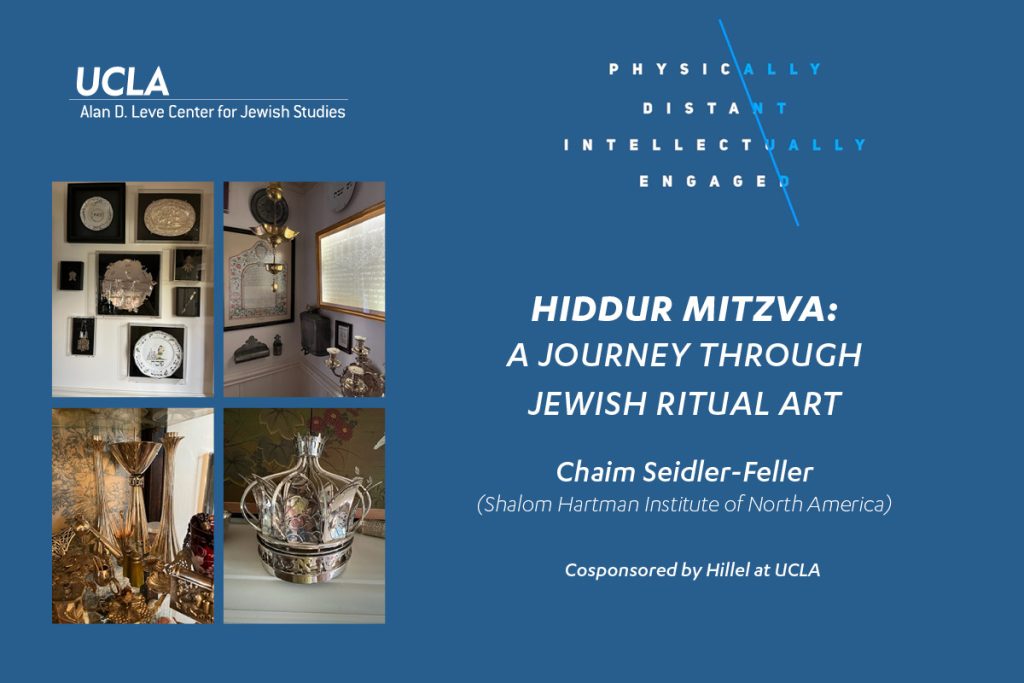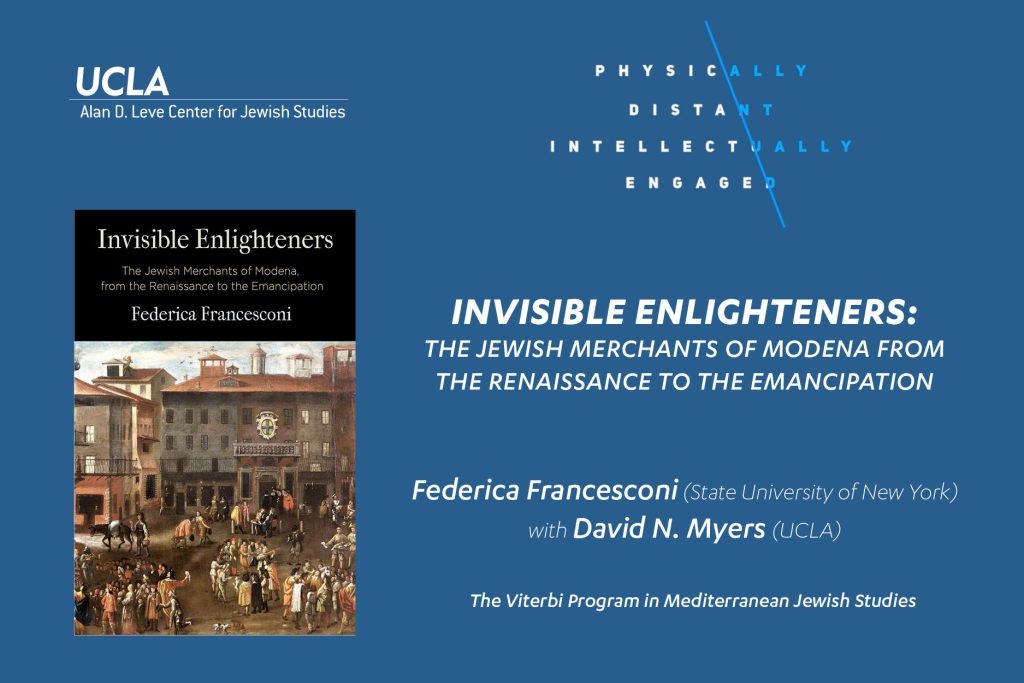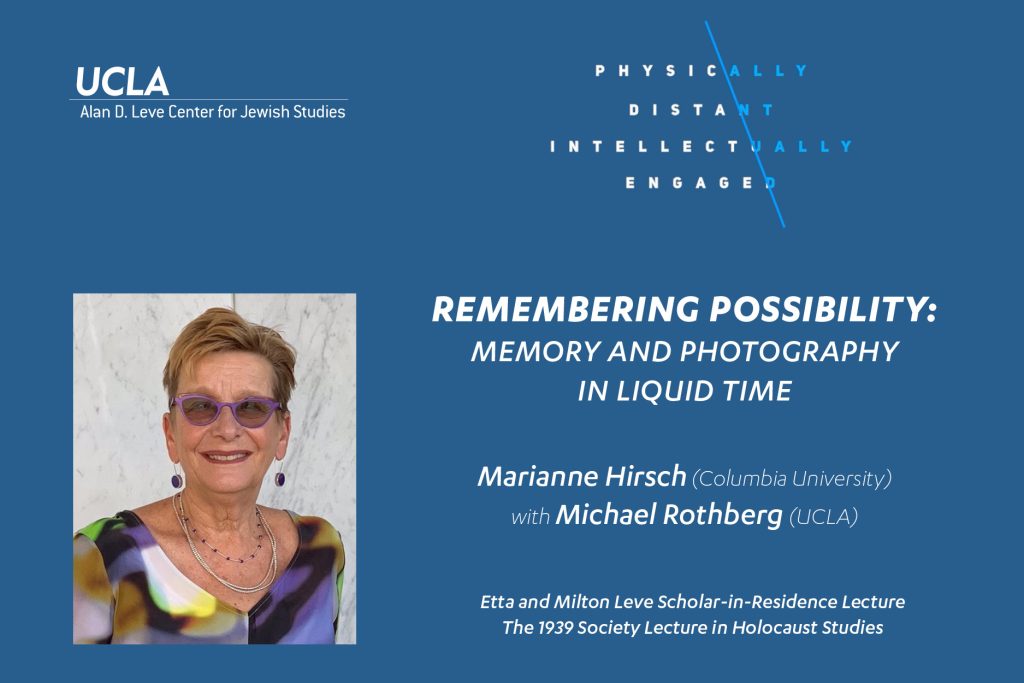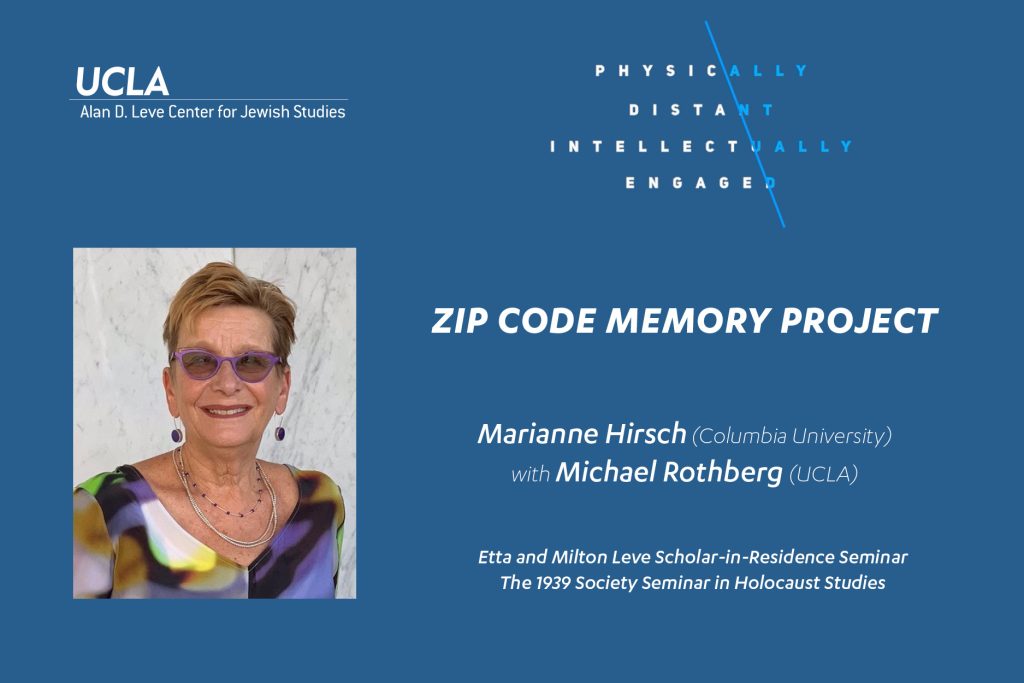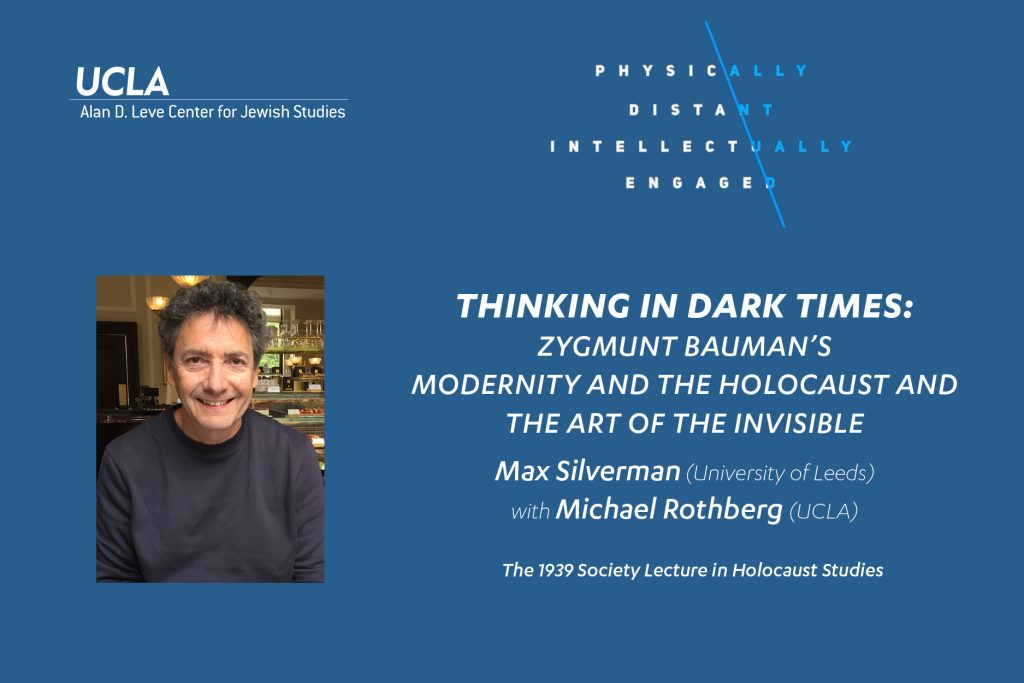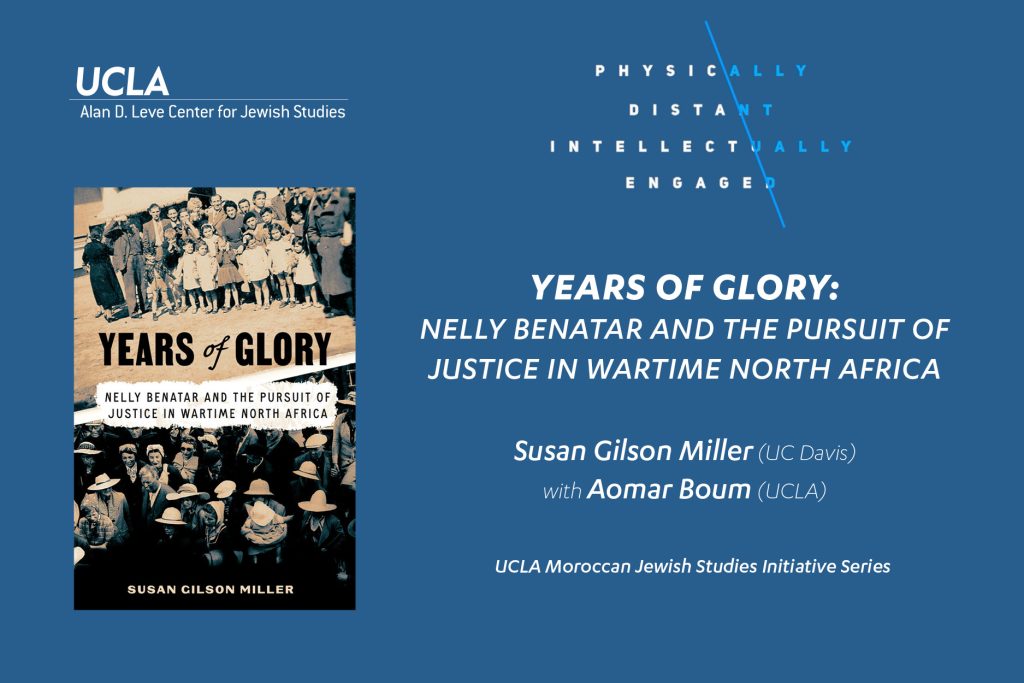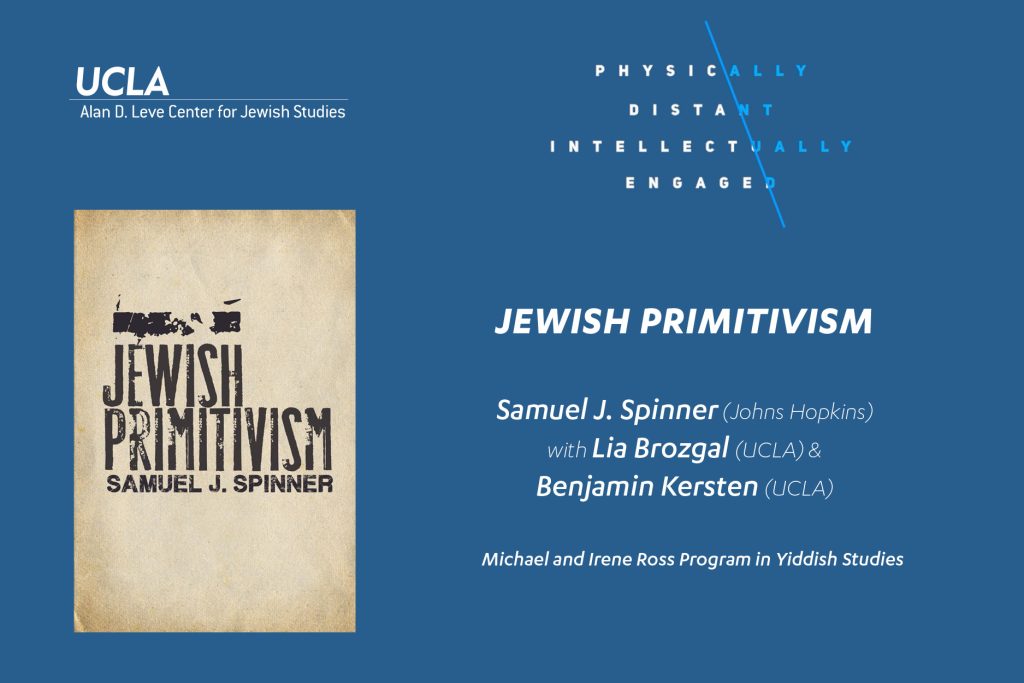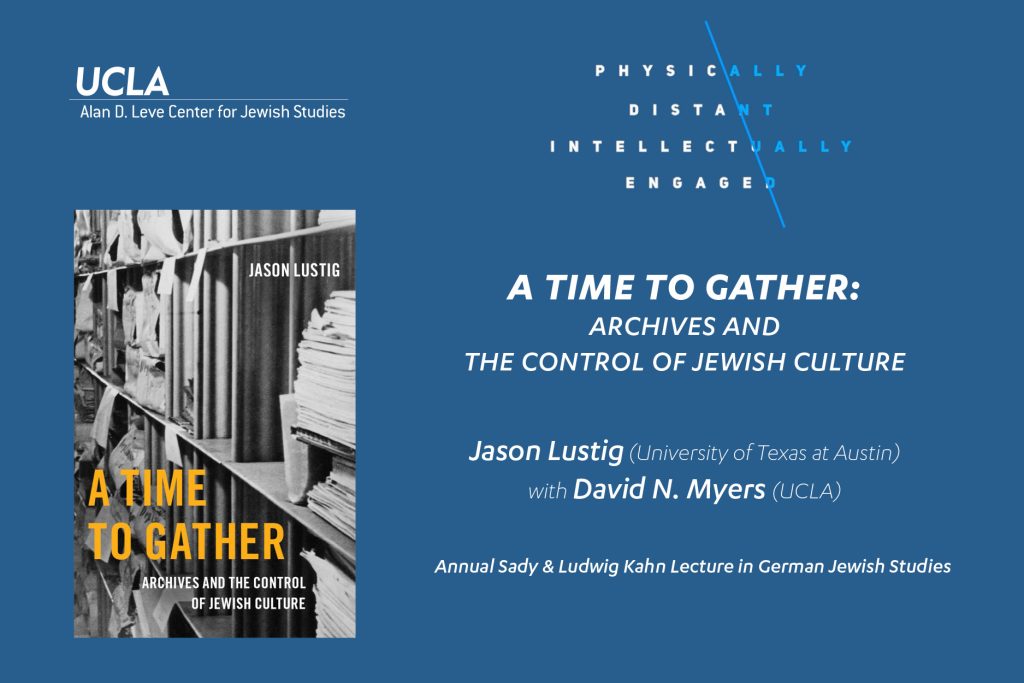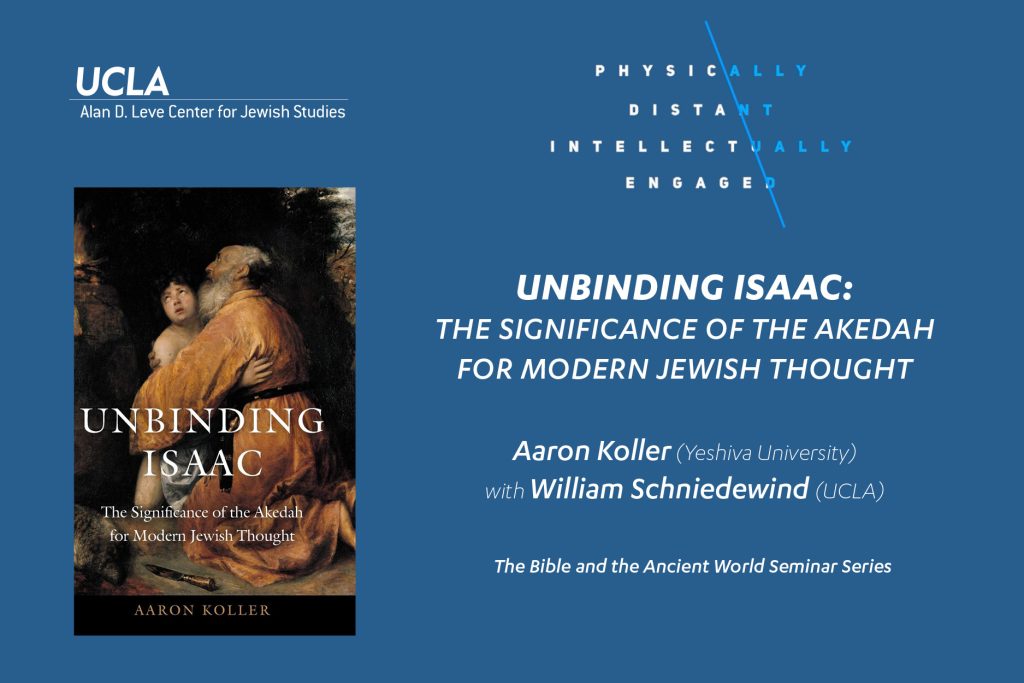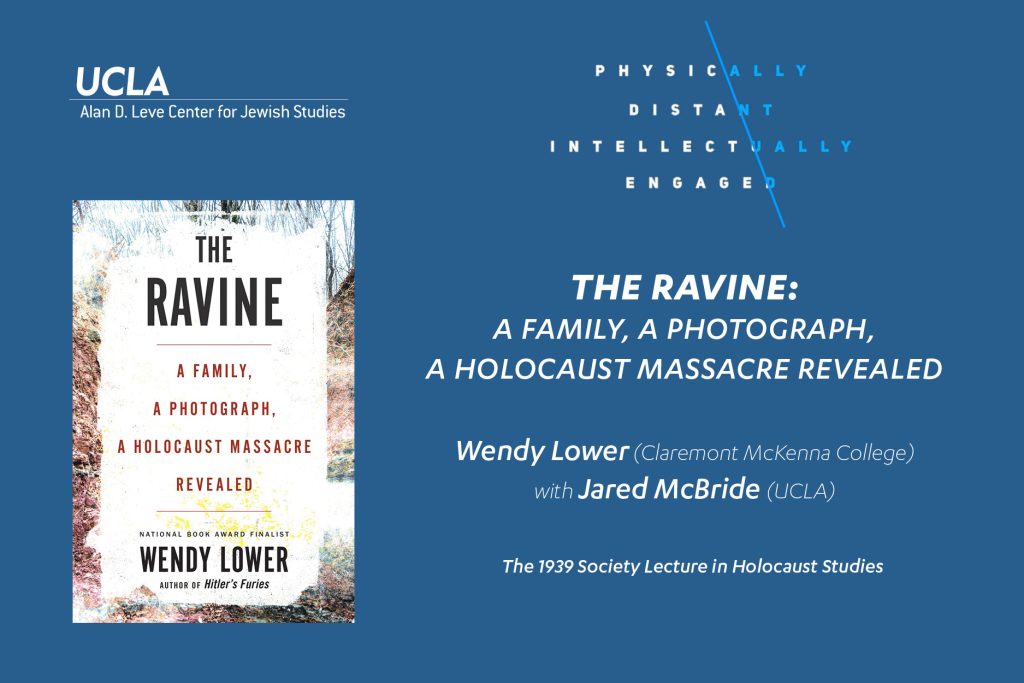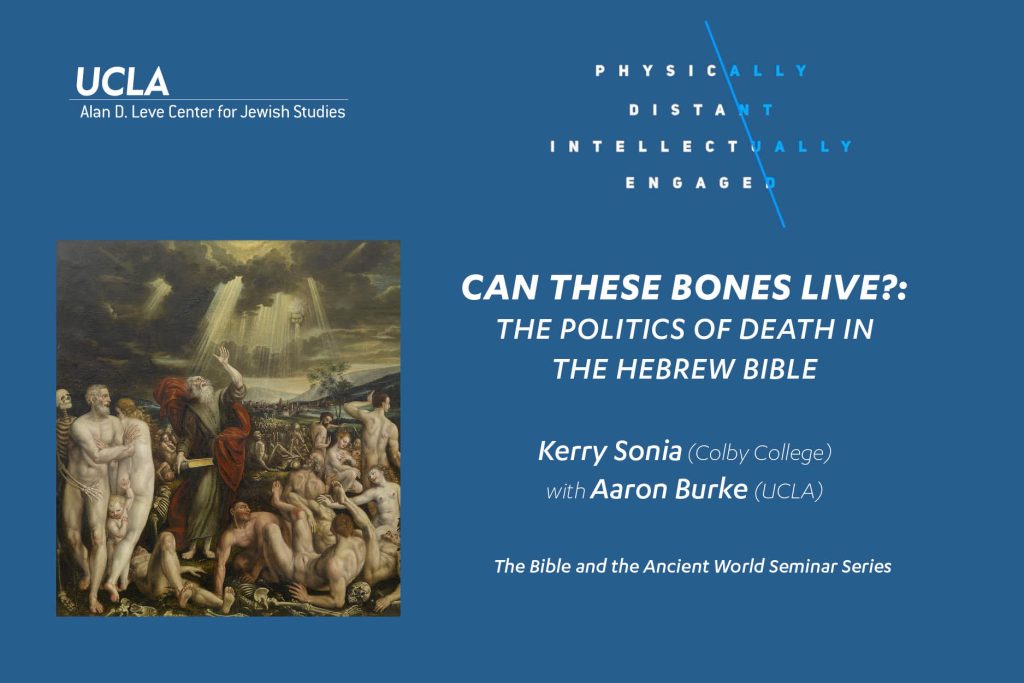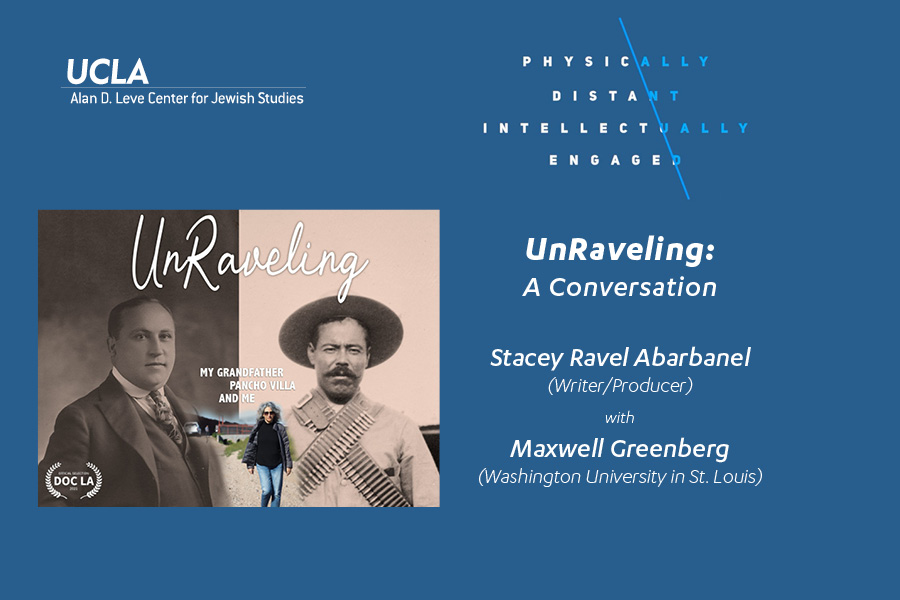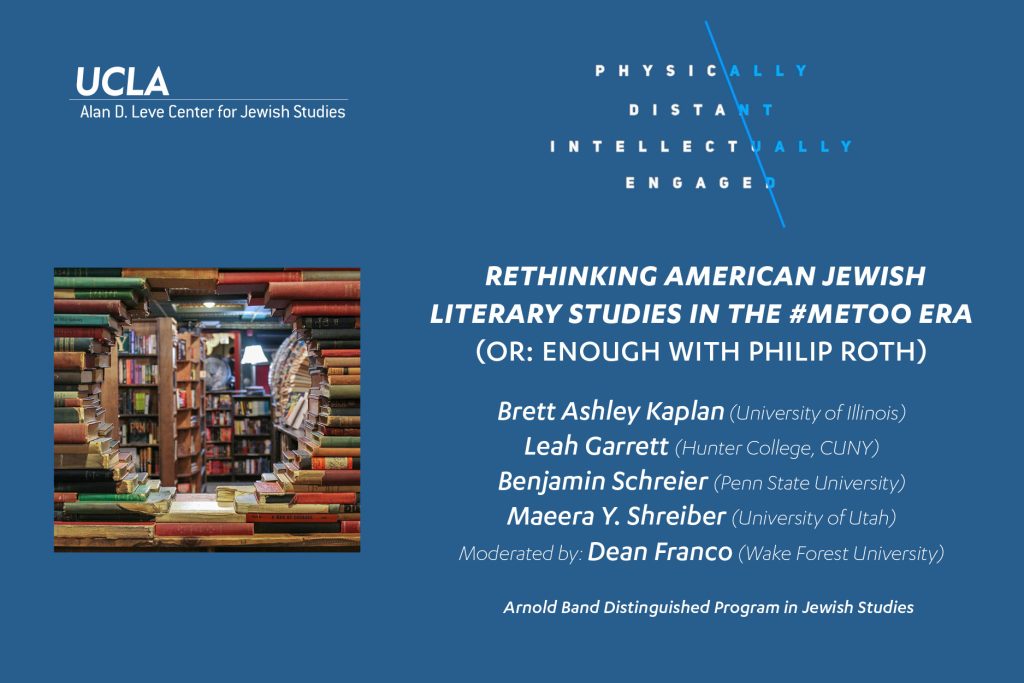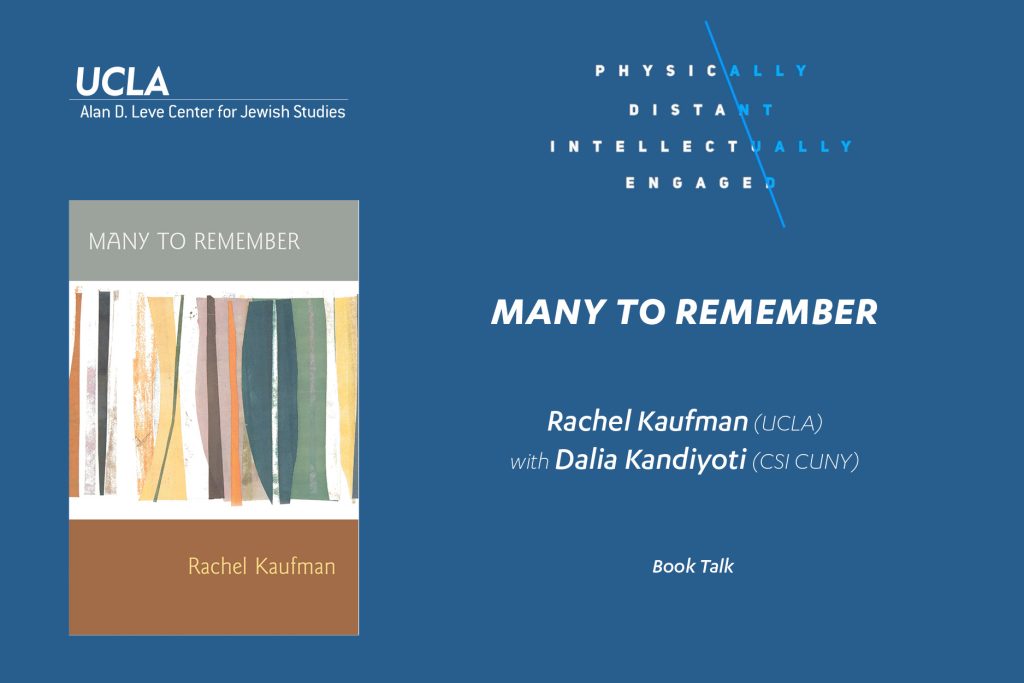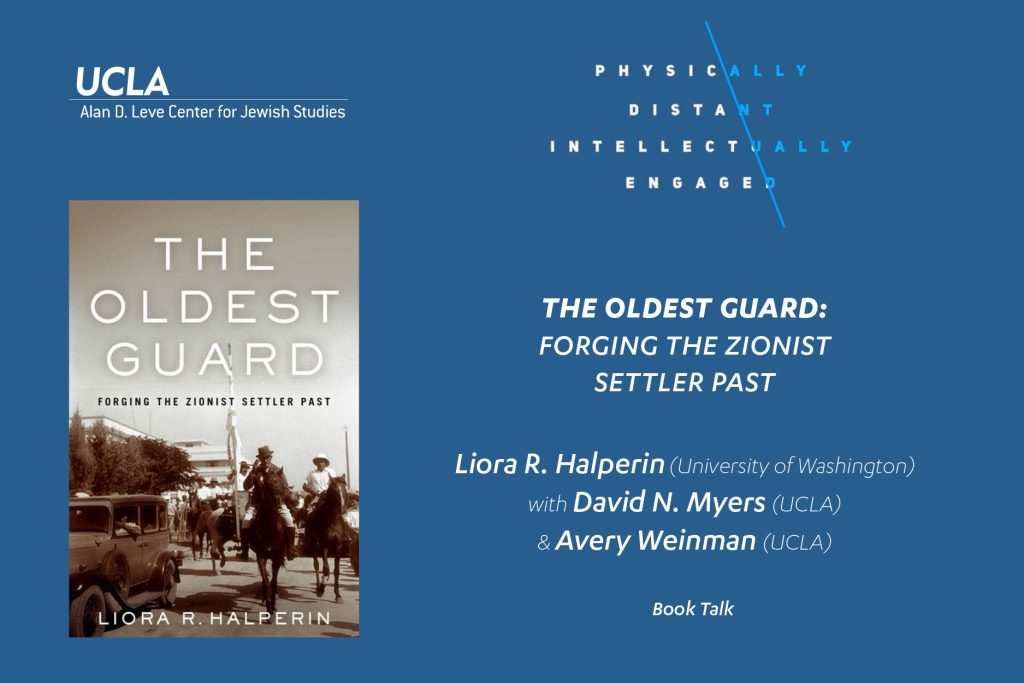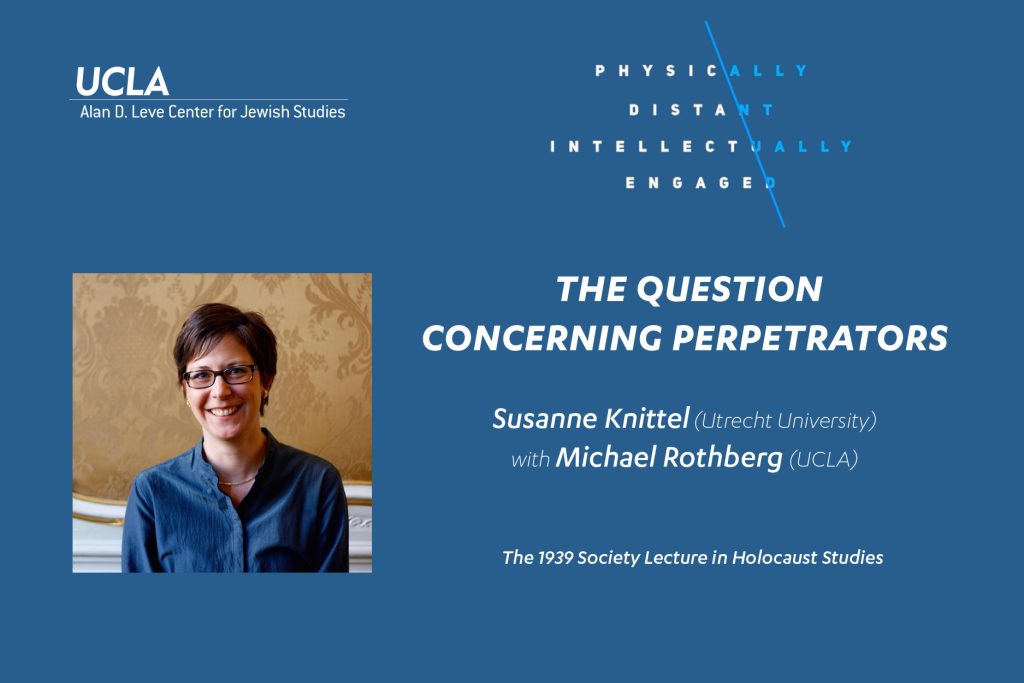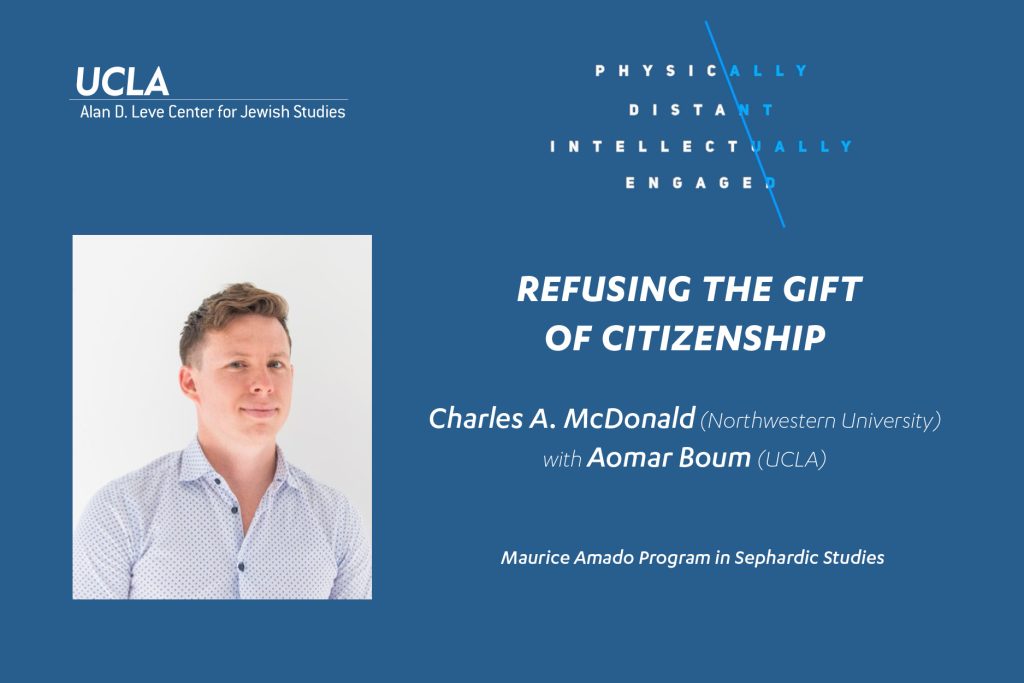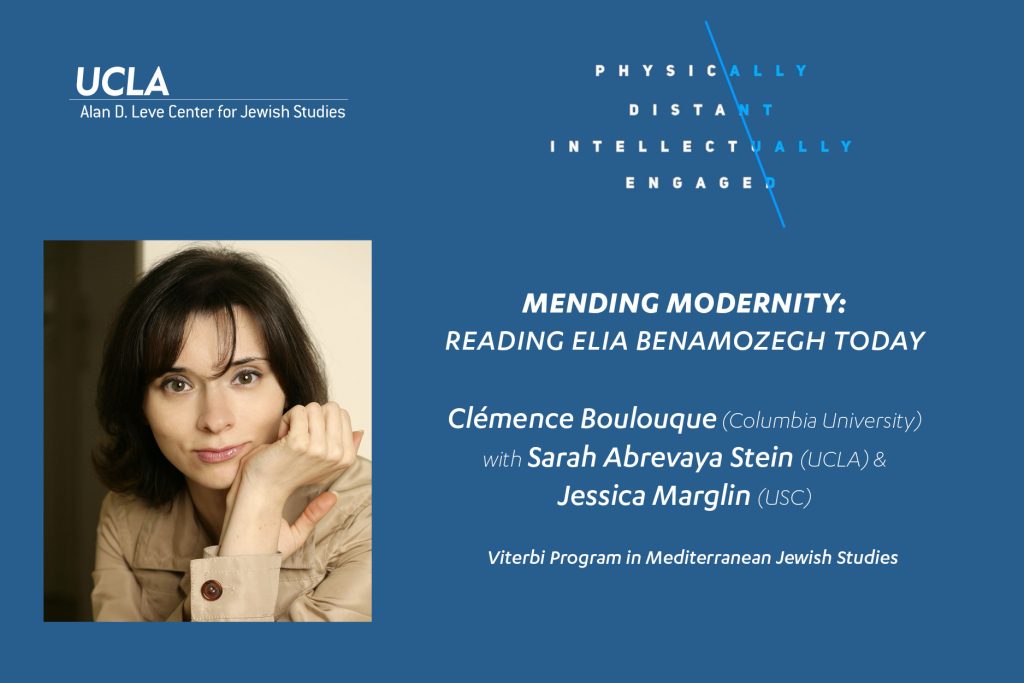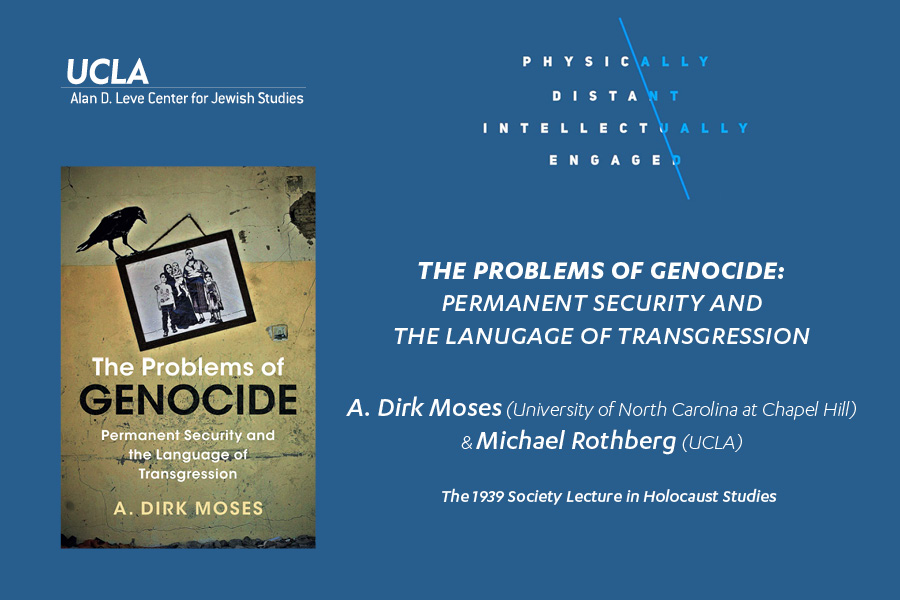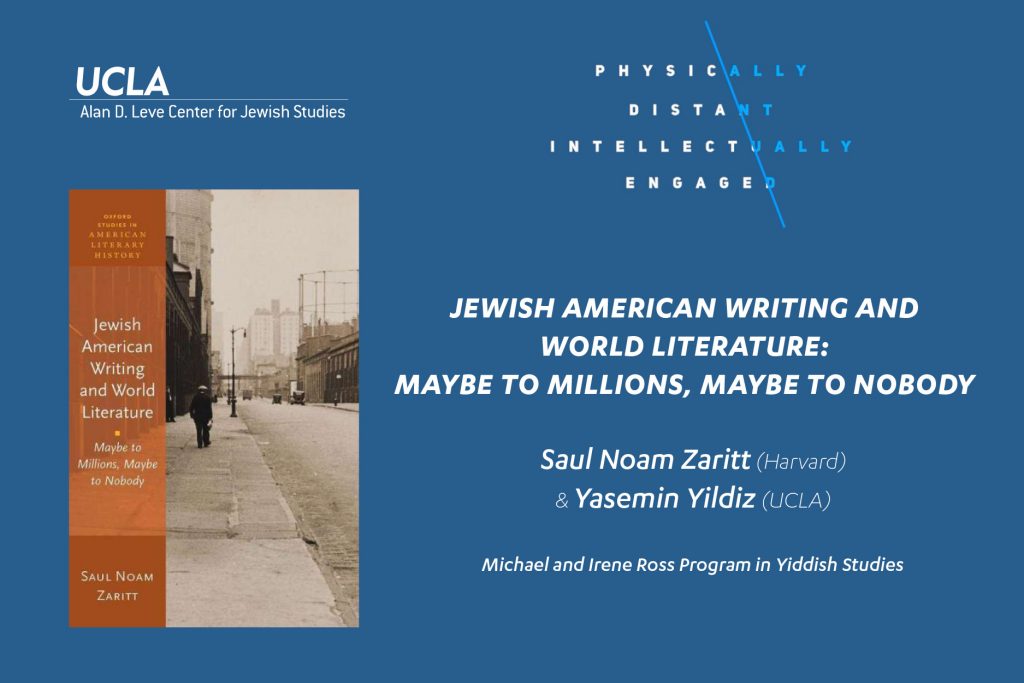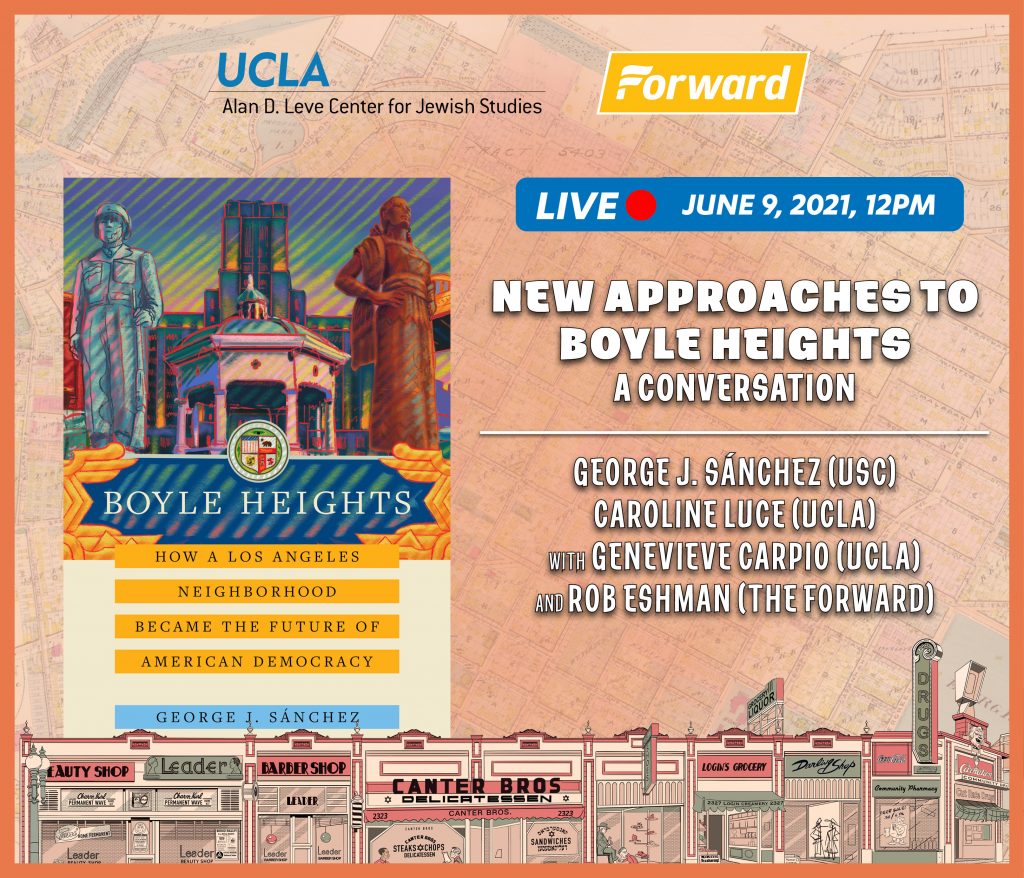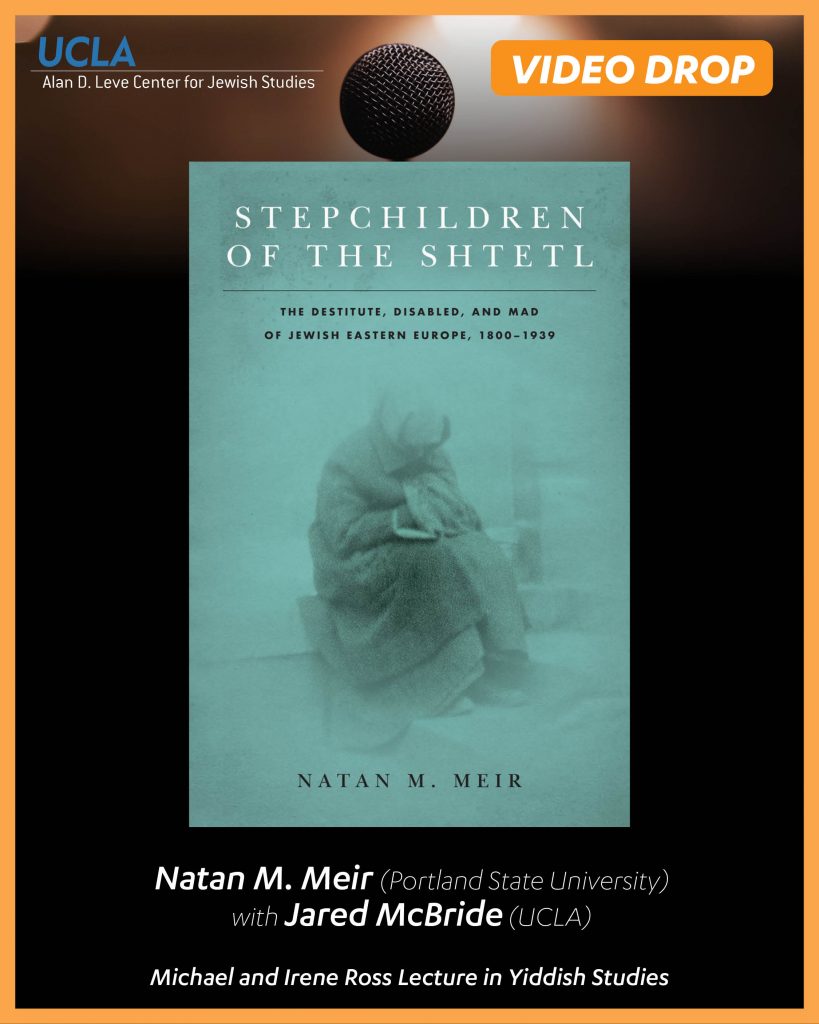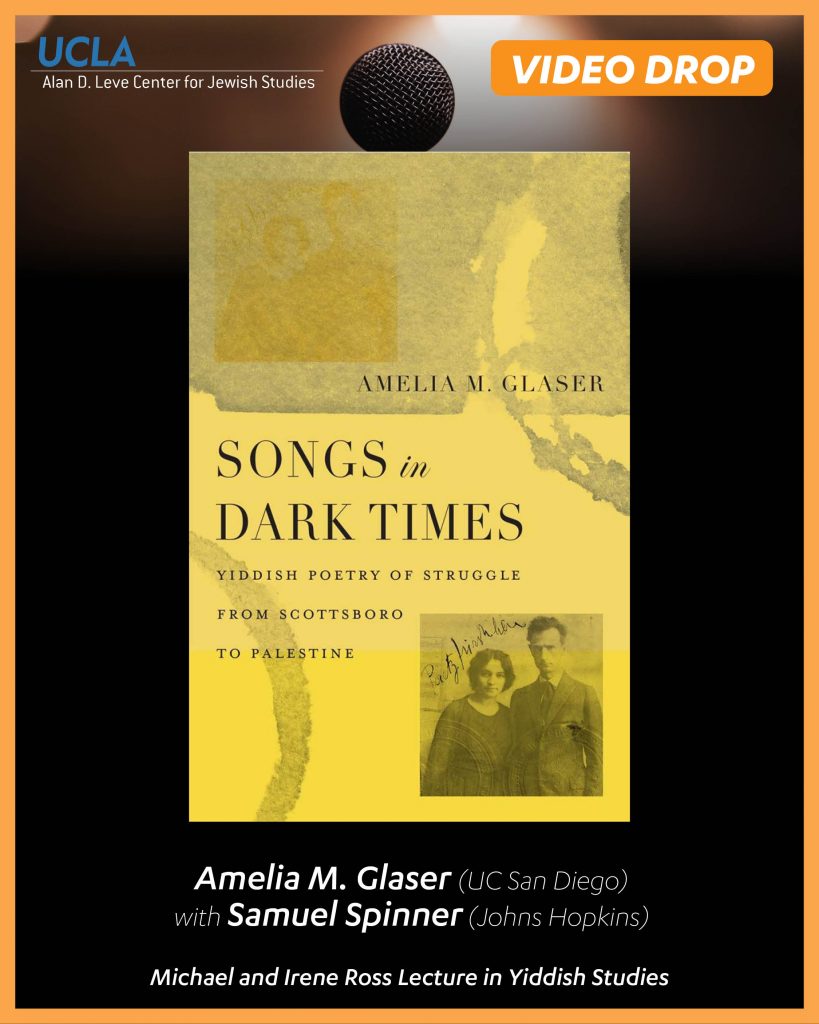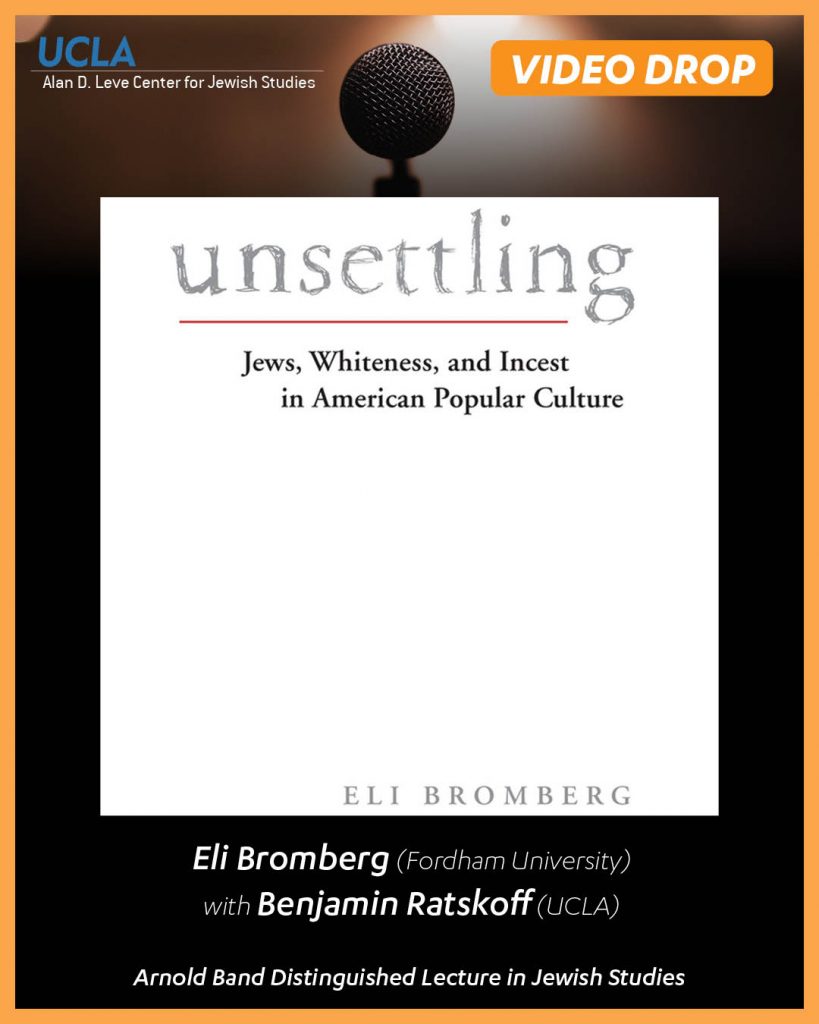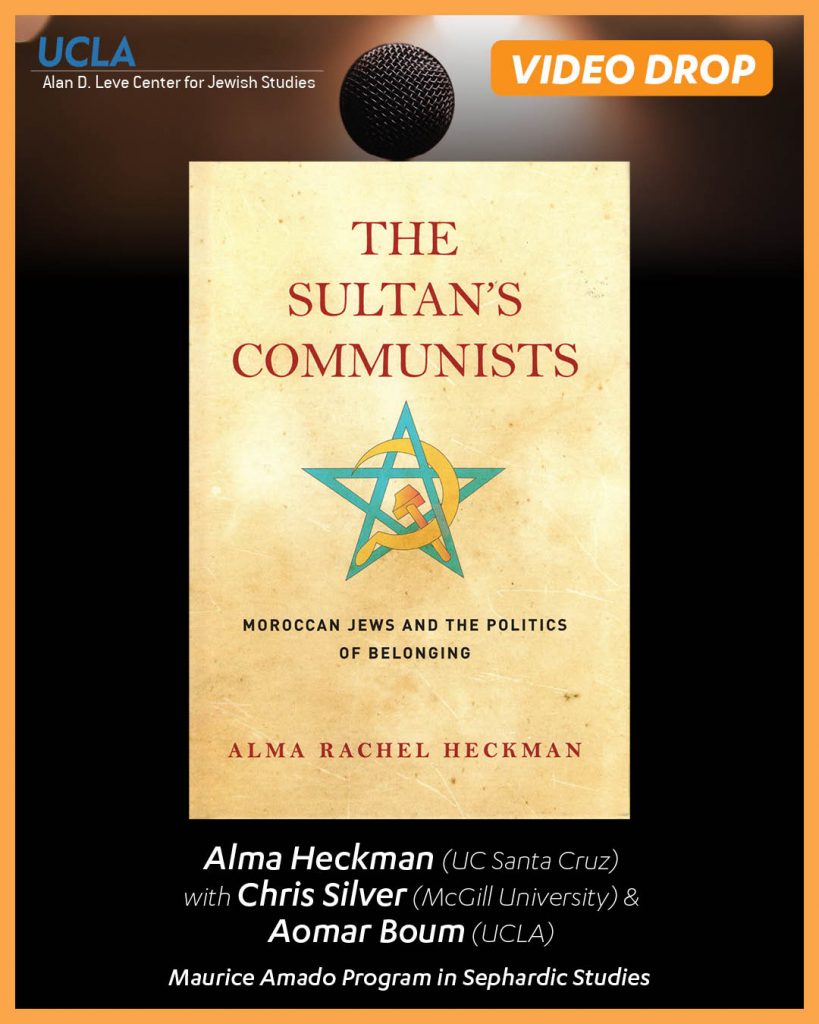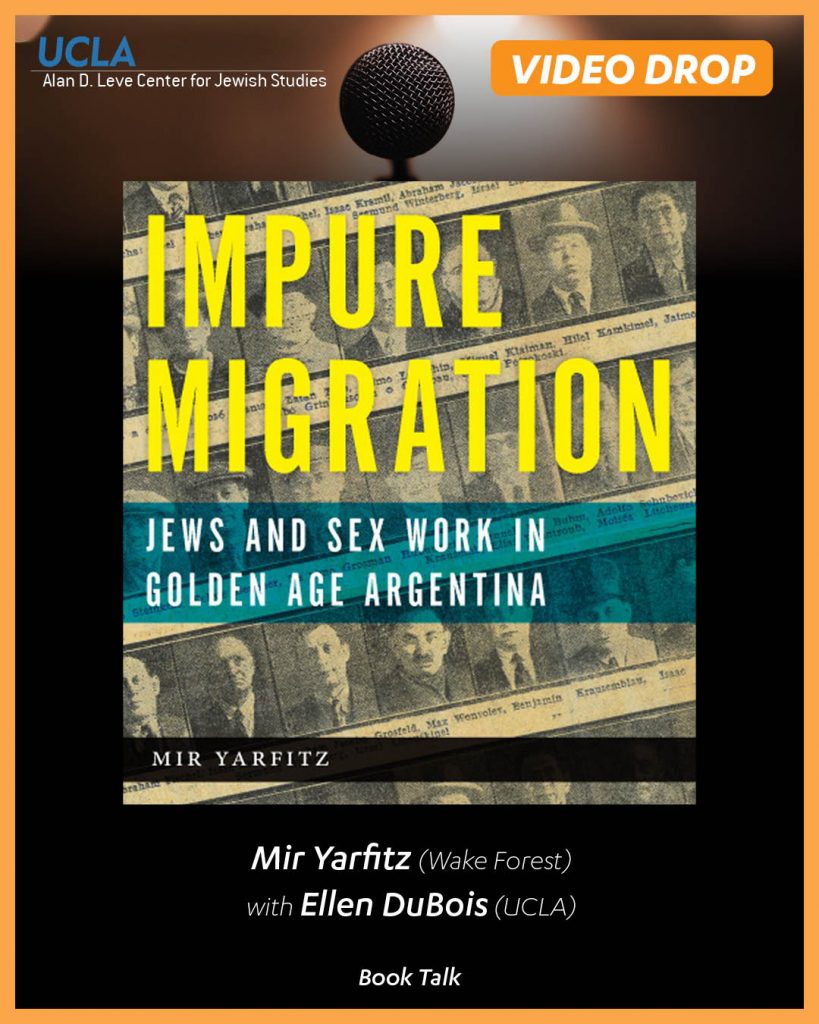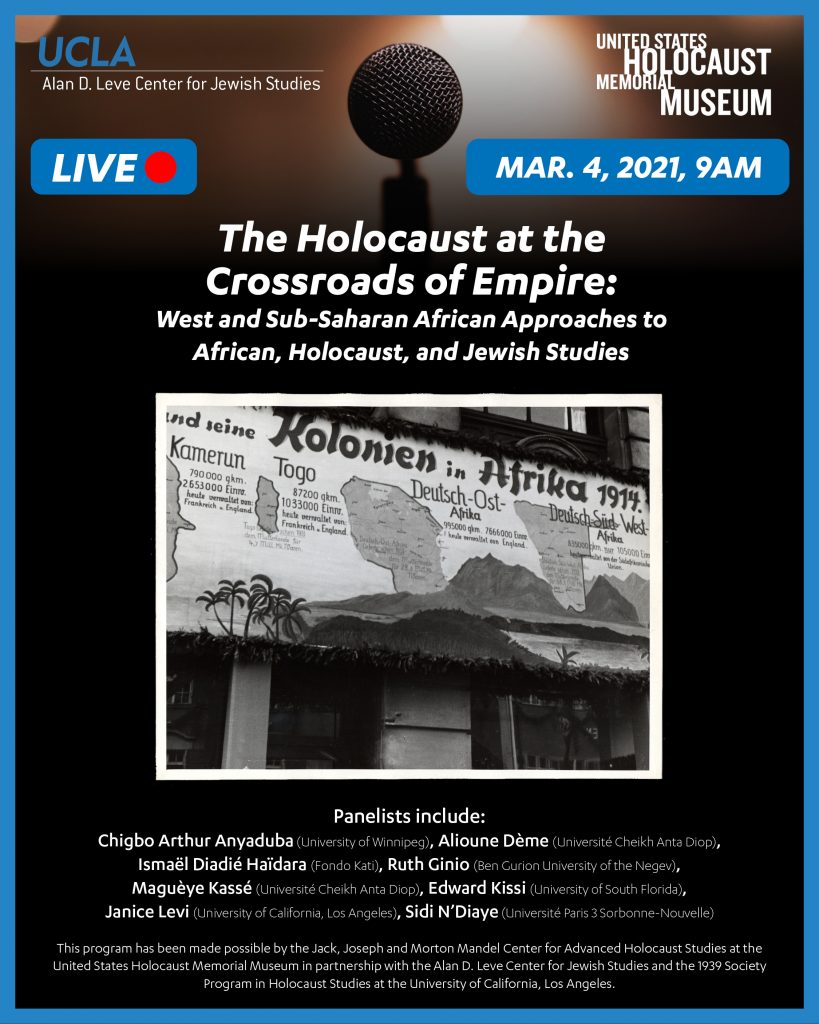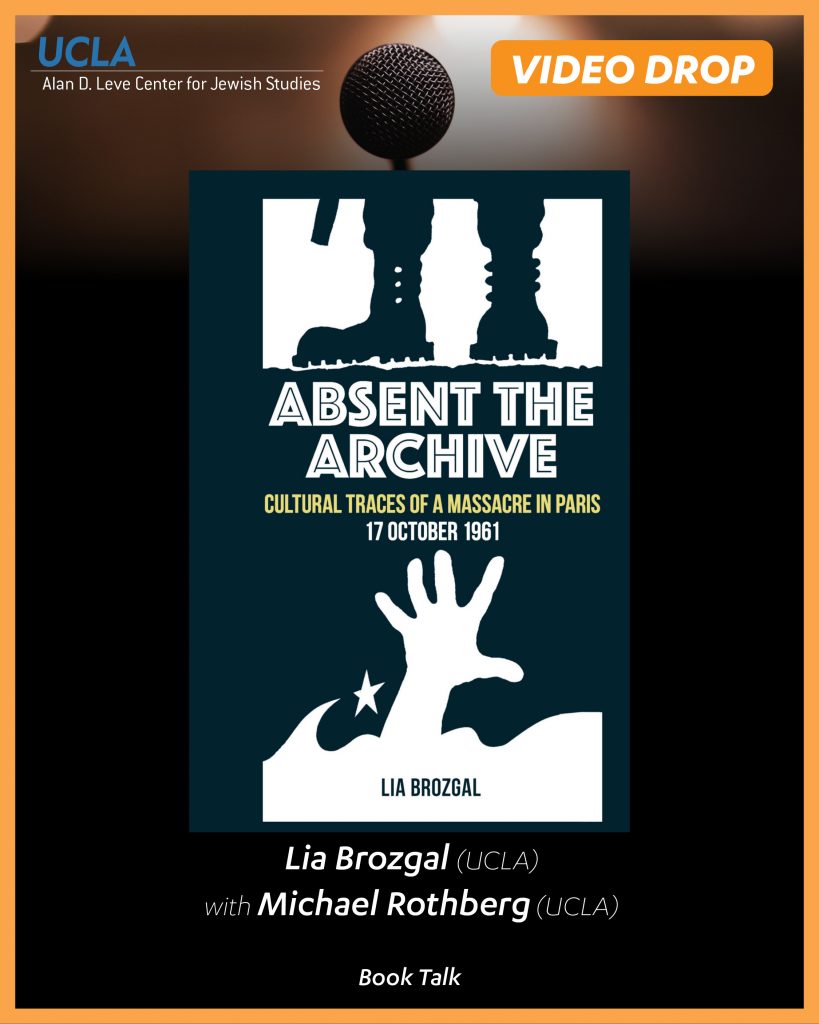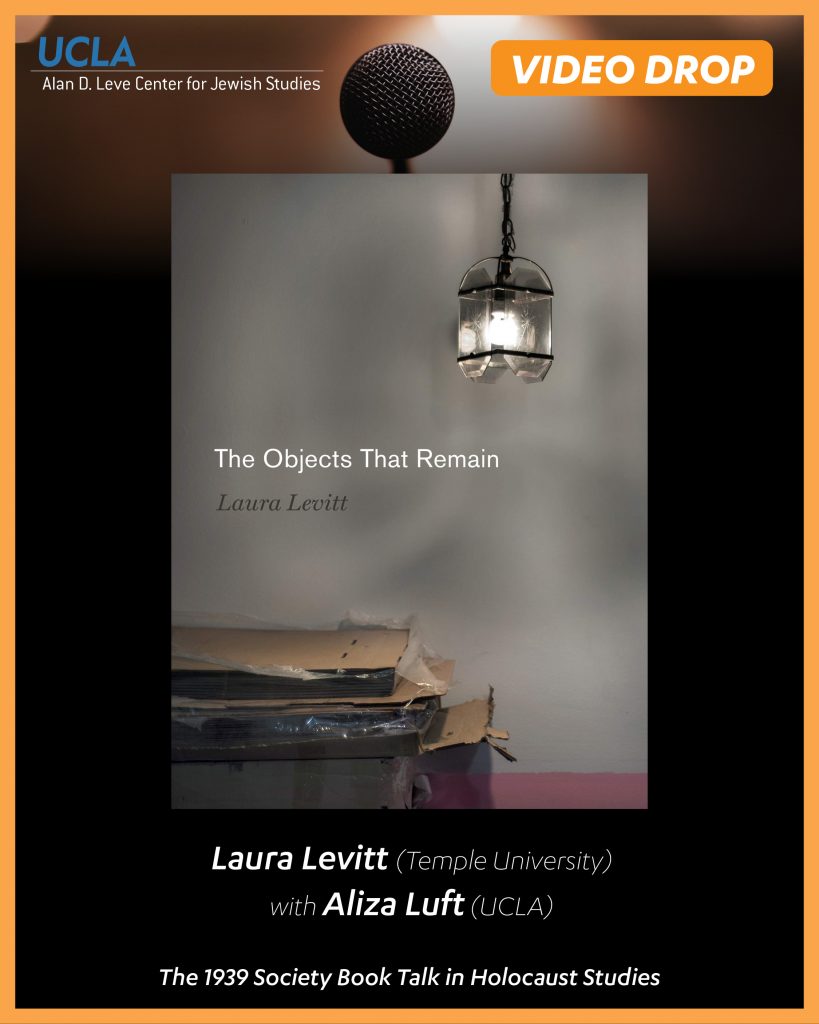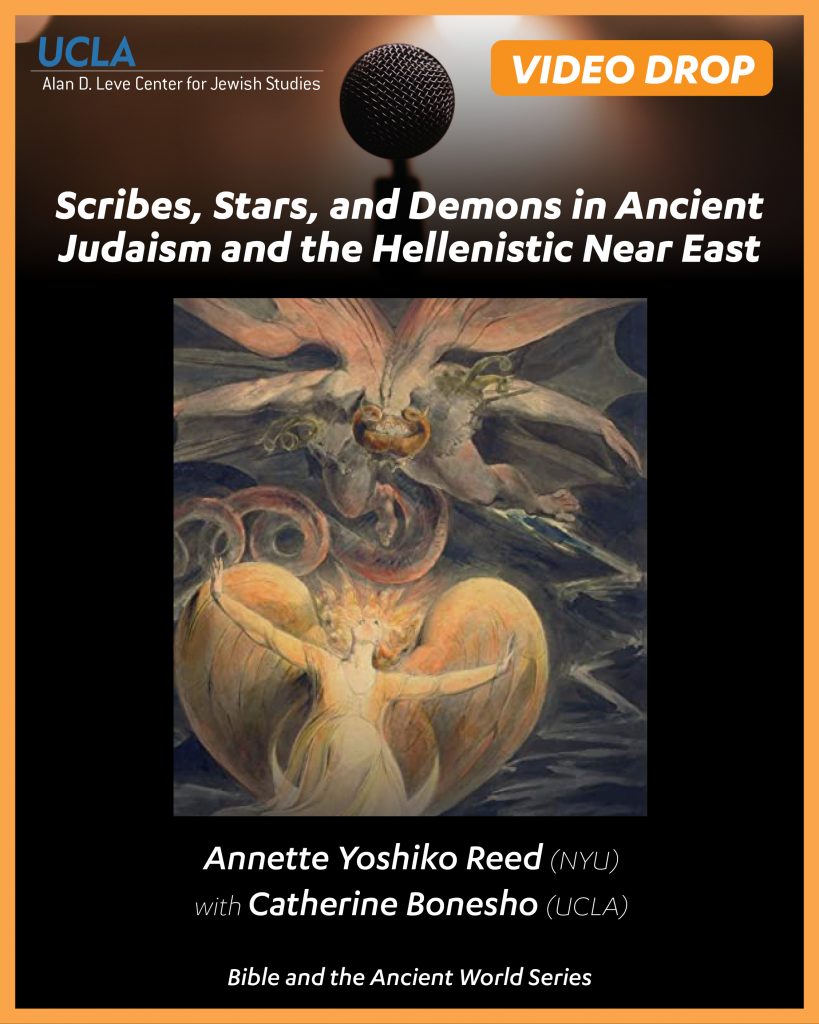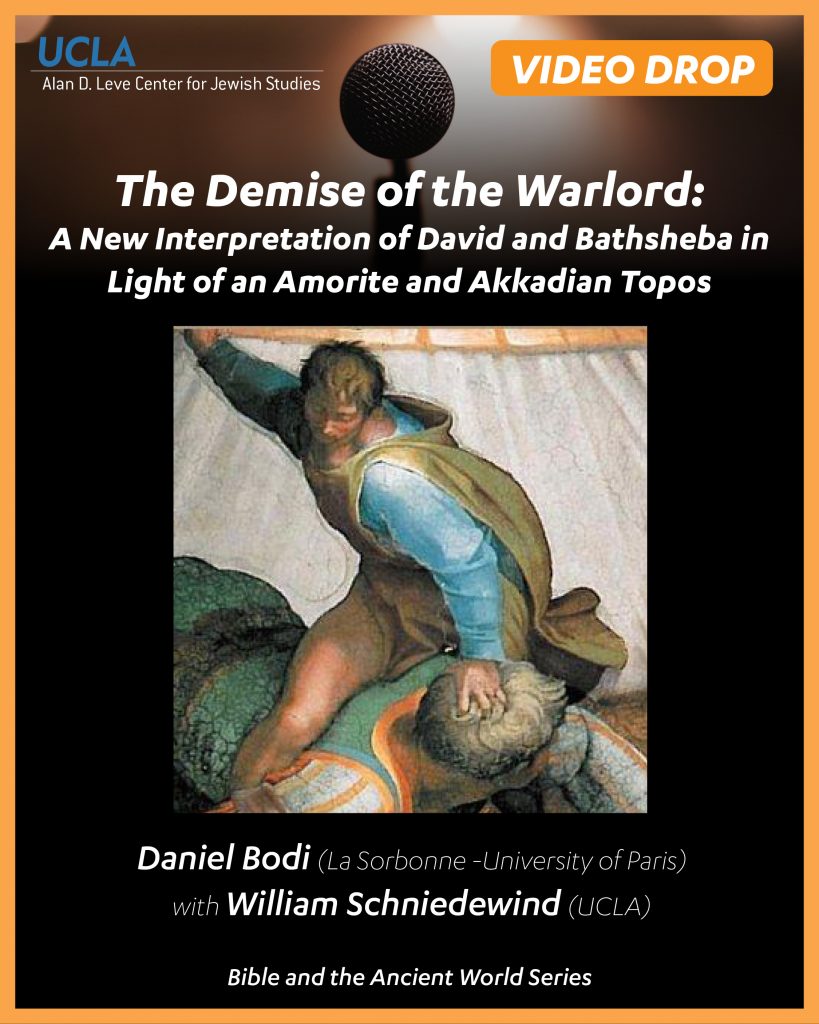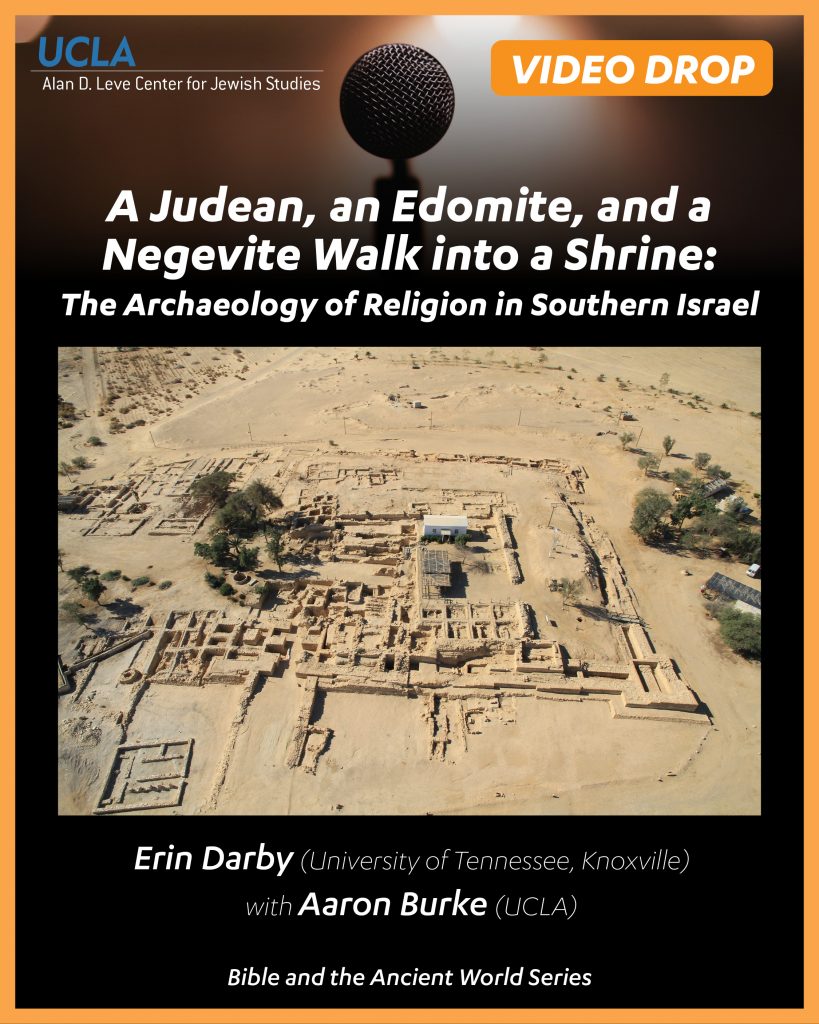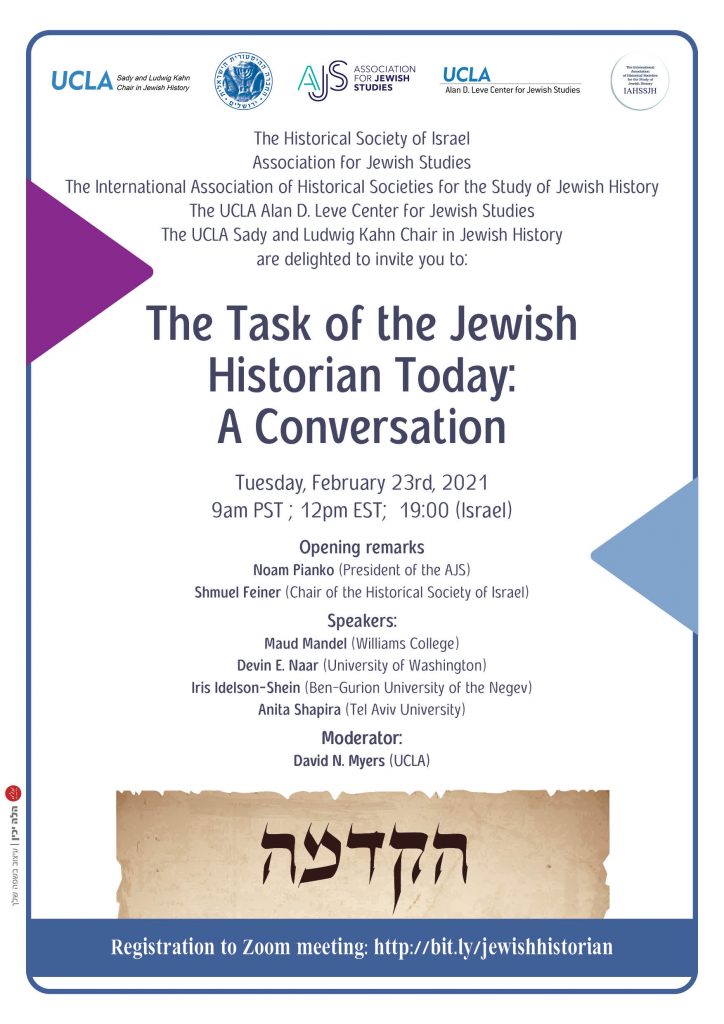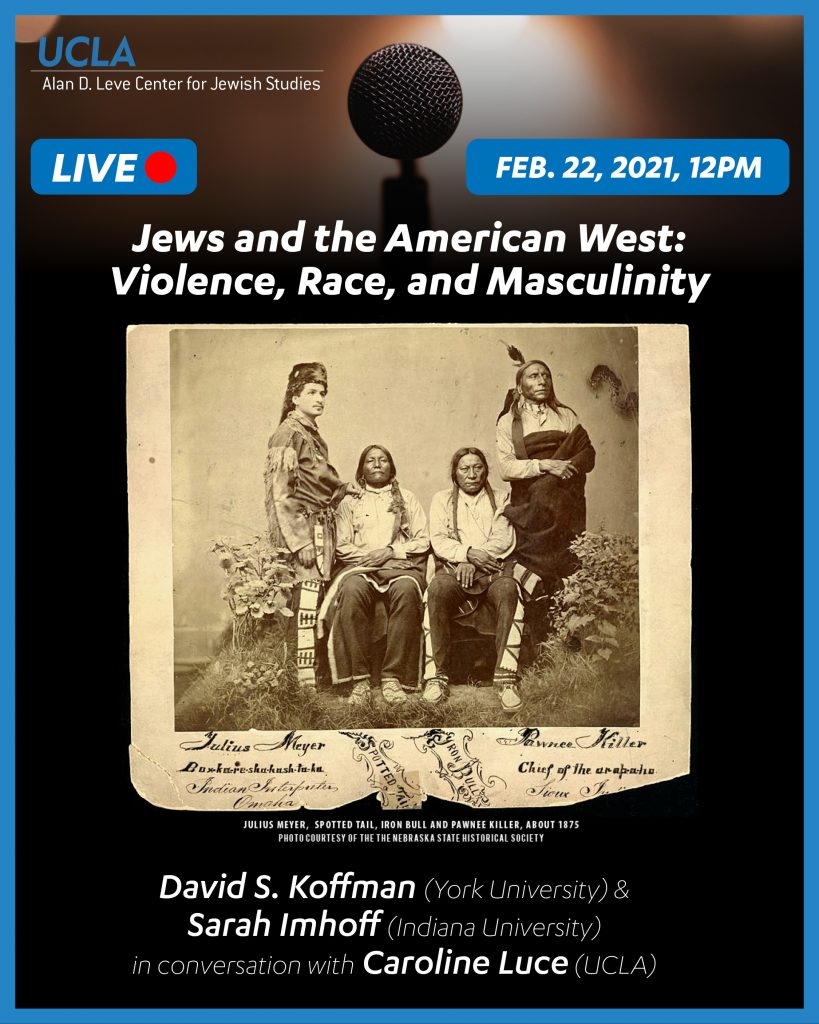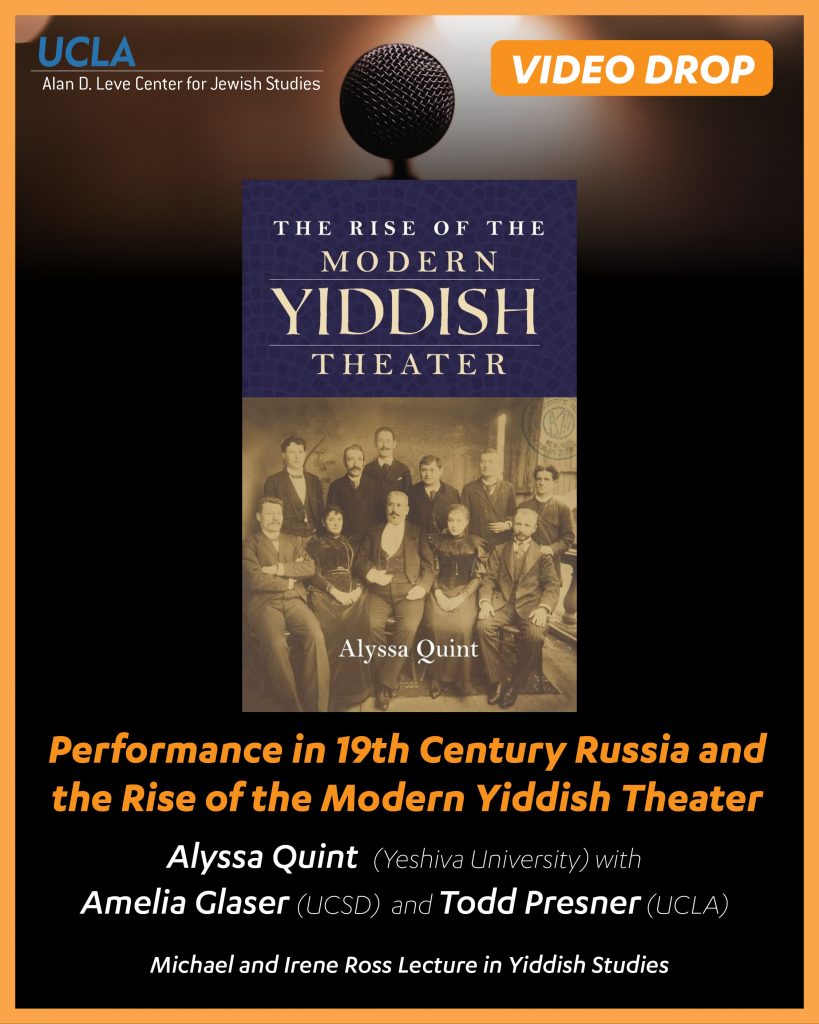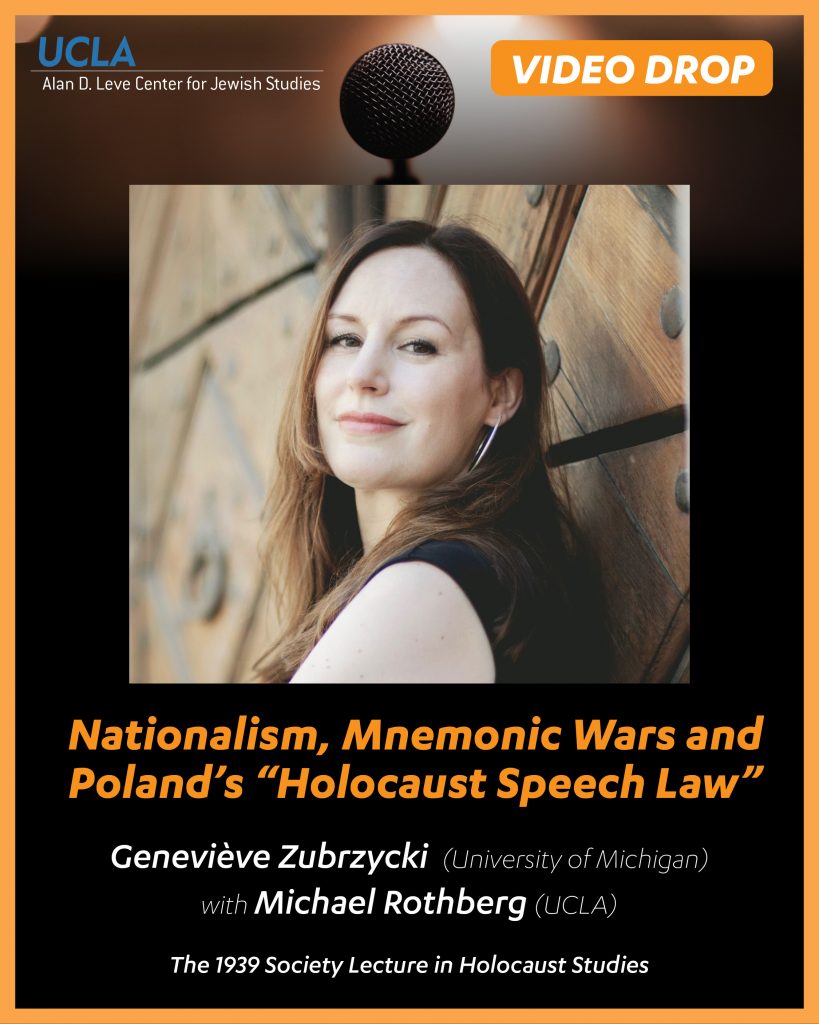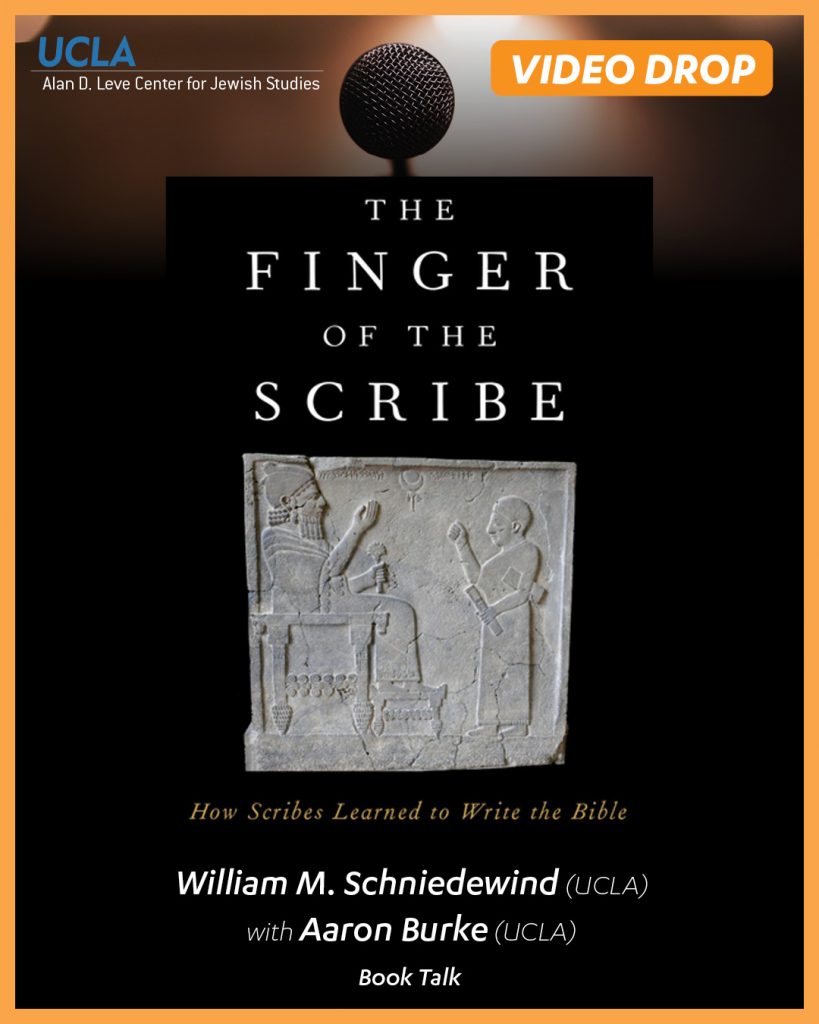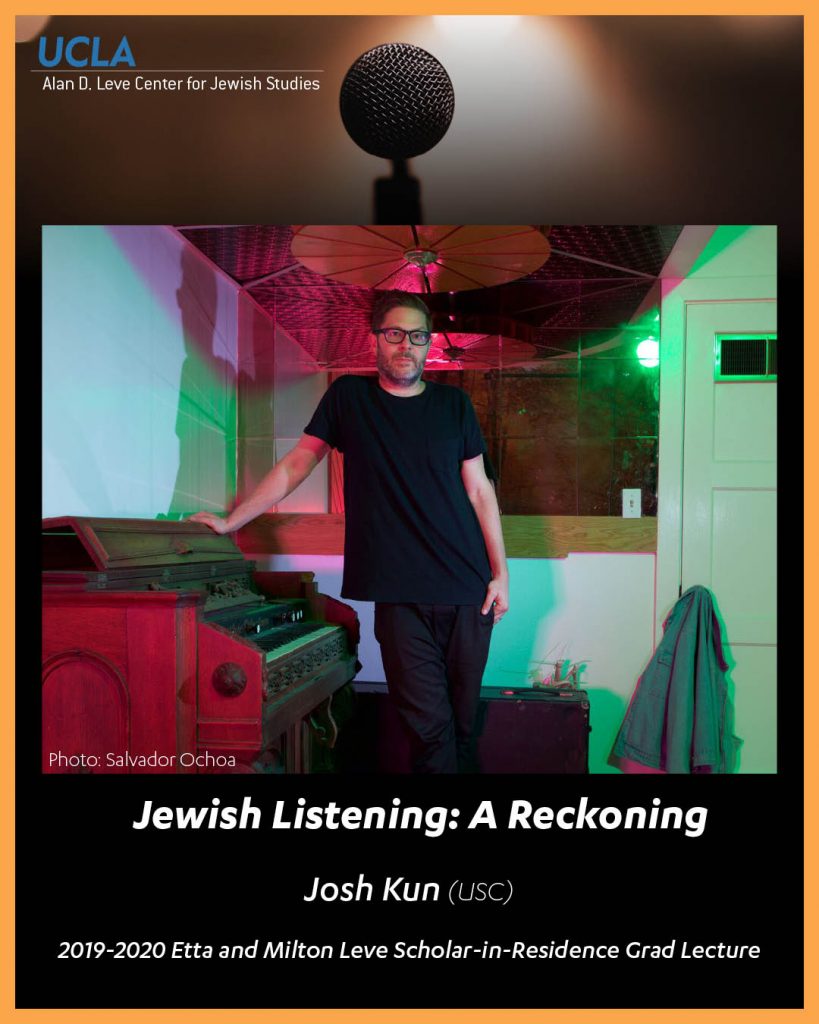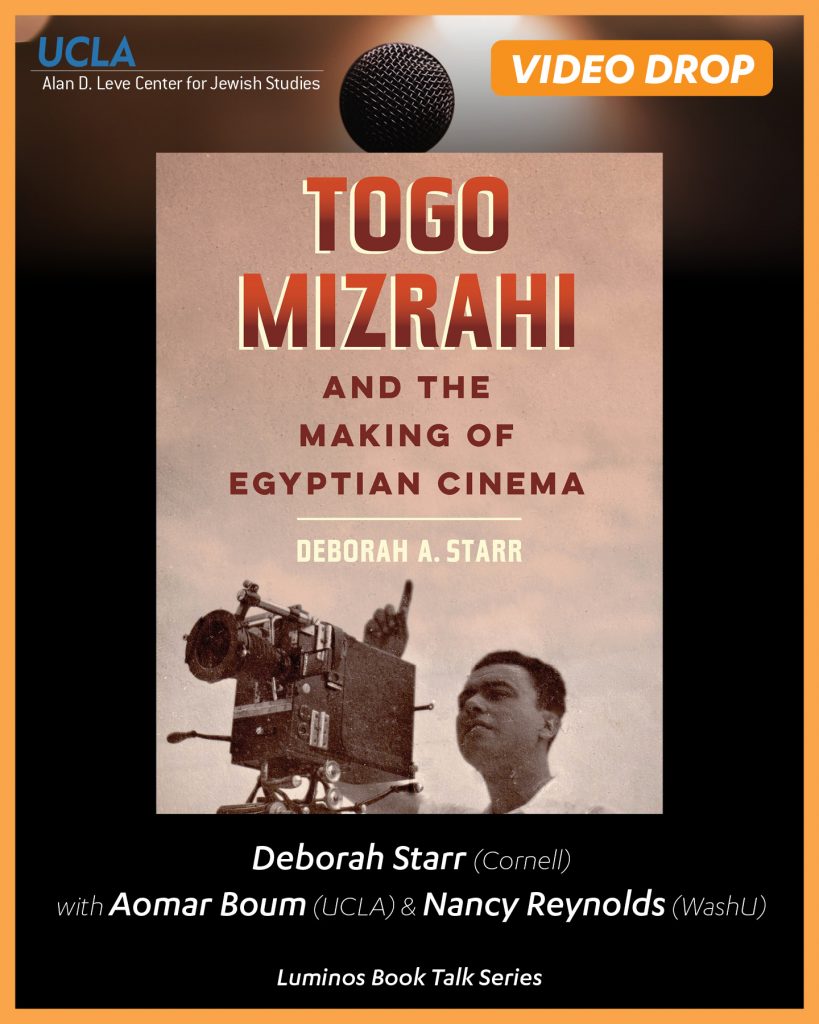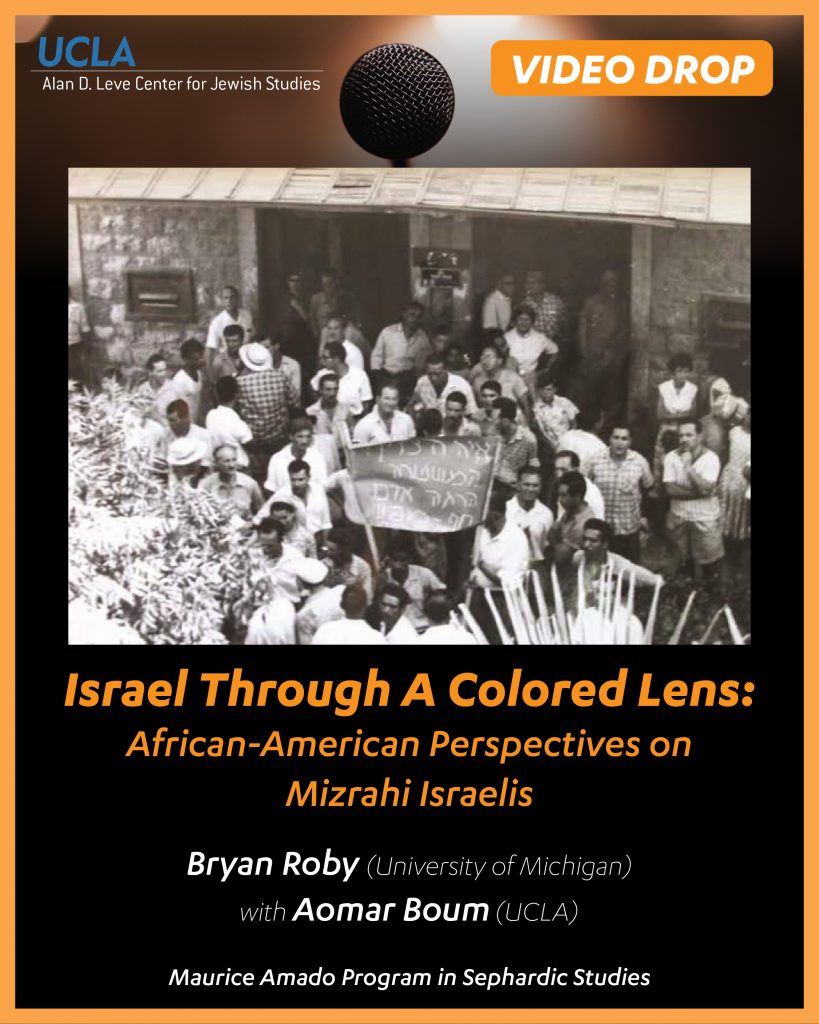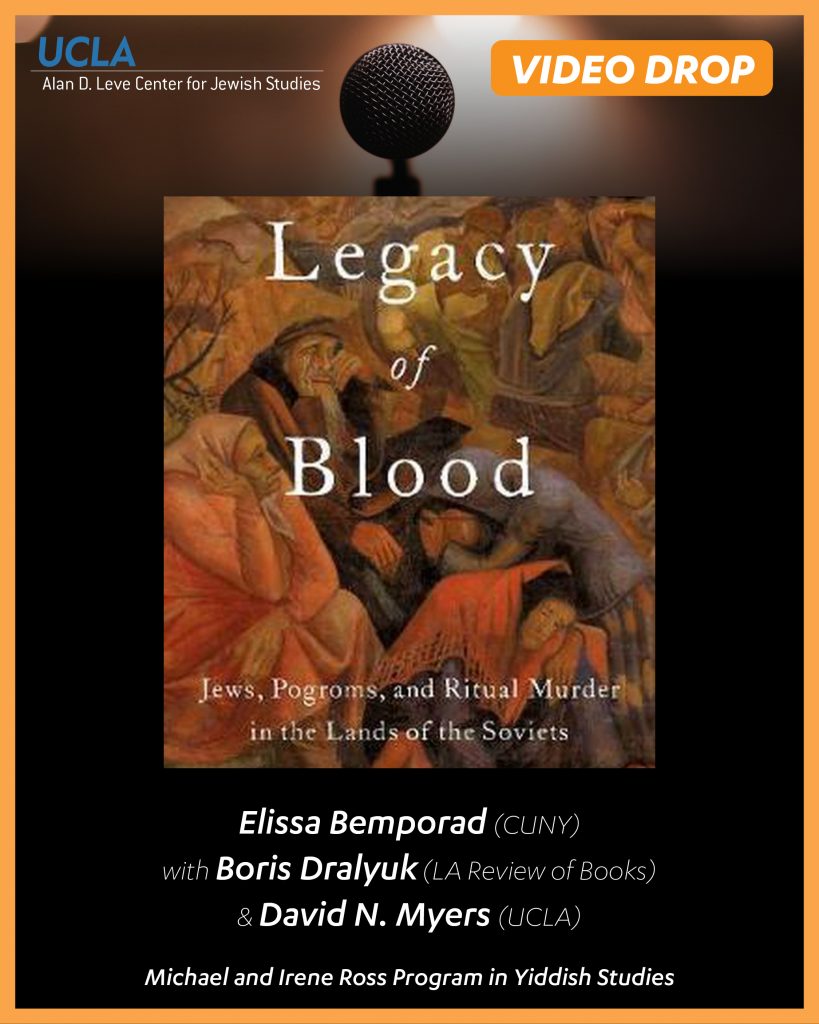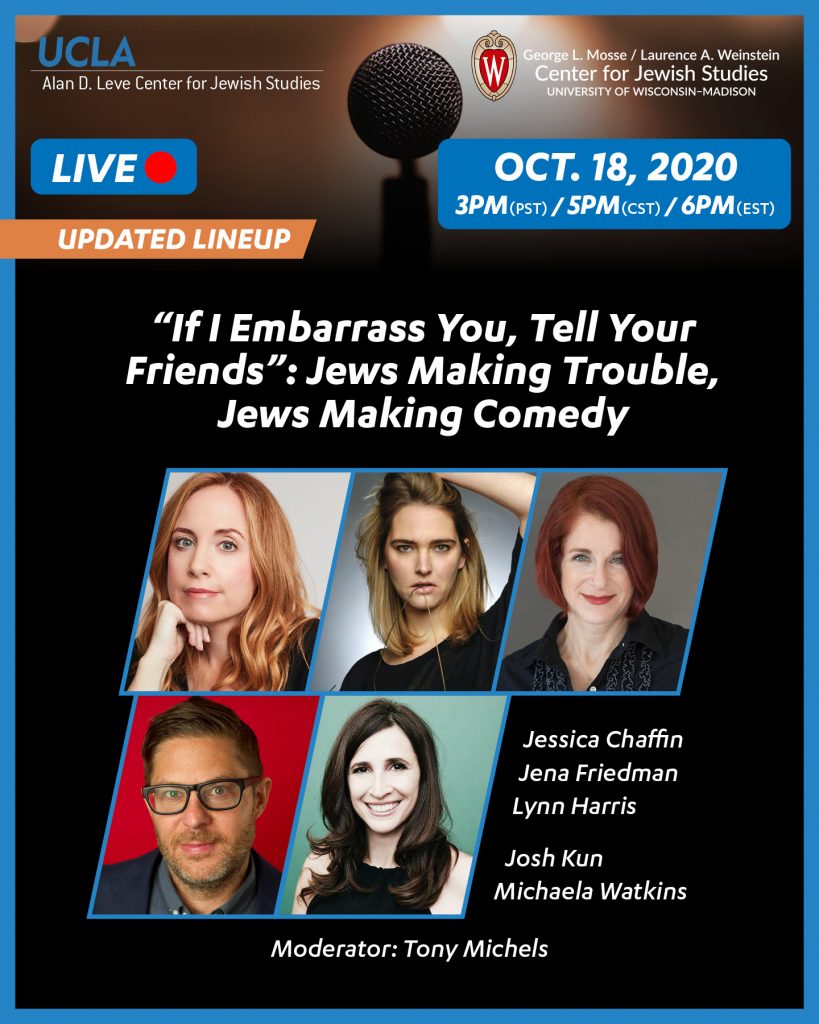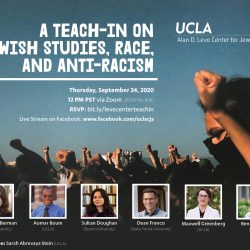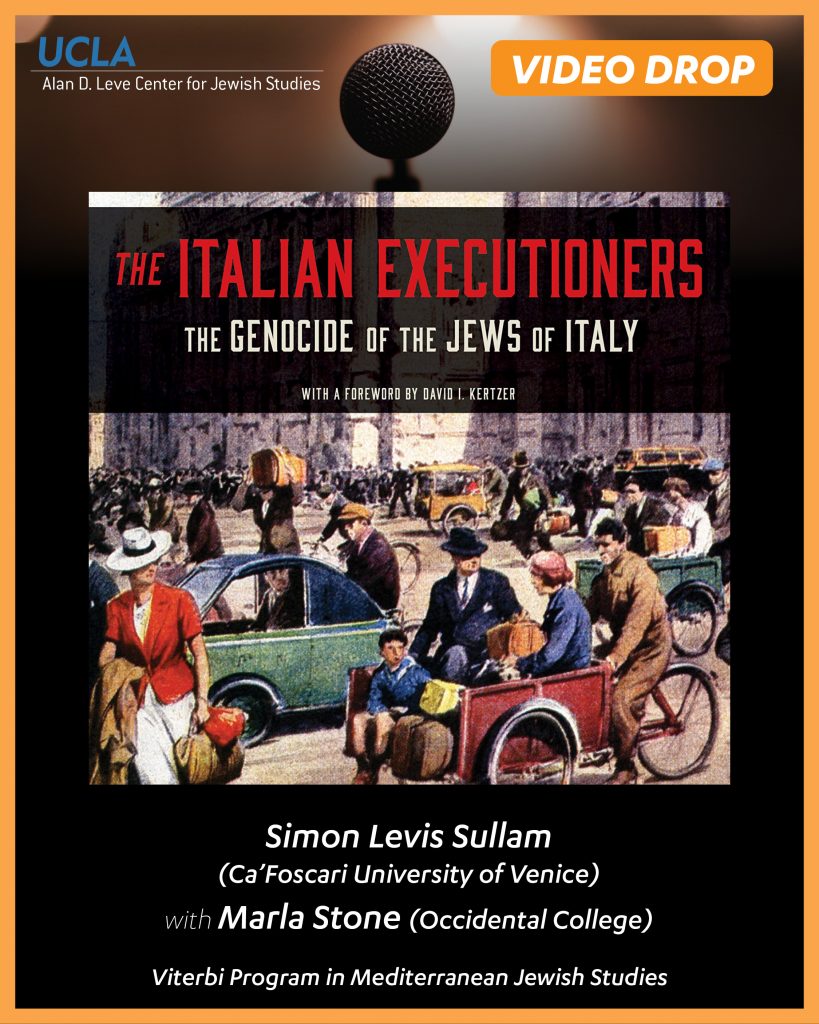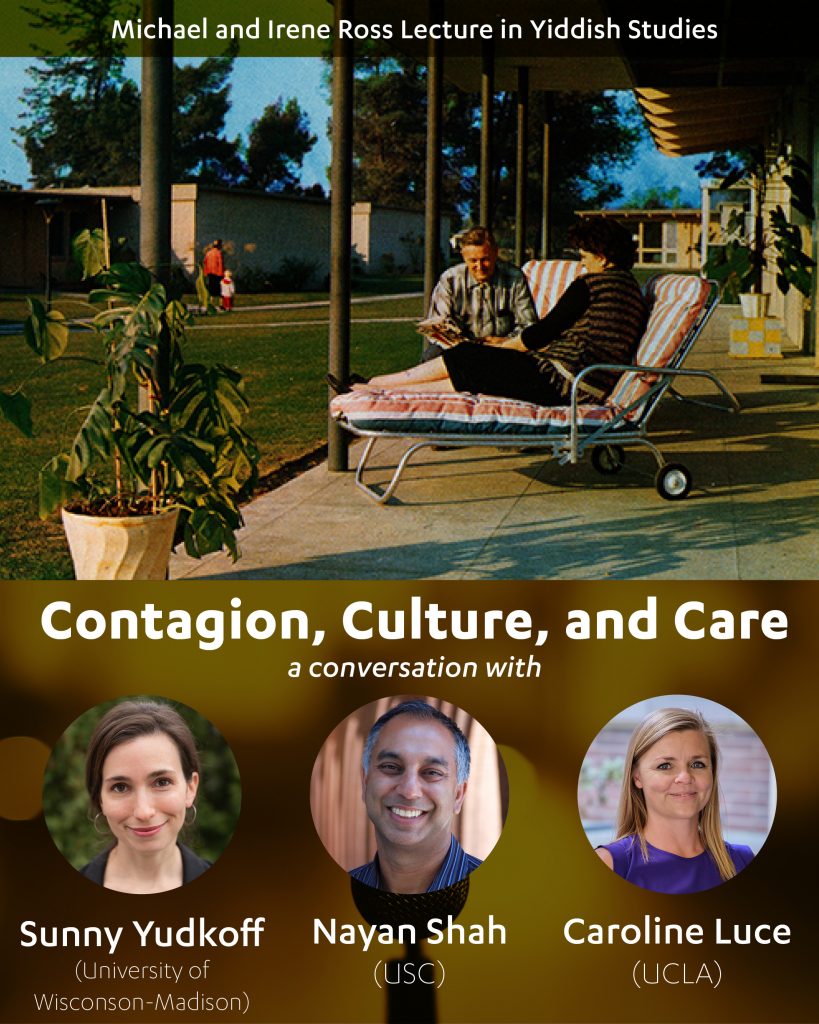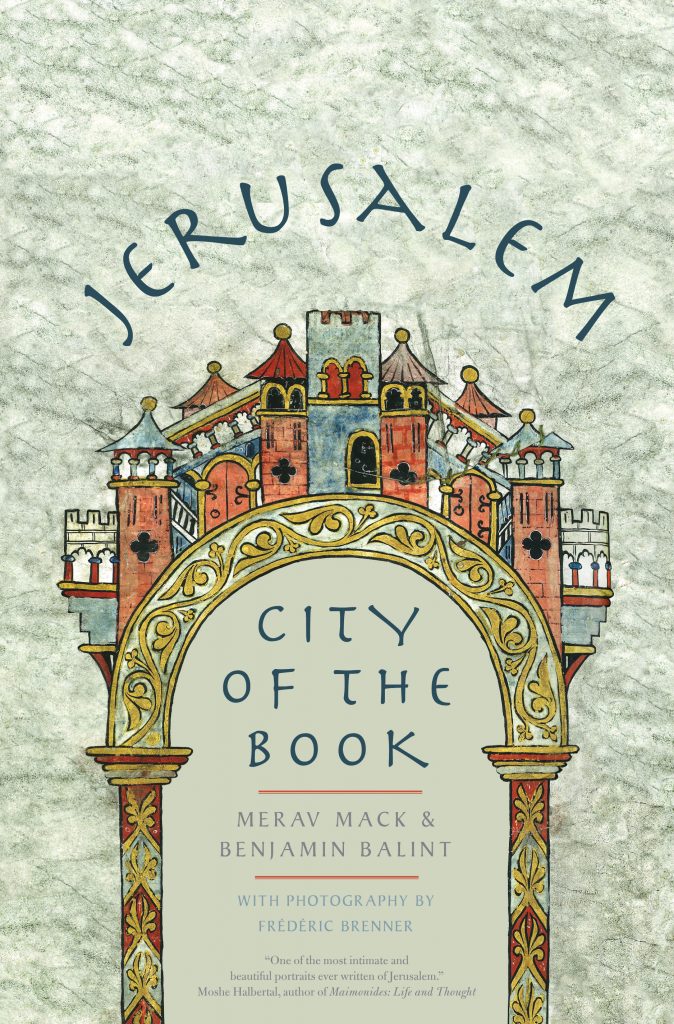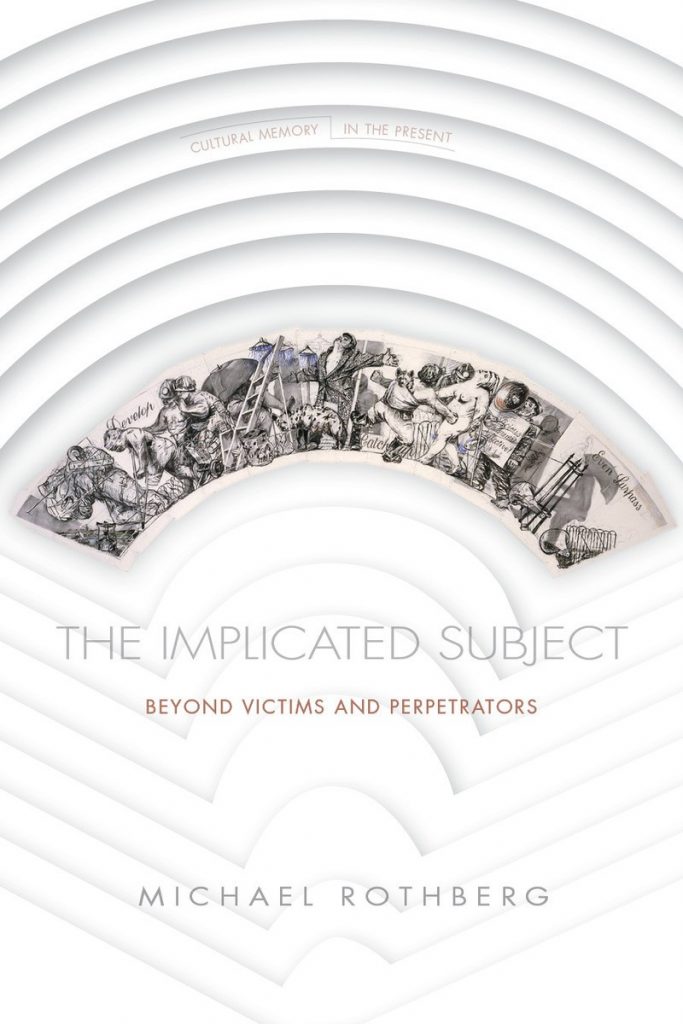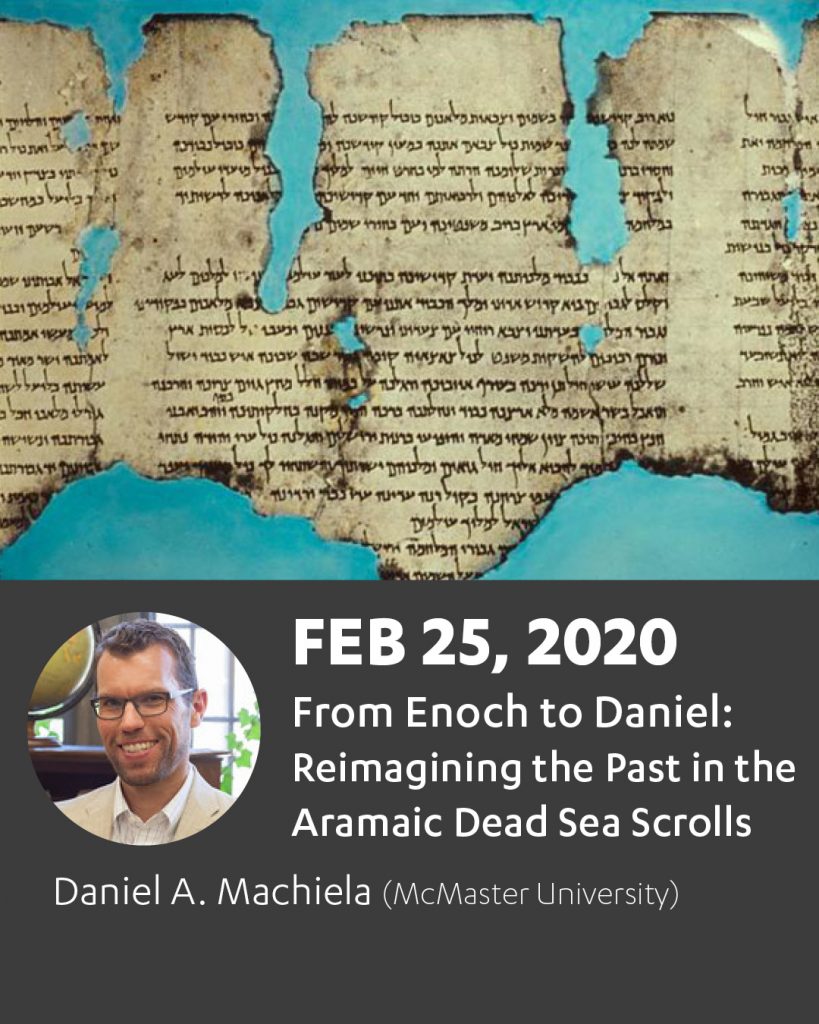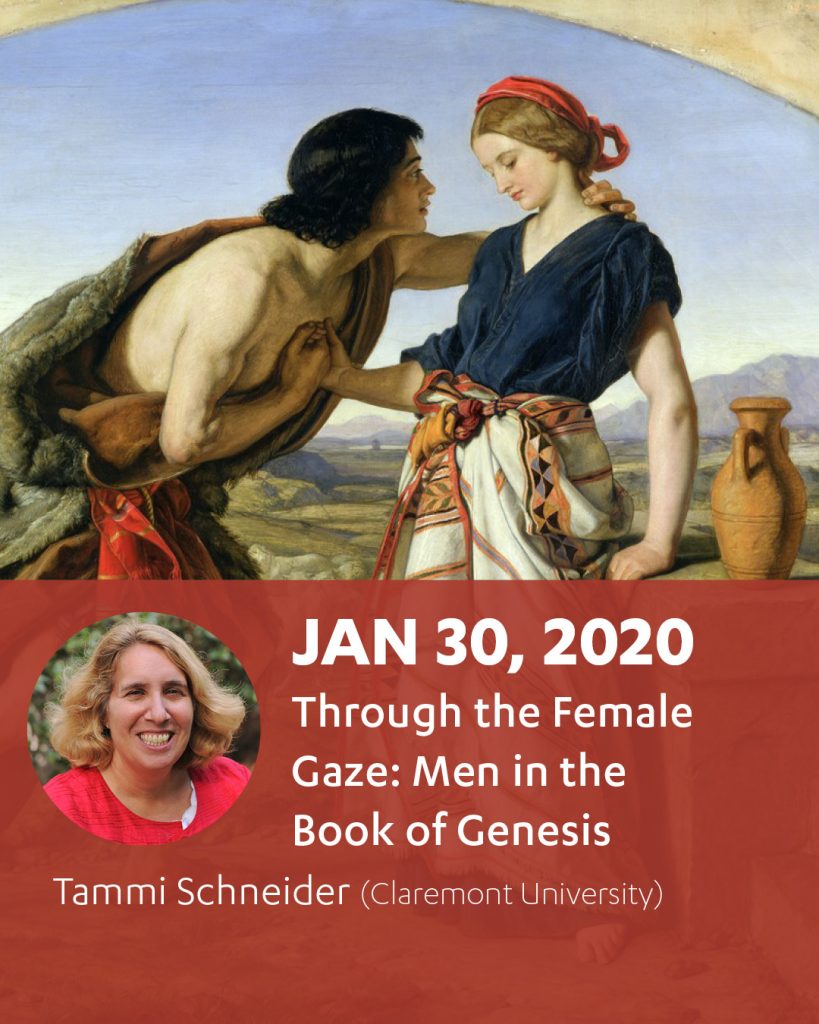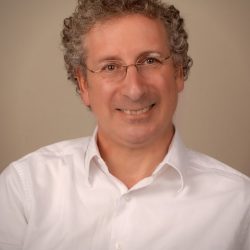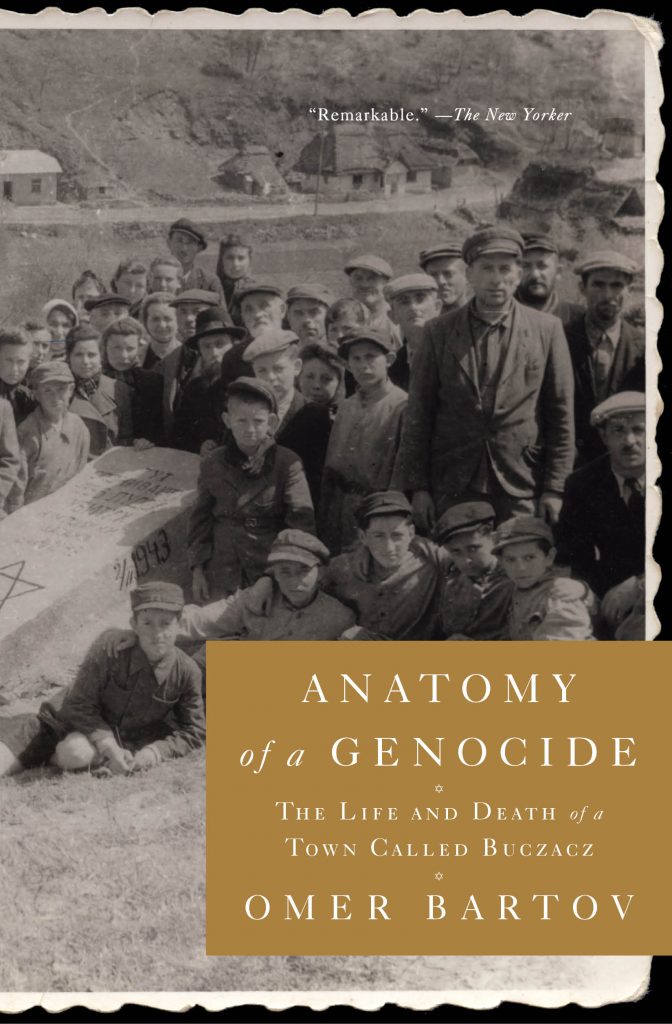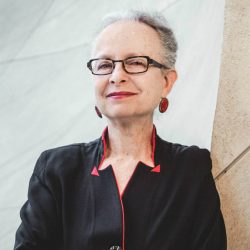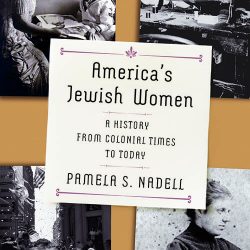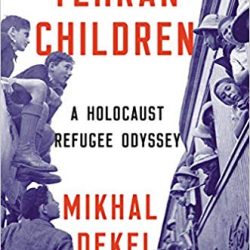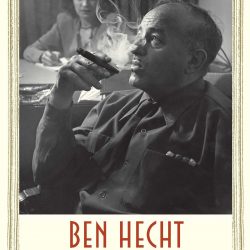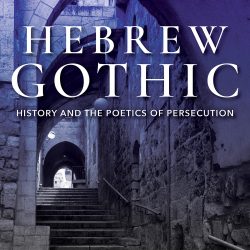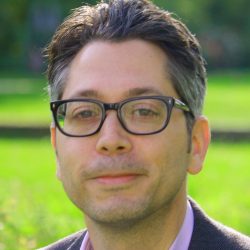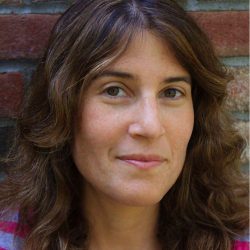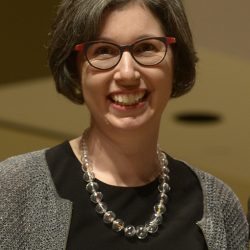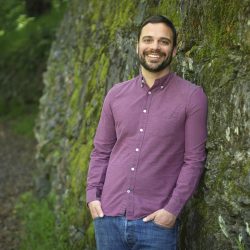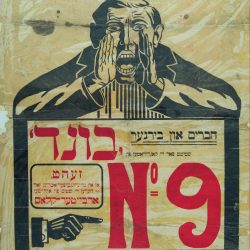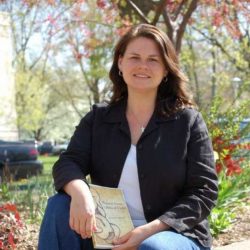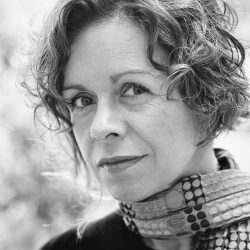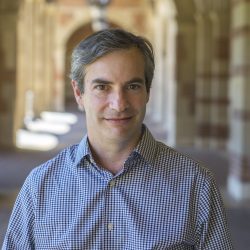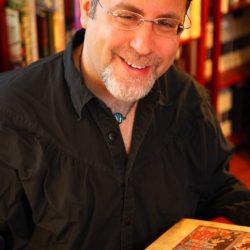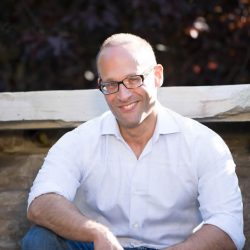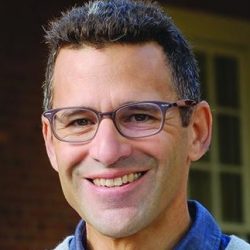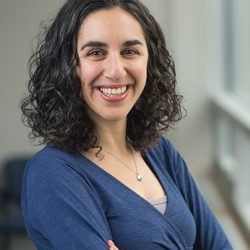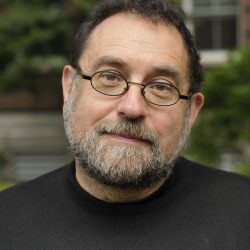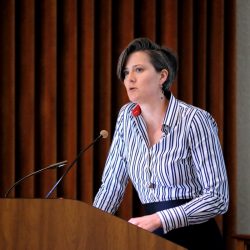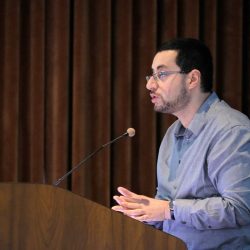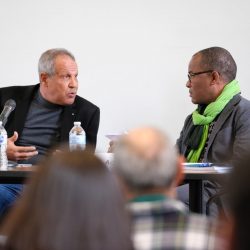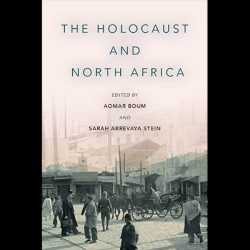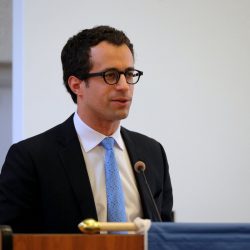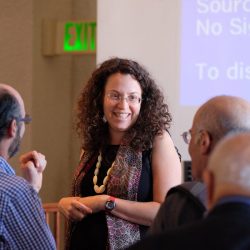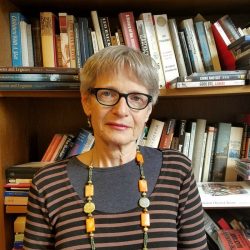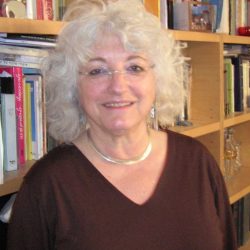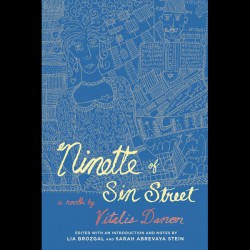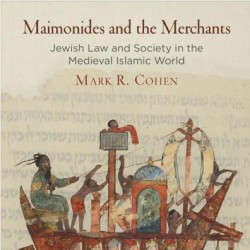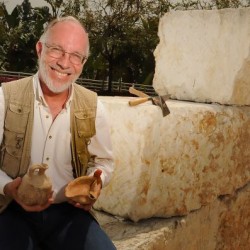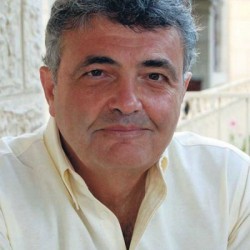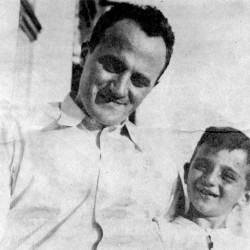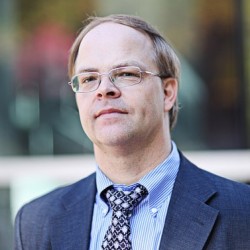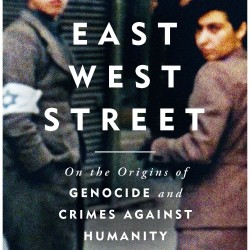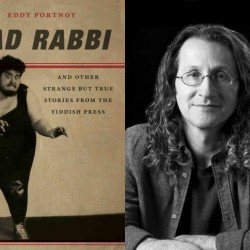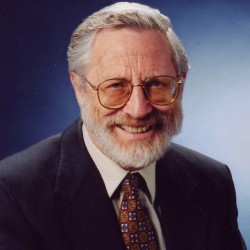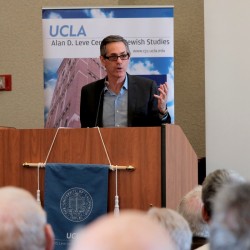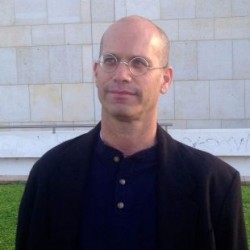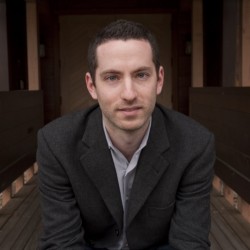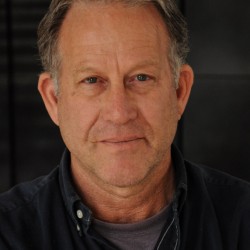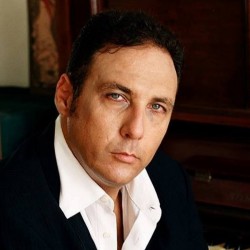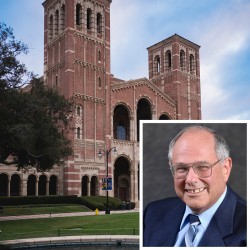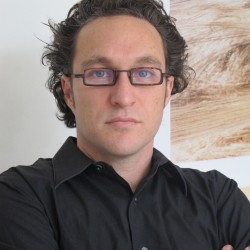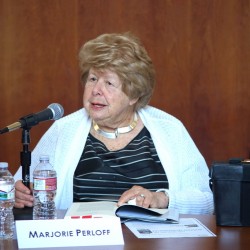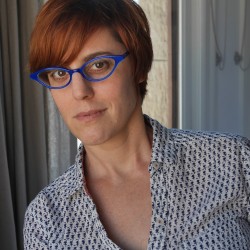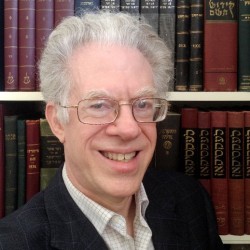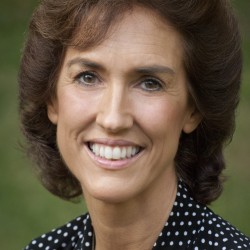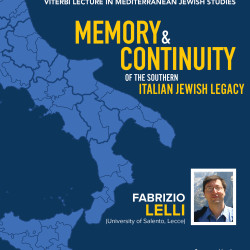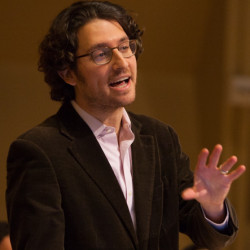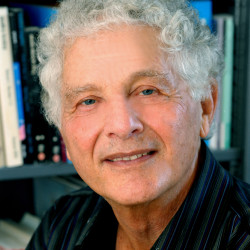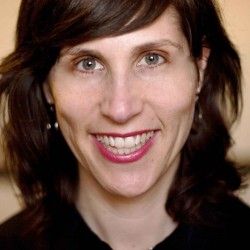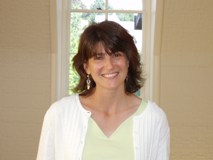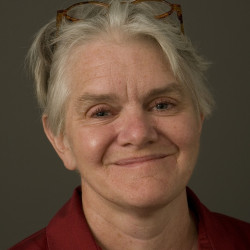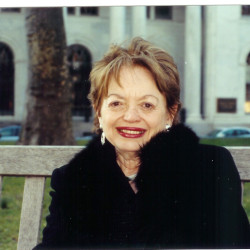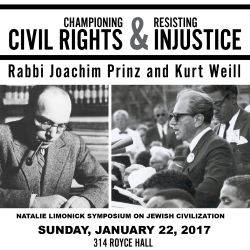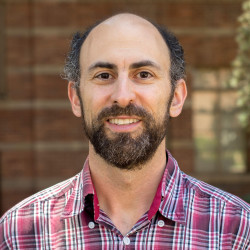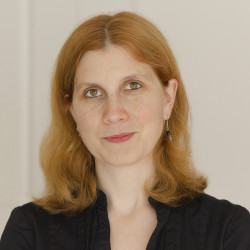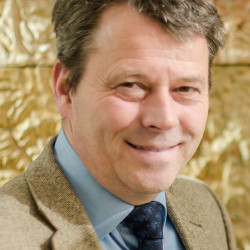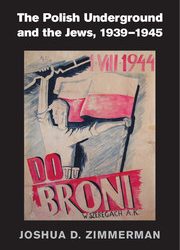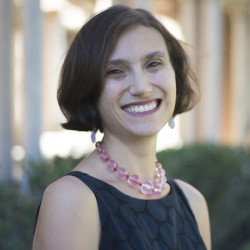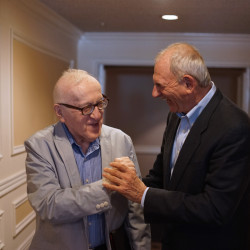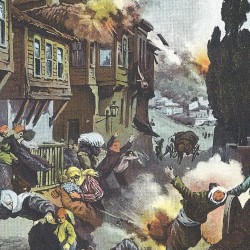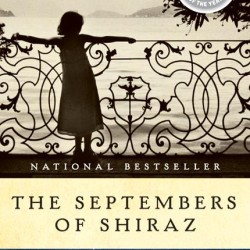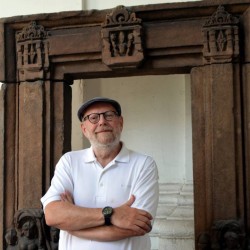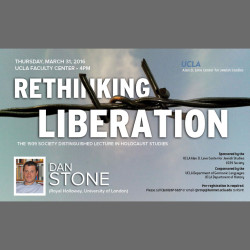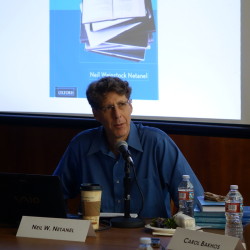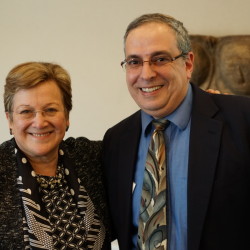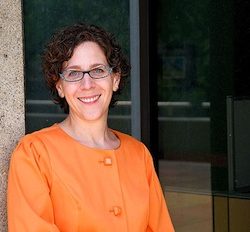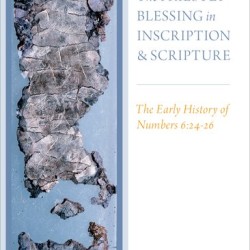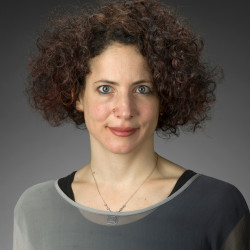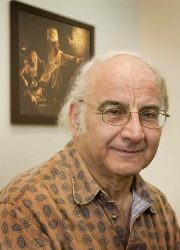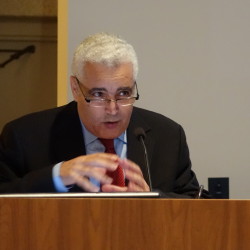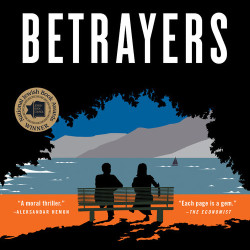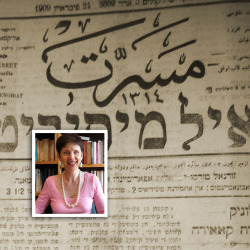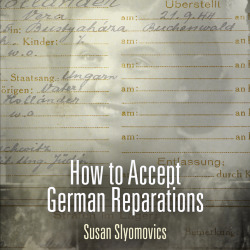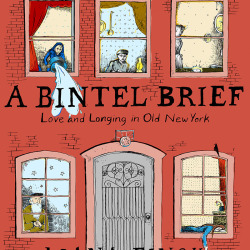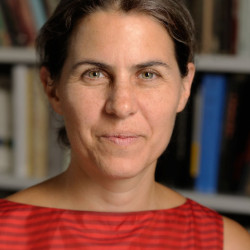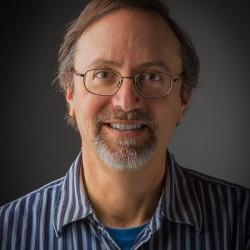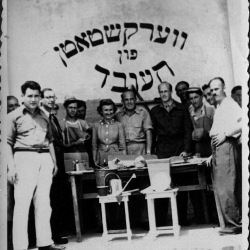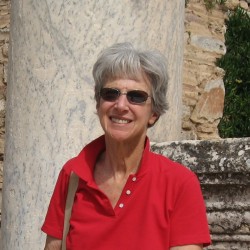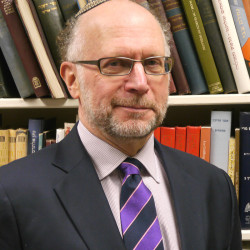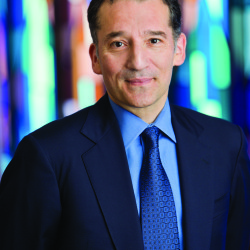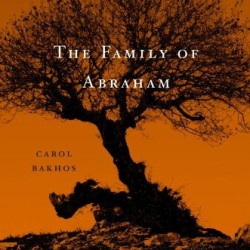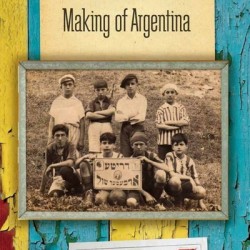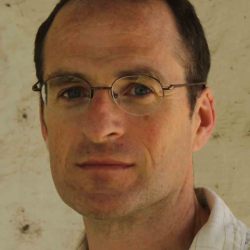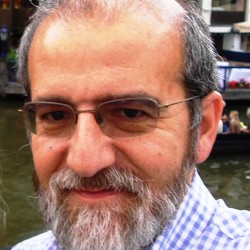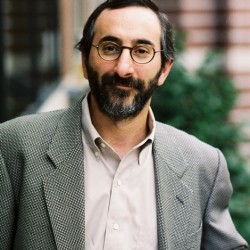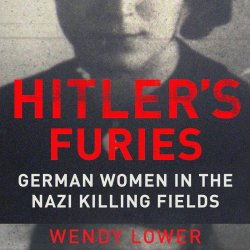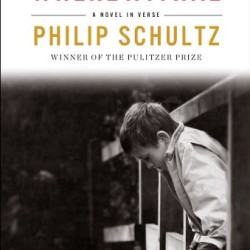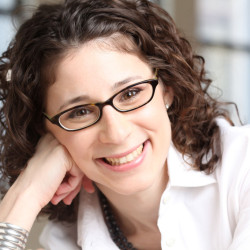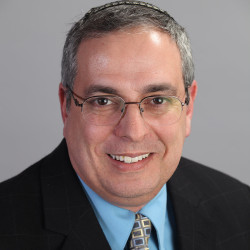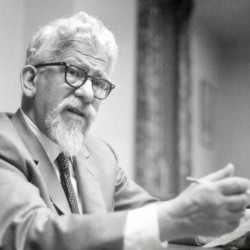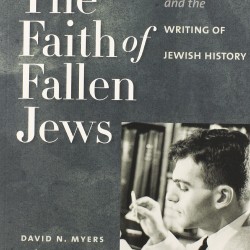
2024-2025 Alan D. Leve Center Talks
Old Order Amish and Ultra-Orthodox women’s responses to cellphone and smartphone use
Rivka Neriya-Ben Shahar (Katz Center at Penn) Moderator: David N. Myers (UCLA)
June 5, 2025
This study examines cellphone and smartphone use among Amish and ultra-Orthodox Jewish women, focusing on their exposure, perceptions, and symbolic interpretations. Despite differing levels of cellphone use (Amish mostly abstain; ultra-Orthodox use “kosher” phones), both groups reject smartphones due to beliefs that their content is impure. The women view smartphones as spiritually harmful, arguing that the device itself—not just its content—disrupts relationships with community, self, and God.
Sponsored by the Alan D. Leve Endowment for Public History and Outreach
Crossroads of Cultures: The Jezreel Valley in the Bronze and Iron Ages
Karen Covello-Paran (Israel Antiquities Authority) Moderator: William Schniedewind (UCLA)
May 27, 2025
The Jezreel Valley, Israel’s largest and most fertile valley, was a key center of social, cultural, and economic activity in the second and first millennia BCE. This lecture examines Canaanite cities, Egyptian rule, and the Kingdom of Israel through archaeology, highlighting how rural communities adapted to changing political powers and how these interactions shaped the valley’s history.
Landscapes of Print: Jews, Arabs, and Judeo-Arabic in Colonial North Africa
Noam Sienna (University of Toronto) Moderator: Aomar Boum (UCLA)
May 22, 2025
This talk examines the 19th-century effort in North Africa to cultivate a modern “Arab Jewish” or “Judeo-Arabic” reading public. Sienna explores the Judeo-Arabic printing industry and how Maghrebi Jews engaged with shifting linguistic and political forces—including colonialism, imperialism, and competing nationalisms. Drawing from his upcoming monograph, he highlights how North African Jews sought to shape complex, intersectional modern identities at the crossroads of Arabness and Jewishness. The talk asks: did they succeed—and what can we learn from their struggle today?
The Maurice Amado Program in Sephardic Studies
Between Two Worlds: Jewish War Brides After the Holocaust
Robin Judd (Ohio State University) Moderator: Jared McBride (UCLA)
May 13, 2025
After the Holocaust, many Jewish survivors and leaders saw marriage between Jews and military personnel as a way to rebuild and repopulate the Jewish community. Historian Robin Judd, whose grandmother married an American soldier after liberation, explores the experiences of survivors who wed military personnel. She details the evolution of these unions—from courtship to immigration and settling in the U.S., Canada, and the UK—while highlighting the complex emotions of joy, guilt, grief, and the challenges of starting anew.
The 1939 Society Program in Holocaust Studies
Final Verdict: The Holocaust on Trial in the 21st Century
Tobias Buck (Journalist/Writer) Moderator: Jared McBride (UCLA)
May 8, 2025
On October 17, 2019, Bruno Dey’s trial begins in Hamburg, where he faces charges for his role in the murder of over 5,000 inmates at the Stutthof concentration camp during World War II, when he was a 17-year-old SS guard. This trial, taking place as the last survivors and perpetrators of the war pass away, raises significant questions about Germany’s history, politics, and collective memory. Tobias Buck uses the trial as a lens to explore his own family’s silence regarding their Nazi past, particularly his grandfather’s responsibility, while reflecting on the individual’s role in a murderous regime.
The 1939 Society Program in Holocaust Studies
Haredi Women in the Arts in the Digital Age: Contradictions and Paradoxes
Jessica Roda (Georgetown) Moderator: Mark Kligman (UCLA)
May 1, 2025
Ultra-Orthodox women artists, like Bracha Jaffe and Devorah Schwartz, have captivated large audiences with music videos, films, and Yiddish plays, yet remain largely unnoticed due to their communities’ emphasis on privacy. Popular portrayals, such as Netflix’s Unorthodox, often depict Hasidic women as uncreative and subordinate, overlooking their vibrant artistic worlds. This talk will explore the hidden creative spaces of Hasidic women, their rise to public performance, and their efforts to reshape perceptions of Hasidic life. Despite the rarity of celebrity status, figures like Jaffe and Shaindy Platzer have made a significant impact on Jewish music and culture.
Book Talk
Rethinking the Dilemma of Bombing Auschwitz: Support, Opposition, and Reservation
Zohar Segev (University of Haifa) Moderator: David N. Myers (UCLA)
April 3, 2025
The deportation of Jews from Hungary to Auschwitz-Birkenau began in May 1944, and the camp’s location within range of Allied bombers led to calls for its bombing. The camp was never bombed, and this failure has become a symbol of the powerlessness of both the free world and Jewish leadership to save Europe’s Jews. New research into the archives of American Jewish activists, particularly Leon Kubowitzki of the World Jewish Congress, reveals that Jewish and Zionist leaders requested the US not to bomb Auschwitz. Instead, they sought alternative military actions. This strategic approach, often dismissed by scholars, was a significant effort to weaken the camp’s operations without direct bombing.
The 1939 Society Program in Holocaust Studies
Ladino In & Beyond the Home – 13th Annual ucLADINO Judeo-Spanish Conference
April 2, 2025
In its thirteenth consecutive year, the ucLADINO conference supports and celebrates the growing preservation of Ladino language and culture in the Judeo-Spanish diaspora. The theme for this year’s ucLADINO conference centers around Ladino in and beyond the home, exploring language and culture in domestic spaces and in migration. How has Ladino taken shape within domestic worlds and how has Ladino adapted in transit, carried from one home to the next?
Persian Imperial Mythology and the Origins of Jewish Demonology
Mark Leuchter (Temple University) Moderator: Catherine Bonesho (UCLA)
March 12, 2025
Jewish literature of the Hellenistic period and beyond evidences a steady increase in lore about demons and their dangers. These beings are agents of chaos, threats to the created order, enemies of God and dangers to the safety and integrity of Jewish life. But contrary to scholars who see this as a result of the encounter with Hellenism, the origins of this concept of demonology can be traced to the experience of Jews in Persian Yehud and the function of Achaemenid mythology within imperial society. The rise of demonology is coeval and indeed coextensive with the fall of the Persian empire and the implications of a failed myth of imperial order.
Etta and Milton Leve Scholar in Residence Series
Is Mel Brooks Also Among the Prophets?
Mark Leuchter (Temple University) Moderator: William Schniedewind (UCLA)
March 11, 2025
Jewish tradition is a cornerstone of Mel Brooks’s films, in both explicit and implicit ways. An example of the latter is a moment in his 1974 film Blazing Saddles that uses the trope “the People of the Land” found throughout classical Jewish discourse and early rabbinic literature, with biblical origins. Brooks’s use of this trope has very strong points of contact with the prophetic literature of the Hebrew Bible, which also engages this language for humorous purposes. But the humor in the prophetic texts is deployed not for laughs but for shock value, presenting audiences with a radically different understanding of what “the People of the Land” had come to mean by their day. In a subtle way, Brooks’s use of the term does the same. So…is Mel Brooks also among the prophets?
Etta and Milton Leve Scholar in Residence Series
Sephardic Stories
Elizabeth Graver (Author) and Michael Frank (Author) with Sarah Abrevaya Stein (UCLA)
March 6, 2025
For this year’s Al Finci Memorial Lecture two award-winning authors gather to discuss their writing and what drew them to Sephardic stories. Elizabeth Graver’s fifth novel, Kantika (Metropolitan Books/Holt, 2023), is a dazzling multi-generational saga that moves from Istanbul to Barcelona, Havana, and New York, exploring themes of displacement, endurance, family, and home.
Michael Frank’s One Hundred Saturdays: Stella Levi and the Search for a Lost World (Avid Reader Press, 2022), tells the remarkable story of the now hundred-and-one-year-old Stella Levi whose conversations with the author over the course of six years bring to life the vibrant world of Sephardic Jewish Rhodes, the deportation to Auschwitz that extinguished ninety percent of her community, and the resilience and wisdom of the woman who lived to tell the tale.
Al Finci Distinguished Lecture in Jewish Studies
Sephardic Culinary Heritage of the Jews of Spain According to the Oldest Medieval Spanish Cookbook
Hélène Jawhara Piñer (Fordham) Moderator: Aomar Boum (UCLA)
March 4, 2025
The transmission of Jewish culinary traditions has been crucial in shaping the Sephardic culinary heritage, reflecting the resilience and identity of Jewish communities in Spain. Despite historical challenges, Jewish cuisine has preserved its distinct flavors through family recipes and techniques. While modern Jewish cookbooks are common, medieval cookbooks, like the thirteenth-century Kitāb al-ṭabīẖ from the Iberian Peninsula, are exceptional. This text is the oldest known source to mention Jewish recipes and provides insight into the multicultural environment of the time. The inclusion of Jewish recipes in this Arabic-written cookbook raises questions about cultural exchange and adaptation, offering a deeper understanding of Sephardic cuisine and Iberian society’s complex social dynamics.
Maurice Amado Program in Sephardic Studies
Reckoning with the Roots of Antisemitism and Racism
Magda Teter (Fordham) Moderator: David N. Myers (UCLA)
February 11, 2025
In 2017 in Charlottesville, antisemitism and anti-Black racism converged as white supremacists, in a highly choreographed and violent protest against the removal of a statue honoring a Confederate general, carried Confederate flags and chanted “Jews will not replace us.” In this talk, Magda Teter, the author of Christian Supremacy: Reckoning with the Roots of Antisemitism and Racism, will explain the deep roots of that connection and explore the interplay between Christian theology and law to demonstrate how legal and theological frameworks created centuries ago have led to the creation of social hierarchies, legal exclusion of and a denial of equality to Jews and Black people also in modern times.
Naftulin Family Program on Studies in Jewish Identity
Cosponsored by the UCLA Center for the Study of Religion and the UCLA Department of History
Ethics of the Algorithm: Digital Humanities and Holocaust Memory
Todd Presner (UCLA), Anna Bonazzi (UCLA), and Rachel Deblinger (UCLA) Moderator: Tim Cole (University of Bristol)
February 6, 2025
The Holocaust is one of the most documented events in history, with vast archives of audio, video, and written testimonies. Analyzing these resources manually would take lifetimes, but computational methods offer a way to process them more efficiently. This book by Presner and colleagues explores the ethical implications of using algorithms to “listen” to Holocaust testimonies. They propose developing an “ethics of the algorithm” that balances the need for ethical listening with the possibilities of digital tools. The book covers various technologies, from early computational approaches to AI-driven testimonies that simulate real conversations with survivors.
Michael and Irene Ross Program in Yiddish Studies
Cosponsored by the UCLA Program in Digital Humanities and the UCLA Center for European and Russian Studies
Digital Mapping, Digital Humanities, and the Holocaust
Tim Cole (University of Bristol) Moderator: Todd Presner (UCLA)
February 4, 2025
This talk draws on over ten years of experimenting with digital humanities methods – in particular digital mapping – to study the Holocaust. As well as suggesting the ways that a range of digital methods can uncover new knowledge through distant reading the archive, mapping spatial patterns, or digital reading against the grain, the talk also reflects on the limitations of such approaches. It asks when and how we decide to use, and not use, digital tools and methods in researching the Holocaust, and what kinds of new digital tools we might want to develop as well as when we choose to adopt more traditional analog methods.
Michael and Irene Ross Program in Yiddish Studies
Cosponsored by the UCLA Program in Digital Humanities and the UCLA Center for European and Russian Studies
The Pope at War: The Continuing Controversy over the Silence of Pope Pius XII during the Shoah
David I. Kertzer (Brown) Moderator: Aliza Luft (UCLA)
January 28, 2025
Pope Pius XII’s decision not to speak out against the German attempt to exterminate the Jews of Europe has long generated bitter controversy. The opening of the Vatican archives for his papacy in 2020 permits new insight into the reasons why the pope acted as he did. Focusing on the pope’s actions in October 1943 as the German SS rounded up over a thousand Jews in Rome, Kertzer, who has examined thousands of documents from the newly opened archives, offers a new perspective on what the pope did and why he acted as he did.
Viterbi Program in Mediterranean Jewish Studies
Cosponsored by the UCLA Center for the Study of Religion and the UCLA Department of European Languages and Transcultural Studies
Arnold Band Symposium
Karen Grumberg (UT Austin College of Liberal Arts), David Jacobson (Brown University), Gil Graff (Builders of Jewish Education), Maeera Shreiber (University of Utah), and Ayelet Gundar-Goshen (Stanford University)
Convened by David N. Myers (UCLA)
January 30, 2025
This symposium will bring together colleagues and students of Prof. Arnold Band to reflect on his wide-ranging impact and influence on their scholarly work. Prof. Band was known for his pioneering research in Hebrew and Jewish literature, though his range of interests expanded far beyond those domains. Panelists will reflect on how Prof. Band, the imprint he left on their work, and his broader impact on different fields of exploration.
Arnold Band Distinguished Symposium in Jewish Studies
Translating the Jewish Freud: Psychoanalysis in Hebrew and Yiddish
Naomi Seidman (University of Toronto) Moderator: David N. Myers (UCLA)
November 19, 2024
The Jewish character of psychoanalysis is still a matter of debate. But what it not disputed is that Sigmund Freud considered the translations of his work into Hebrew and Yiddish a matter of profound significance, writing about how moved he was to hold these renderings in his hand when they were sent to him by the translators. This talk will introduce the translations that moved Freud so deeply and discuss the power of Jewish languages to create Jewish connections, beyond the question of whether Freud could read and understand these translations.
Sady and Ludwig Kahn Program in German Jewish Studies
The Jews of Summer: Summer Camp and Jewish Culture in Postwar America
Sandra Fox (NYU) Moderator: Caroline Luce (UCLA)
January 21, 2025
In the decades directly following the Holocaust, American Jewish leaders anxiously debated how to preserve and produce what they considered authentic Jewish culture, fearful that growing affluence and suburbanization threatened the future of Jewish life. Many communal educators and rabbis contended that without intervention, Judaism as they understood it would disappear altogether. They pinned their hopes on residential summer camps for Jewish youth, institutions that sprang up across the U.S. as places for children and teenagers to socialize, recreate, and experience Jewish culture. In this lecture, Sandra Fox explains how a sense of cultural crisis birthed a rite of passage for Jewish children across the country: the American Jewish summer camp.
Program in American Jewish Studies
Who Really Wrote the Bible: The Story of the Scribes
William Schniedewind (UCLA) Moderator: Carol Bakhos (UCLA)
December 3, 2024
Who wrote the Bible? Its books have no bylines. Tradition long identified Moses as the author of the Pentateuch, with Ezra as editor. Ancient readers also suggested that David wrote the psalms and Solomon wrote Proverbs and Qohelet. Although the Hebrew Bible rarely speaks of its authors, people have been fascinated by the question of its authorship since ancient times. In Who Really Wrote the Bible, William Schniedewind offers a bold new answer: the Bible was not written by a single author, or by a series of single authors, but by communities of scribes. The Bible does not name its authors because authorship itself was an idea enshrined in a later era by the ancient Greeks. In the pre-Hellenistic world of ancient Near Eastern literature, books were produced, preserved, and passed on by scribal communities.
Bible and the Ancient World Seminar Series
Entwined Homelands, Empowered Diasporas: Hispanic Moroccan Jews and Their Globalizing Community
Aviad Moreno (Ben-Gurion University of the Negev) Moderator: Aomar Boum (UCLA)
November 20, 2024
The Hispanic Moroccan Jewish diaspora emerged as one of the most mobile and globally dispersed North African groups in the twentieth century, with hubs in Venezuela, Argentina, Brazil, Peru, Spain, Israel, Canada, France, and the US, among others. Migration and diaspora scholars often focus on nostalgia as well as national and cultural ties to a single primary homeland. Based on his new book, Entwined Homelands, Empowered Diasporas: Hispanic Moroccan Jews and their Globalizing Community (Indiana University Press, 2024), Aviad Moreno will discuss with Aomar Boum how Hispanic Moroccan Jews developed layered historical ties to multiple homelands, from more traditionally considered centers like Morocco and the Holy Land, to countries in South America, and medieval Spain. Challenging the typical national framing of Moroccan Jewish migration, Moreno will explain how this small community strategically employed ties to multiple homelands, driven by transnational networks that interconnected their hypermobile diaspora.
Maurice Amado Program in Sephardic Studies
Arnold J. Band Memorial
October 28, 2024
Watch students, colleagues, friends, and family share personal memories of Professor Arnold J. Band. Professor Band taught at UCLA for more than 50 years and was the founder of the UCLA Center for Jewish Studies and the UCLA Department of Comparative Literature.
2023-2024 Alan D. Leve Center Talks
Encounters with Judeo-Spanish Culture in the MENA & Beyond (12th Annual ucLADINO Conference)
April 18, 2024
In its twelfth consecutive year, the ucLADINO conference continues to advocate for the preservation of Ladino language and culture in the Judeo-Spanish diaspora. The theme for this year’s ucLADINO conference, Encounters with Judeo-Spanish Culture in the MENA and Beyond, seeks to highlight the ways in which Judeo-Spanish speakers (including but not limited to Haketia and Ladino) came into contact with neighboring languages and cultures throughout its dynamic history. We conceptualize Judeo-Spanish encounters as moments of discovery, dialogue, and/or interaction.
Sponsored by the UCLA Alan D. Leve Center for Jewish Studies, the UCLA Department of Spanish & Portuguese, the UCLA Center for Near Eastern Studies, and the UCLA Department of History
Resurrecting the Jew: Nationalism, Philosemitism, and Poland’s Jewish Revival
Geneviève Zubrzycki (University of Michigan) Moderator: Lilya Kaganovsky (UCLA)
April 16, 2024
Since the early 2000s, Poland has experienced a remarkable Jewish revival, largely driven by non-Jewish Poles with a passionate new interest in all things Jewish. Klezmer music, Jewish-style restaurants, kosher vodka, and festivals of Jewish culture have become popular, while new museums, memorials, Jewish studies programs, and Holocaust research centers reflect soul-searching about Polish-Jewish relations before, during, and after the Holocaust. In Resurrecting the Jew, Geneviève Zubrzycki examines this revival and asks what it means to try to bring Jewish culture back to life in a country where 3 million Jews were murdered and where only about 10,000 Jews now live.
Michael and Irene Ross Program in Yiddish Studies
The Myth of the Twelve Tribes of Israel
Andrew Tobolowsky (College of William and Mary) Moderator: Catherine Bonesho (UCLA)
April 9, 2024
The story of the Twelve Tribes of Israel begins in the Hebrew Bible. But all around the world, there are stories about what happened next – which tribes went where, what might have happened to them, what they might have become. This paper, based on the book by the same name, explores what happens when we think of all of these as part of the same phenomenon: a history of efforts to create new visions of ancient Israel from the twelve tribes tradition that now spans more than 2,500 years and circles the globe.
The Bible and the Ancient World Seminar Series
The Object of Jewish Literature: A Material History
Barbara Mann (Case Western Reserve University) Moderator: Sarah Abrevaya Stein (UCLA)
April 4, 2024
With the rise of digital media, the ‘death of the book’ has been widely discussed. But the physical object itself persists. Here, through the lens of materiality and objects, Barbara Mann tells a history of modern Jewish literature, from novels and poetry to graphic novels and artist’s books, offering a new frame for understanding how literary genres emerge.
Arnold Band Distinguished Lecture in Jewish Studies
Künstlers in Paradise
Cathleen Shine (Author) in conversation with Mark Sarvas (Author) Moderator: Sarah Abrevaya Stein (UCLA)
April 1, 2024
For years Mamie Künstler, ninety-three-years-old, as clever and glamorous as ever, has lived happily in her bungalow in Venice, California with her inscrutable housekeeper and her gigantic St. Bernard dog. Their tranquility is upended when Mamie’s grandson, Julian, arrives from New York City. Like many a twenty-something, he has come to seek his fortune in Hollywood. But it is 2020, the global pandemic sweeps in, and Julian’s short visit suddenly has no end in sight.
Mamie was only eleven when the Künstlers escaped Vienna in 1939. They made their way, stunned and overwhelmed, to sunny, surreal Los Angeles where they joined a colony of distinguished Jewish musicians, writers and intellectuals also escaping Hitler. Now, faced with months of lockdown and a willing listener, Mamie begins to tell Julian the buried stories of her early years in Los Angeles: her escapades with eminent émigrés like Arnold Schoenberg, Christopher Isherwood, Thomas Mann. Oh, and Greta Garbo. While the pandemic cuts Julian off from the life he knows, Mamie’s tales open up a world of lives that came before him. They reveal to him just how much the past holds of the future.
Sady & Ludwig Kahn Book Talk in German Jewish Studies
A Memoir of Holocaust Survival in Belgium & A Spotlight on Undergraduate Research
Moderator: Sarah Abrevaya Stein (UCLA), Opening remarks: Janine Zacharia (Stanford), Personal reflection: Ken Cappell, Student researchers: Maia Gelerter, Gillian Smith, Micaela Esposito, Ann Pei
March 13, 2024
The Alan D. Leve Center celebrates the publication of With Many Miracles: A Memoir of Holocaust Survival in Belgium, by Israel Cappell and co-edited by Sarah Abrevaya Stein, Janine Zacharia, and Netty Gross. On April 27, 1944, Polish-born Israel Cappell was awakened by the dreadful knock on the door that he and his family had feared since they began to hide from the Nazis in their adopted city of Brussels two years earlier. Israel’s sister Fanny managed to flee, one of many consequential miracles that shape this riveting memoir of Holocaust survival. Israel takes the reader on a futile journey of attempted escape after the Nazis’ occupation of Belgium. He narrates the daily challenges of hiding and describes his ultimate incarceration in SS-Sammellager Kazerne Dossin, the Nazis’ transit camp in Belgium. Israel also details the remarkable story of his family’s rescue from deportation to Auschwitz via the Palestine Exchange Lists – a little-known arrangement involving the Nazis, the Red Cross, and the Jewish Agency. Israel’s memoir is among the rare, English-language testimonies of Holocaust survival in Belgium. It is also an extraordinary story of human endurance and survival. This event unites in conversation the book’s editors, Israel Cappell’s son Ken Cappell, who was instrumental in bringing his father’s memoir to print, and three UCLA undergraduates, all Leve Student Fellows, who assisted the book’s production: Michaela Esposito, Maia Gelerter, and Gillian Smith.
Cosponsored by the Stanford Taube Center for Jewish Studies, the UCLA Department of History and The 1939 Society
Everyday Antifascism: Radical Media in the 1960s
Julia Alekseyeva (University of Pennsylvania) Moderator: Lilya Kaganovsky (UCLA)
March 5, 2024
This talk presents an analysis of experimental documentary in the 1960s, especially from France and Japan, through the overarching lens of antifascism. Central to the theoretical grounding of antifascism are two Marxist theoreticians who likely never met, but whose work and analysis of antifascist discourses are profoundly aligned: filmmaker Matsumoto Toshio, and philosopher Gilles Deleuze and psychoanalyst Félix Guattari. Matsumoto was the first theorist to explicitly describe avant-garde documentary as an antifascist form, and his writings elaborate most clearly on the necessity of this genre in the postwar moment, in the aftermath of the Holocaust, imperialist terror, and nuclear annihilation. I compare Matsumoto’s concept of aesthetic antifascism—what he terms “aesthetic sado-masochism”—to Deleuze and Guattari’s concept of “microfascism” in the two-volume Capitalism and Schizophrenia, recently analyzed by Jack Z. Bratich (On Microfascism, 2022). As this talk argues, both Matsumoto and Deleuze/Guattari view antifascism as integrally connected to the personal and psychological. This talk will demonstrate how experimental documentary, stretching from the Soviet experiments of Dziga Vertov to the present moment, becomes a privileged art form that is uniquely capable of battling against a non-state and everyday fascist ideology—the “cops in our heads,” in the parlance of May 1968—and against forces of conservativism and complacency.
Natalie Limonick Program on Jewish Civilization in memory of Miriam Nissell Rose
The Assassination of the King of Algiers: Trading Jews & the Napoleonic Mediterranean
Julie Kalman (Monash University) Moderator: Aomar Boum (UCLA)
February 26, 2024
On June 28, 1805, in the port of Algiers, Naphtali Busnach was assassinated, fatally stabbed in the street by a janissary. Busnach was a member of the extended Bacri family, trading Jews in the Regency of Algiers, a semi-independent regency on the western edge of the Ottoman Empire. The news of Naphtali’s death was reported in London and Paris, in the Times and the Journal des Débats. Foreign consuls in the port city sent news of the event to their respective ministers in London and Paris, but also Washington and Madrid. How is it that Naphtali Busnach was so well known, that his death was news in the metropoles of the west? In this conversation, I will explore the reactions to his murder, what they can tell us about Busnach’s place in the regency, and the broader significance of Jewish commerce in the Mediterranean in the age of Napoleon.
The Maurice Amado Program in Sephardic Studies
Moroccan Jews’ Migration through France: From Camp to Camp (1948-1956)
Yolande Cohen (Université du Québec à Montréal) Moderator: Aomar Boum (UCLA)
February 1, 2024
Professor Cohen’s personal search for her birthplace in Aubagne brought a discovery of dozens of transit camps in southern France. Searching in the French archives for the specific camp where she and her parents had spent a few years (1948-1953), she came across thousands of names of Jews from North-Africa that went through those camps, exiting Morocco, transiting in those camps in France, before boarding ships to Israel.Because this liminal moment in their migration is mostly ignored, Cohen will explore here the clandestine and complex organization that brought the French administration to allow those camps to flourish in its periphery, in the aftermath of the Shoah and during Morocco’s fight for independence from France.
The Maurice Amado Program in Sephardic Studies
Rain of Ash: Roma, Jews, and the Holocaust
Ari Joskowicz (Vanderbilt) Moderator: Michael Rothberg (UCLA)
January 25, 2024
Jews and Roma died side by side in the Holocaust, yet the world did not recognize their destruction equally. In the years and decades following the war, the Jewish experience of genocide increasingly occupied the attention of legal experts, scholars, educators, curators, and politicians, while the genocide of Europe’s Roma went largely ignored. In this talk, Joskowicz explores the simultaneous suffering of Roma and Jews during the Holocaust as well as the unequal yet necessary entanglement of their quests for historical justice and self-representation in the decades following the war.
The 1939 Society Program in Holocaust Studies
At the limits of language: Poetics amidst Violence
Grzegorz Kwiatkowski (Poet & Musician) Moderator: Rachel Kaufman (UCLA)
December 6, 2023
Grzegorz Kwiatkowski’s work sits at the edges of language’s capabilities. His poetry book, crops (OHM editions, 2021), writes from the viewpoints of victims, survivors, perpetrators, and bystanders during the Shoah in Poland. In this event, Kwiatkowski will read from his work and engage in conversation with poet and historian Rachel Kaufman about his poetics and the capabilities and limitations of poetry to preserve violent histories.
The 1939 Society Program in Holocaust Studies
Zev’s Los Angeles: From Boyle Heights to the Halls of Power
Zev Yaroslavsky (UCLA) Moderator: Caroline Luce (UCLA)
December 5, 2023
The book is the story of Zev Yaroslavsky, the son of Ukrainian Jews who immigrated to the United States 100 years ago. Fiercely independent, he combined an activist’s passion with a seasoned politician’s skill to challenge the region’s power brokers. He fought the L.A.P.D.’s excessive force and political intelligence gathering policies; led the effort to ban local taxes from funding the 1984 Olympics; teamed with President Clinton to avert a catastrophic county bankruptcy; helped develop L.A.’s modern transit system; won a bruising battle with real estate interests to save the Santa Monica Mountains from rapacious development; and was pivotal in the development of Walt Disney Concert Hall and the modernization of the iconic Hollywood Bowl.
The Schonfeld Collection Program Series
Cosponsored by the UCLA Luskin Center for History and Policy
A Jewish Childhood in the Muslim Mediterranean
Lia Brozgal (UCLA) & Rebecca Glasberg (Stanford) Discussant: Jill Jarvis (Yale) Intro: Sarah Abrevaya Stein (UCLA)
November 30, 2023
A Jewish Childhood in the Muslim Mediterranean brings together the fascinating personal tories of Jewish writers, scholars, and intellectuals who came of age in lands where Islam was the dominant religion and everyday life was infused with the politics of the French imperial project. Prompted by novelist Leïla Sebbar to reflect on their childhoods, these writers offer literary portraits that gesture to a universal condition while also shedding light on the exceptional nature of certain experiences. The childhoods captured here are undeniably Jewish, but they are also Moroccan, Algerian, Tunisian, Egyptian, Lebanese, and Turkish; each essay thus testifies to the multicultural, multilingual, and multi-faith community into which its author was born. The present translation makes this unique collection available to an English-speaking public for the first time. The original version, published in French in 2012, was awarded the Prix Haïm Zafrani, a prize given by the Elie Wiesel Institute of Jewish Studies to a literary project that valorizes Jewish civilization in the Muslim world.
Cosponsored by the UCLA Department of European Languages and Transcultural Studies, the UCLA Department of Comparative Literature, and the UCLA Department of History
Memoirs of a Counter-Historian: An Homage to UCLA
David Biale (UC Davis) Moderator: Sarah Abrevaya Stein (UCLA)
November 28, 2023
In this talk summing up a long career, David Biale reflects on the origins of his commitment to Jewish Studies in the tumultuous years of the late-1960s and early-1970s. The renaissance of Jewish life in that period was often in conscious interaction with the Weimar Jewish renaissance of the 1920s, a renaissance that drew Biale’s attention to the pathbreaking work of Gershom Scholem about whom he wrote his first and most recent book.
Etta and Milton Leve Scholar-in-Residence Series
Cosponsored by the UCLA Department of History
Resisters: How Ordinary Jews Fought Persecution in Hitler’s Germany
Wolf Gruner (USC) Moderators: Michael Rothberg (UCLA) & Jared McBride (UCLA)
November 16, 2023
Drawing on twelve years of research in dozens of archives in Austria, Germany, Israel, and the United States, this lecture tells the story of Jewish women and men who bravely resisted persecution and defended themselves in Nazi Germany. By expanding the concept of resistance, different categories of individual resistance emerge: written opposition, oral protest, contestation of Nazi propaganda, defiance of anti-Jewish laws and measures, and self-defense against physical attacks. Many of these courageous acts resulted in the resisters of all ages being prosecuted and put on trial; often receiving harsh punishments in Germany and Austria between 1933 and 1943. These stories have not been told until now, and each case is one of many. Taken together, these accounts reframe our understanding of German Jewish attitudes during the Holocaust, challenging the traditional portrayal of Jewish passivity.
The 1939 Society Program in Holocaust Studies
2022-2023 Alan D. Leve Center Talks
Once We Were Slaves: The Extraordinary Journey of a Multiracial Jewish Family
Laura Arnold Leibman (Reed University) Moderator: Sarah Abrevaya Stein (UCLA)
June 1, 2023
An obsessive genealogist and descendent of one of the most prominent Jewish families since the American Revolution, Blanche Moses firmly believed her maternal ancestors were Sephardic grandees. Yet she found herself at a dead end when it came to her grandmother’s maternal line. In this talk, Professor Leibman overturns the reclusive heiress’s assumptions about her family history to reveal that her grandmother and great-uncle, Sarah and Isaac Brandon, actually began their lives as poor, Christian, and enslaved in Barbados. Leibman traces the siblings’ extraordinary journey around the Atlantic world, using artifacts they left behind in Barbados, Suriname, London, Philadelphia, and, finally, New York. While their affluence made them unusual, their story mirrors that of the largely forgotten people of mixed African and Jewish ancestry that constituted as much as ten percent of the Jewish communities in which the siblings lived.
Book Talk
Anti-Semitism in America: Past, Present, and in Context
Kirsten Fermaglich (Michigan State University), Alex Stern (UCLA), & Tony Michels (UW Madison) Moderator: Aliza Luft (UCLA)
May 17, 2023
Anti-Semitism, long a part of the fabric of American history, has been neglected by scholars of American Jewish history until recently. Contemporary events make this no longer possible. This informal conversation between scholars will explore the history of anti-Semitism in America and its explosion in recent months. Together, our guests will consider whether contemporary anti-Semitism represents a reanimation of traditional forms of Jewish hatred, or whether it is a new phenomenon altogether; and will ask in what ways other forms of racism and anti-religious hatred converge and diverge with expressions of prejudice towards–or outright violence against–Jews.
Naftulin Family Program on Studies in Jewish Identity
Vulgar, Poetic and Full of Truth: Yiddish Words of the Holocaust
Hannah Pollin-Galay (Tel Aviv University) Moderator: Todd Presner (UCLA)
May 15, 2023
During and immediately after WWII, East European Jews perceived a radical transformation in the Yiddish language. This perception inspired some intellectuals to create dictionaries or glossaries that could map out and decode the metamorphosis of Yiddish words. Others incorporated this new strain of Yiddish into their poetry and prose. This talk will explore Khurbn Yiddish (Yiddish of the Holocaust) as a form of Holocaust memory and as a testament to the sensation of speech under genocidal conditions.
Michael and Irene Ross Program in Yiddish Studies
Mark of Contradictions: The Creation of Judah’s History & the Case of Samson
Mahri Leonard Fleckman (College of the Holy Cross) Moderator: William Schniedewind (UCLA)
May 9, 2023
In biblical texts, we find preserved the “mark of contradictions, fragmentations, and adjunctions,” as intellectual historian Michel de Certeau once wrote (The Writing of History 1988: 313). This talk will explore the mark of contradictions in what may seem a peripheral set of texts within the broader biblical narrative, the Samson stories of Judges 13-16. Buried in the book of Judges, these quirky stories have consistently baffled scholars: where do they come from, why were they preserved, and what role do they serve? In the talk, I will trace shifting portrayals of Samson through different biblical witnesses and rewritings through the first century C.E. to demonstrate how Samson preserves an important mark of contradictions as he is drawn into the fabric of Judah’s history. In doing so, my broader aim is to probe the relationship between fluidity and fixity in scribal production, history writing, and tradition itself.
The Bible and the Ancient World Seminar Series
Lost Books: The Forgetfulness of Writing and the Forgetting of Jewish Past
Annette Yoshiko Reed (Harvard Divinity School) Moderator: Sarah Abrevaya Stein (UCLA)
May 8, 2023
It is often noted how the discovery of the Dead Sea Scrolls transformed our understanding of ancient Judaism, radically expanding our evidence for Jews and Judaism prior to the rise of Christianity. Yet this material also stands as a striking reminder of how much of the literary heritage of Jewish antiquity has been lost to us. How and why was this material lost to the Jewish tradition, and what might its forgetting tell us about Jewish memory-making, past and present? This lecture explores these questions with a focus on lost books, real and imagined, and the shifting meanings of writing within Jewish cultural history.
Etta and Milton Leve Scholar in Residence
Ancient Judaism between Christian Memory and Jewish Forgetting
Annette Yoshiko Reed (Harvard Divinity School) Moderator: Catherine Bonesho (UCLA)
May 4, 2023
Drawing on her in-progress book project on Forgetting, this seminar will explore the place of memory and forgetting in the reception of Second Temple Judaism, revisiting the supposed Rabbinic retreat from “history” after the Roman destruction of the Temple in 70 CE and exploring Christian and Jewish contestation over pre-70 Jewish pasts, from antiquity to the present.
Etta and Milton Leve Scholar in Residence
Hope and Honor: Jewish Resistance in the Ghettos of Warsaw, Vilna, and Łódź
Rachel L. Einwohner (Purdue University) Moderator: Todd Prenser (UCLA)
May 3, 2023
Most popular accounts of the Holocaust depict Jewish people as passive victims who went to their deaths “like sheep.” A common question is, “Why didn’t they resist?” In this talk, I ask the opposite question: Why did Jewish people resist? I pose the question this way because from the perspective of theory and research on social movements, collective Jewish resistance should not have happened. By comparing resistance efforts in the ghettos of Nazi-occupied Warsaw, Vilna, and Łódź, I argue that decisions about resistance rested on ghetto residents’ assessments of the threats facing them, and somewhat ironically, armed resistance took place only once activists reached the critical conclusion that they had no hope for survival.
Michael and Irene Ross Program in Yiddish Studies
The Merchant of Venice and the Western Sephardic Diaspora: Fiction & History
Francesca Trivellato (Institute for Advanced Study) Moderator: Sarah Abrevaya Stein (UCLA)
April 17, 2023
Taking a cue from a passage in Shakespeare’s play, the talk analyzes the tension between the contractual freedom that Western Sephardic merchants enjoyed within the confines of the marketplace and the discrimination to which they remained subjected in their daily lives, even in the most tolerant cities of Western Europe and the Americas, during the seventeenth and eighteenth centuries. It argues that this tension has broad implications for how we think about the development of capitalism at large.
Viterbi Program in Mediterranean Jewish Studies
Poetic Pasts: Ladino History by Other Means – ucLADINO 2023
Keynote Speakers: Prof. Tabea Alexa Linhard (Washington University in St. Lous) and Dr. Cara Judea Alhadeff (Independent Scholar / Artist)
April 11, 2023
In its eleventh consecutive year, the ucLADINO symposium remains dedicated to encouraging the study of Ladino: the endangered language of the Sephardic Jewish diaspora and its multifaceted histories. Through literary artifacts, written and oral testimony, as well as musical works, this event explores how to poetically approach Sephardic indigeneity. Particularly significant is Ladino culture’s vast archive, composed of diaries, family stories, religious manuals, burial practices, dietary laws—even dreams. The ‘poetic past’ is conceived broadly. It entails cultural acts directed at transmitting an unsung Sephardic heritage to the present and future. Such acts are forged through the expressive media of word and song, narratives by which we choose to live. In addition to political activism committed to tikkun olam (repair what has been broken) and bal tashchit (do not destroy or waste), Ladino histories encompass the healing arts, painting, sculpture, dance, and performance.
Women Writing Jewish Modernity, 1919–1939
Allison Schachter (Vanderbilt) Moderator: Ethan Pack (UCLA)
March 30, 2023
What role did women play in the making of Jewish literary modernity? We know too little about the women writers, artists, and intellectuals who participated in transforming Jewish culture in the twentieth century. This talk will offer a counter history of modern Jewish literature from the perspective of women. The talk will focus on two women writers, Dvora Baron (Hebrew) and Fradl Shtok (Yiddish), and look at how they turned to art as a form of political and social labor.
Arnold Band Distinguished Lecture in Jewish Studies
History, Memory, Fiction: A Reading and Conversation
Eduardo Halfon (Author) Moderator: Michael Rothberg (UCLA)
March 15, 2023
Eduardo Halfon’s stories cut across borders of geography, history, culture, and identity. A Guatemalan-Jewish writer with ties to the United States, Europe, and the Middle East, Halfon writes fiction that weaves together stories of the Holocaust, the Ashkenazi and Sephardic diasporas, and the Guatemalan civil war in provocative and moving ways. In this special event, Halfon will read excerpts from novels such as The Polish Boxer, Mourning, and his latest work Cancíon, and will engage in conversation about his work with Michael Rothberg.
The 1939 Society Program in Holocaust Studies
Beer, Business, and Halakhah in Rabbinic Literature
Jordan D. Rosenblum (University of Wisconsin-Madison) Moderator: Catherine Bonesho (UCLA)
March 9, 2023
In the midst of a talmudic debate about the appropriateness of beer for use in Sabbath ritual (instead of the usual beverage of wine), an incident is recounted: one disciple encounters his teacher using beer for a Sabbath meal ritual, and remarks: “Abba has begun to make money from the beer business!” (b. Pesahim 107a). At this moment, the material and spiritual world collide. A rabbinic authority is questioned by his disciple for what appears to be a lenient legal position influenced by his monetary capital. In this text, and a handful of other passages in the Babylonian Talmud, rabbinic authorities who have a financial stake in the beer industry either change rabbinic law to include beer or rule leniently in regard to beer. Such conversations provide an interesting lens through which to view “lived religion” in rabbinic communities in Late Antiquity. In this talk, beer functions as a test case for discussing intersections between rabbinic authority, religious tradition, regional variance, innovation, and financial gain. The case of beer suggests the need for a more complex model wherein ancient rabbinic figures are not just disinterested authorities, but embodied humans who can both take religious law seriously and have serious business interests.
The Bible and the Ancient World Seminar Series
Holy Envy: Writing in the Jewish Christian Borderzone
Maeera Shreiber (University of Utah) Moderator: Kenneth Reinhard (UCLA)
March 2, 2023
Post–World War II, Jewish Christian relations changed significantly. We now read each other’s scriptures and openly discuss differences as well as similarities. Yet many such encounters have become rote and predictable. Powerful emotions stirred up by these conversations are often dismissed or ignored. Demonstrating how such emotions as shame, envy, and desire can inform these interactions, Holy Envy: Writing in the Jewish Christian Borderzone charts a new way of thinking about interreligious relations, by examining literary texts that explore interreligious engagement.
Another Zionism: Jessie Sampter, Queerness, and Disability
Sarah Imhoff (Indiana University) Moderator: Sarah Abrevaya Stein (UCLA)
February 7, 2023
Jessie Sampter (1883-1938) embraced Zionism as an adult and moved to Palestine in 1919. Yet Sampter’s own life and body hardly matched typical Zionist ideals: while Zionism celebrated the strong and healthy body, Sampter spoke of herself as “crippled” from childhood polio and plagued by weakness and sickness her whole life; while Zionism applauded reproductive women’s bodies, Sampter never married or bore children—in fact, she wrote of homoerotic longings and had a same-sex relationship we might consider queer. Though she committed herself to Zionism, she also offered ideological alternatives to its most popular visions.
New Approaches to Italian Fascism & Jewish Histories
Marla Stone (Occidental College), Giulia Albanese (University of Padua), Shira Klein (Chapman University), Guri Schwarz (University of Genova), and Special Guest Dr. Andrew Viterbi, Moderated by Sarah Abrevaya Stein (UCLA)
February 2, 2023
To mark the 100th anniversary of the Fascist seizure of power, an event known as The March on Rome and which produced the first Fascist government and initiated the 23-year rule of Benito Mussolini, the Alan D. Leve Center will host a conversation on new historical approaches and interpretations of Italian fascism and Jewish history. This virtual seminar will be run as an informal conversation, with speakers offering reflections of no more than 10 minutes, followed by a group conversation moderated by Professor Stein. Among the questions we will ask are: How do we understand Fascism, the only new political ideology of the twentieth century and the one that arguably defined the twentieth century? What resonances and afterlives of fascism do we face today? How have explorations of Italian colonialism pushed at the conceptual, temporal, and geographic boundaries of Italian, and Italian Jewish, fascist histories? How was Italian fascism experienced day to day by Italian and Libyan Jews? Has the boundary between the democratic and the anti-democratic become so blurred as to demand a reconsideration of fascism’s history–and present?
The Viterbi Program in Mediterranean Jewish Studies
Wartime North Africa: A Documentary History, 1934–1950
Aomar Boum (UCLA) & Sarah Abrevaya Stein (UCLA) Moderator: Michael Rothberg (UCLA)
January 31, 2023
This book, the first-ever collection of primary documents on North African history and the Holocaust, gives voice to the diversity of those involved—Muslims, Christians, and Jews; women, men, and children; black, brown, and white; the unknown and the notable; locals, refugees, the displaced, and the interned; soldiers, officers, bureaucrats, volunteer fighters, and the forcibly recruited. At times their calls are lofty, full of spiritual lamentation and political outrage. At others, they are humble, yearning for medicine, a cigarette, or a pair of shoes. Translated from French, Arabic, North African Judeo-Arabic, Spanish, Hebrew, Moroccan Darija, Tamazight (Berber), Italian, and Yiddish, or transcribed from their original English, these writings shed light on how war, occupation, race laws, internment, and Vichy French, Italian fascist, and German Nazi rule were experienced day by day across North Africa. Though some selections are drawn from published books, including memoirs, diaries, and collections of poetry, most have never been published before, nor previously translated into English. These human experiences, combined, make up the history of wartime North Africa.
The 1939 Society Program in Holocaust Studies
Mothers and Rituals of Child-Naming in Ancient Israel
Susan Ackerman (Dartmouth) with William Schniedewind (UCLA)
January 26, 2023
In Hebrew Bible accounts of child-naming, it is a child’s mother (or a mother’s female surrogate or surrogates; e.g., a midwife) who, somewhat more often than not, bestows a name on a newly delivered infant. This same tradition of mothers or their female surrogates conferring infants’ names can also be found in Egypt and the Late Bronze Age city-state of Ugarit, but elsewhere in the Near East and eastern Mediterranean (e.g., the Hittite Empire; classical and Hellenistic Greece), it is a child’s father who bestows a newborn’s name. In the Hittite Empire and classical and Hellenistic Greece, moreover, as well as ancient Mesopotamia, births are marked by some sort of feast or celebration held in honor of the new mother. But what ritual might perform the same function for a recently delivered mother in Israel? I propose that it is the act of bestowing a name upon her newborn that allowed an Israelite woman to claim her new identity as mother and assume her new position and status in society.
The Bible and the Ancient World Seminar Series
Undesirables: A Holocaust Journey to North Africa
Aomar Boum (UCLA) with Todd Presner (UCLA)
January 24, 2023
In this gripping graphic novel, a Jewish journalist encounters an extension of the horrors of the Holocaust in North Africa. In the lead-up to World War II, the rising tide of fascism and antisemitism in Europe foreshadowed Hitler’s genocidal campaign against Jews. But the horrors of the Holocaust were not limited to the concentration camps of Europe: antisemitic terror spread through Vichy French imperial channels to France’s colonies in North Africa, where in the forced labor camps of Algeria and Morocco, Jews and other “undesirables” faced brutal conditions and struggled to survive in an unforgiving landscape quite unlike Europe. In this richly historical graphic novel, historian Aomar Boum and illustrator Nadjib Berber take us inside this lesser-known side of the traumas wrought by the Holocaust by following one man’s journey as a Holocaust refugee.
Sady & Ludwig Kahn Book Talk in German Jewish Studies
Ukrainian Nationalists and the Holocaust: A Book Discussion
John Paul Himka (University of Alberta) with Jared McBride (UCLA)
January 19, 2023
The author and Jared McBride discuss the book Ukrainian Nationalists and the Holocaust, which appeared in 2021 in ibidem-Verlag. The book looks at the ideology and practices of the Organization of Ukrainian Nationalists and its armed force, the Ukrainian Insurgent Army, in relation to the Jewish population during the Nazi occupation of Ukraine. It shows that the nationalists held antisemitic views and formed militias that were deeply involved of the pogroms and other anti-Jewish violence in the summer of 1941. The nationalists also infiltrated Ukrainian police forces in German service, who were major accomplices in the almost total liquidation of Jews in 1942 and the first half of 1943. Even when the nationalists broke with the Germans in spring 1943 they continued a policy of murdering Jews and Ukrainians who hid Jews.
The 1939 Society Program in Holocaust Studies
Zakhor at 40: A Conversation on the Importance of Yosef Yerushalmi’s Masterpiece
Carlo Ginzburg (UCLA), Sylvie-Anne Goldberg (EHESS), Tamar Morsel-Eisenberg (NYU), Marina Rustow (Princeton)
Opening Remarks: Moshe Lapin, Moderated by David N. Myers (UCLA)
December 10, 2022
A distinguished group of scholars will discuss the impact and import of Y. H. Yerushalmi’s great work Zakhor on the occasion of the 40th year of its publication and the 13th anniversary of his death.
Sponsored by
The Sady and Ludwig Kahn Chair in Jewish History
Cosponsored by
The UCLA Alan D. Leve Center for Jewish Studies
The UC Berkeley Center for Jewish Studies
Ordinary Monsters: The Holocaust and the Puzzle of Perpetration
Mark Roseman (Indiana University, Bloomington) Moderator: Michael Rothberg (UCLA)
December 9, 2022
We remain horrified by the deeds of those who perpetrated the Holocaust but perhaps more mystified than ever. The long-held consensus among historians that the perpetrators were “ordinary men” does not satisfy, and not just because we now know more about the role of female auxiliaries. We are not sure what “ordinary” demarcates: Not psychotic? Of their time? The same as us? Of recognizable human stuff but subject to special influences, and thus, in the end, decidedly not ordinary? As we uncover ever more groups somehow implicated in genocide, the boundary between perpetrator and wider society also becomes blurred, raising the question whether it was the home front, far removed from the killing action, where the answers to how the perpetrators were formed, is to be found.
The Annual 1939 Society Program in Holocaust Studies
Safeguarding Moroccan Jewish-Muslim Memory through Archival Collections
Paul Dahan (Centre de la Culture Judéo-Marocaine, Brussels) Moderator: Aomar Boum (UCLA)
November 29, 2022
Paul Dahan is the founder of the Centre de la Culture Judéo-Marocaine in Brussels, Belgium. In this conversation with Aomar Boum, Mr. Dahan talks about his museum and its archival collection of manuscripts, documents and photographs on Moroccan Jewish-Muslim histories.
Moroccan Jewish Studies Program Series
Where Do Jews Belong? Two Perspectives from the Jewish 19th Century
Matthias Lehmann (UC Irvine) & Jessica Marglin (USC) Moderator: Sarah Abrevaya Stein (UCLA)
November 9, 2022
This double book talk features the works, The Baron Maurice de Hirsch and the Jewish Nineteenth Century, by Matthias Lehmann and, The Shamama Case: Contesting Citizenship across the Modern Mediterranean, by Jessica Marglin. We believe these two books complement each other well and by merging the two book talks we’re hoping to create a more dynamic and textured conversation on the two perspectives from the Jewish nineteenth century.
Sady & Ludwig Kahn Book Talk in German Jewish Studies
A Sarajevo Story: Jews, Muslims, and the Complexities of Rescue in a formerly Ottoman town
Emily Greble (Vanderbilt University) Moderated by Sarah Abrevaya Stein (UCLA)
November 1, 2022
This talk explores the entangled narratives of racial politics and understandings of rescue in a multiconfessional, post-Ottoman town. Drawing upon accounts of Jews and Muslims in Sarajevo during the 1930s and 1940s, it looks at how local communities operate beyond ideological frameworks and historical mythologies. It illuminates how it was possible to have mass condemnations of the Holocaust and many private efforts to save Jews and Jewish culture in the same place, and by some of the same people, who would seek alliances with Nazi Germany and support the creation of the Bosnian Muslim Waffen SS unit.
Inaugural Al Finci Distinguished Lecture in Jewish Studies
One Hundred Saturdays: Stella Levi and the Search for a Lost World
Michael Frank (Author) with Sarah Abrevaya Stein (UCLA)
October 26, 2022
A recipient of the Jewish Book Council’s Natan Notable Book Award, One Hundred Saturdays tells the remarkable story of Stella Levi, who is one of the last living members of the Sephardic Jewish community of the island of Rhodes. Now ninety-nine, Stella is a modern-day Scheherazade who over the course of one hundred Saturdays spread across six years told Michael Frank the story of her childhood and youth in the Juderia of Rhodes; continued through her experience in Auschwitz, to which her entire community was deported in July of 1944; and then described the rebuilding—or rather building—of her life in New York in the postwar years. Philip Lopate has called One Hundred Saturdays “A stunning achievement—both as a momentous historic retrieval and a work of literary art.”
Viterbi Program in Mediterranean Jewish Studies
Recording History: Jews, Muslims, and Music across 20th Century North Africa
Christopher Silver (McGill University) with Aomar Boum (UCLA)
October 20, 2022
If twentieth-century stories of Jews and Muslims in North Africa are usually told separately, Recording History demonstrates that we have not been listening to what brought these communities together: Arab music. With this book, Christopher Silver provides the first history of the music scene and recording industry across Morocco, Algeria, and Tunisia, and offers striking insights into Jewish-Muslim relations through the rhythms that animated them.
The Maurice Amado Program in Sephardic Studies
2021-2022 Physically Distant, Intellectually Engaged (online events)
Forging Ties, Forging Passports: Migration and the Modern Sephardic Diaspora
Devi Mays (University of Michigan) with Aomar Boum (UCLA)
June 1, 2022
Forging Ties, Forging Passports is a history of migration and nation-building from the vantage point of those who lived between states. Devi Mays traces the histories of Ottoman Sephardi Jews who emigrated to the Americas—and especially to Mexico—in the late nineteenth and early twentieth centuries, and the complex relationships they maintained to legal documentation as they migrated and settled into new homes. Mays considers the shifting notions of belonging, nationality, and citizenship through the stories of individual women, men, and families who navigated these transitions in their everyday lives, as well as through the paperwork they carried.
The Maurice Amado Program in Sephardic Studies
From the Possibility to the Certainty of a Supermassive Black Hole
Andrea Ghez (UCLA) with Sarah Abrevaya Stein (UCLA)
May 25, 2022
The Leve Award is a biennial award that recognizes and celebrates the contribution made by a person whose ideas, values or accomplishments have had a positive impact on the world, the Jewish community and our humanity.
Learn about new developments in the study of supermassive black holes. Through the capture and analysis of twenty years of high-resolution imaging, the UCLA Galactic Center Group has moved the case for a supermassive black hole at the center of our galaxy from a possibility to a certainty and provided the best evidence to date for the existence of these truly exotic objects.
2021-22 Alan D. Leve Award Lecture
Between City and Shtetl: A Comparative Look at Contemporary Hasidic Life
David N. Myers (UCLA), Nomi Stolzenberg (USC), Michael Casper (Yale University), and Nathaniel Deutsch (UCSC)
May 24, 2022
Moderator: Sarah Abrevaya Stein (UCLA)
Joint book talk featuring current and former Leve affiliates. This talk brings together David N. Myers (UCLA) and Nomi M. Stolzenberg (USC), authors of American Shtetl: The Making of Kiryas Joel, a Hasidic Village in Upstate New York, with Michael Casper (PhD in History, UCLA 2019) and Nathaniel Deutsch (UCSC), authors of A Fortress in Brooklyn: Race, Real Estate, and the Making of Hasidic Williamsburg, for a scintillating discussion on these exciting new books on the Hasidim of New York.
Naftulin Family Lecture on Studies in Jewish Identity
Michael and Irene Ross Program in Yiddish Studies
An Unchosen People: Jewish Political Reckoning in Interwar Poland
Kenneth B. Moss (University of Chicago) with David N. Myers (UCLA)
May 5, 2022
What did the future hold for interwar Europe’s largest Jewish community, the font of global Jewish hopes? When intrepid analysts asked these questions on the cusp of the 1930s, they discovered a Polish Jewry reckoning with “no tomorrow.” Assailed by antisemitism and witnessing liberalism’s collapse, some Polish Jews looked past progressive hopes or religious certainties to investigate what the nation-state was becoming, what powers minority communities really possessed, and where a future might be found–and for whom. The story of modern Jewry is often told as one of creativity and contestation. Kenneth B. Moss traces instead a late Jewish reckoning with diasporic vulnerability, nationalism’s terrible potencies, Zionism’s promises, and the necessity of choice.
Michael and Irene Ross Program in Yiddish Studies
Hiddur Mitzvah: A Journey through Jewish Ritual Art
Rabbi Chaim Seidler-Feller (Shalom Institute of North America)
April 27, 2022
A virtual tour of the Seidler-Feller collection of objects of Jewish material culture from Alsace and Iran, from India and Italy and from the US and Israel. Items include an 18th Century embroidered Italian tallit, a Yemenite wedding headdress, ketubot from across the globe and contemporary Israeli silver. The tour will include a reflection on how we came to collect Judaica and the stories that background our acquisitions.
Cosponsored by Hillel at UCLA
Invisible Enlighteners: The Jewish Merchants of Modena from the Renaissance to the Emancipation
Federica Francesconi (State University of New York) with David N. Myers (UCLA)
March 25, 2022
In Invisible Enlighteners, Federica Francesconi explores the society and culture of the Jewish merchants who lived and prospered in the northern Italian city of Modena during the seventeenth and eighteenth centuries. Jewish men and women in Modena lived in an environment that gave rise to unique forms of Renaissance culture, early modern female agency, and Enlightenment practice. Their sociocultural transformation, and eventual legal and political integration, evolved through a complex dialogue between their Italian and Jewish identities, and without the traumatic ruptures or dramatic divides that led to the assimilation and conversion of many Jews elsewhere in Europe.
The Viterbi Program in Mediterranean Jewish Studies
Remembering Possibility: Memory and Photography in Liquid Time
Marianne Hirsch (Columbia University) with Michael Rothberg (UCLA)
March 17, 2022
This talk considers how the vulnerable times of the Covid-19 pandemic prompt a rethinking of trauma and memory studies, and of their temporalities. Scholars and artists involved in memory studies have displaced the linear time of progress with the recursive temporalities of traumatic return. How has the enlarged and suspended present we are living now, and our ever more uncertain and delayed future, prompted us to rethink earlier painful histories and their after-effects? This talk considers several recent post-Holocaust photo-based art projects that allow us to theorize the “liquid time” of possibility and repair.
Etta and Milton Leve Scholar-in-Residence Lecture
The 1939 Society Lecture in Holocaust Studies
The Zip Code Memory Project
Marianne Hirsch (Columbia University) with Michael Rothberg (UCLA)
March 17, 2022
The Zip Code Memory Project seeks to find community-based ways to memorialize the devastating losses resulting from the Coronavirus pandemic while also acknowledging its radically differential effects on Upper New York City neighborhoods. Through a series of art-based workshops, public events, social media platforms, and a performance/exhibition at the Cathedral of St John the Divine, community members participate in building networks of shared responsibility and belonging.
Etta and Milton Leve Scholar-in-Residence Seminar
The 1939 Society Seminar in Holocaust Studies
Thinking in Dark Times: Zygmunt Bauman’s Modernity and the Holocaust and the Art of the Invisible
Max Silverman (University of Leeds) with Michael Rothberg (UCLA)
March 3, 2022
Watch Max Silverman’s lecture, “Thinking In Dark Times: Zygmunt Bauman’s Modernity and the Holocaust and the Art of the Invisible.” In this talk, Silverman reappraises Zygmunt Bauman’s controversial publication to suggest that, despite the title of the book, its major focus is not on the racial genocide of the Jews, but rather a different (though overlapping) history concerning the assault on the human qua human.
The 1939 Society Lecture in Holocaust Studies
Years of Glory: Nelly Benatar and the Pursuit of Justice in Wartime North Africa
Susan Gilson Miller (UC Davis) with Aomar Boum (UCLA)
March 3, 2022
Years of Glory offers a rich narrative and a deeper understanding of the complex currents that shaped Jewish, North African, and world history over the course of the Second World War. The traumas of genocide, the struggle for anti-colonial liberation, and the eventual Jewish exodus from Arab lands all take on new meaning when reflected through the interstices of Benatar’s life. A courageous woman with a deep moral conscience and an iron will, Nelly Benatar helped to lay the groundwork for crucial postwar efforts to build a better world over Europe’s ashes.
UCLA Moroccan Jewish Studies Initiative Series
Jewish Primitivism
Samuel J. Spinner (Johns Hopkins) with Lia Brozgal (UCLA) and Benjamin Kersten (UCLA)
February 28, 2022
In the first three decades of the 20th century Jewish writers and artists across Europe depicted fellow Jews as savages or “primitive” tribesmen. Samuel J. Spinner’s Jewish Primitivism uncovers this phenomenon and explains why primitivism –the European appreciation of and fascination with non-Western peoples who were denigrated as primitive –was used to explore the urgent political and aesthetic issues surrounding Jewish identity in Europe. Jewish Primitivism offers a new assessment of modern Jewish visual art and literature in German and Yiddish to show how Jewish primitivism troubles the boundary between insider and outsider, cultured and “primitive,” colonizer and colonized.
Michael and Irene Ross Program in Yiddish Studies
A Time to Gather: Archives and the Control of Jewish Culture
Jason Lustig (University of Texas at Austin) with David N. Myers (UCLA)
February 16, 2022
How do people link the past to the present, marking continuity in the face of the fundamental discontinuities of history? Explore the Alan D. Leve Center’s latest podcast on Jonathan Lustig’s new monograph, A Time to Gather: Archives and the Control of Jewish Culture. In this scintillating talk, Lustig (UT- Austin) explores how archives became battlegrounds over control of Jewish culture from the turn of the twentieth century to the cusp of the digital era. Tune in to hear Lustig as he contemplates archive-making as both an organizing principle of twentieth-century Jewish culture and a metaphor of great power and broad symbolic meaning.
Annual Sady & Ludwig Kahn Lecture in German Jewish Studies
Unbinding Isaac: The Significance of the Akedah for Modern Jewish Thought
Aaron Koller (Yeshiva University) with William Schniedewind (UCLA)
February 10, 2022
In a world full of religious violence, can we tolerate the Binding of Isaac? This chilling story in Genesis tells of a father willing to sacrifice his son at the command of God. This talk will argue that by seeing the story in his historical and literary contexts, we can read the story as a rejection of religious violence instead of a celebration of it. Drawing on some ancient insights and modern archaeology and philosophy, Professor Koller will show that Genesis in the end rejects the portrait of the solitary man of faith willing to kill in the name of God.
The Bible and the Ancient World Seminar Series
The Ravine: A Family, a Photograph, a Holocaust Massacre Revealed
Wendy Lower (Claremont McKenna College) with Jared McBride (UCLA)
January 27, 2022
Wendy Lower’s presentation will explore why perpetrators, bystanders and victims who bore witness to the genocide and sought to document it, all turned to the power of the photograph. The magnitude of the events challenged comprehension, and capturing it on film was intended to serve as a testament of the extreme. The photograph as a form of testimony will be analyzed based on Lower’s deeply researched case study of one atrocity photograph taken in 1941 at a mass shooting in Miropol, Ukraine. The history of this object–as it passed from the photographer’s hands to postwar KGB investigators, then to post-Soviet human rights activists, journalists, historians and to curators at the US Holocaust Memorial Museum–demonstrates the agency of a visual document, first as it was created by the photographer, then utilized by prosecutors and historians to interrogate other sources and collect more testimony, and finally to memorialize Jewish victims murdered in the Holocaust by bullets. Lower’s presentation will draw on a variety of sources (wartime letters, Nazi documents, oral histories, postwar statements, Yad Vashem’s Pages of Testimony, topographical surveys of mass graves in Ukraine, and photographs). It will stress the historical agency of the photograph during and after the Holocaust, and the value of understanding testimony in its visual form.
The 1939 Society Lecture in Holocaust Studies
Can These Bones Live? The Politics of Death in the Hebrew Bible
Kerry Sonia (Colby College) with Aaron Burke (UCLA)
January 13, 2022
In this talk, Sonia examines the commemoration and care for the dead in ancient Israel against the broader cultural backdrop of West Asia. Sonia explores the nature of this cult, focusing on its role within the family and household as well as its relationship to Israel’s national deity and the Jerusalem temple.
The Bible and the Ancient World Seminar Series
UnRaveling: A Conversation
Stacey Ravel Abarbanel (Writer/Producer) with Maxwell Greenberg (Washington University in St. Louis)
December 1, 2021
“Did Pancho Villa really try to kill my grandfather? And if so, why?” In unraveling this mystery, filmmaker Stacey Ravel Abarbanel delves into memory, history, and contemporary life in the border town of Columbus, New Mexico, famed for being raided in 1916 by Villa’s army during the Mexican Revolution. While scholars have long debated why Villa attacked the village, one rumor persists: he was angry at Sam Ravel—a Jewish immigrant and local merchant—over an arms deal gone wrong. This probing-yet-delightful journey unfolds during the annual raid memorials, including the Cabalgata Binacional Villista, a magnificent cavalcade of equestrians who journey through Mexico for weeks in Villa’s hoof steps to join American riders on the border, turning the memory of a bloodbath into a festival of friendship. Broadening the mainstream narratives of both Jewish immigration and the borderlands, UnRaveling reveals an unusual personal history while examining broader sagas about the border region—geopolitics, family, immigration, commerce, and culture, then and now.
Rethinking American Jewish Literary Studies in the # MeToo Era (Or: Enough with Philip Roth)
Brett Ashley Kaplan (University of Illinois), Leah Garrett (Hunter College, CUNY), Benjamin Schreier (Penn State University), Maeera Y. Schreiber (University of Utah)
Moderator: Dean Franco (Wake Forest University), Introduction: Sarah Abrevaya Stein (UCLA)
November 29, 2021
This program brings together leading scholars of American Jewish literature to consider how the field is and should evolve in light of the #MeToo movement and the dizzying diversification of “American Jewish literature” as a category. Our distinguished guests, leaders in the field of American Jewish literature, have published widely in the fields of modern American and modern Jewish literature, Holocaust memory and postmemory, and cultural theory.
Arnold Band Distinguished Program in Jewish Studies
Many to Remember
Rachel Kaufman (UCLA) with Dalia Kandiyoti (CSI CUNY)
November 23, 2021
Rachel Kaufman’s first poetry collection, Many to Remember (Dos Madres Press, 2021), enters the archive’s unconscious to reveal the melodies hidden within the language of the past. The collection unravels Kaufman’s historical research of New Mexican crypto-Jews and the Mexican Inquisition alongside the poet’s own family histories. This discussion between Rachel Kaufman and Professor Dalia Kandiyoti will explore questions of memory, transmission, media, and translation. How can poetry translate history and the rhythms and form of the archive? What are the possibilities and limitations of the poetic line in holding overlapping but distinct histories at once?
Book Talk
The Oldest Guard: Forging the Zionist Settler Past
Liora Halperin (University of Washington) with David N. Myers (UCLA) and Avery Weinman (UCLA)
November 10, 2021
The Oldest Guard tells the story of Zionist memory in and around the private Jewish agricultural colonies (moshavot) established in late nineteenth-century Ottoman Palestine before the formation of the Zionist movement. Drawing connections to memory practices in other settler societies, it demonstrates how private agriculturalists and their advocates on the Zionist center and right celebrated and forged the “First Aliyah” past in the twentieth century, revealing the centrality of settlement to Zionist collective memory and the politics of Zionist settler “firstness.”
Book Talk
The Question Concerning Perpetrators
Susanne Knittel (Utrecht University) with Michael Rothberg (UCLA)
November 8, 2021
The term perpetrator is an ‘essentially contested concept;’ the field of its contestation is perpetrator studies. The recent turn to the perpetrator poses fundamental challenges to the adjacent field of memory studies, which has been largely informed by the figures of the victim and the witness. In this talk I will explore how thinking about perpetrators affects the way we talk about memory and commemoration and how the inherent contradictions of the term perpetrator can be made productive for an understanding of how we remember acts of genocide and other forms of collective violence.
The 1939 Society Lecture in Holocaust Studies
Refusing the Gift of Citizenship
Charles A. McDonald (Northwestern University) with Aomar Boum (UCLA)
November 3, 2021
Scholars writing about the Iberian citizenship laws have argued that we need to investigate how applying for citizenship has often prompted Sephardi descendants to rethink their ancestry, identity, and attachments. But what about those who chose not to apply? How should we read their decisions? Based on ethnographic fieldwork with prospective citizenship-seekers, this talk reads the refusal of citizenship as a political claim. I argue that any reckoning with the Iberian citizenship laws is incomplete without an analysis of how people negotiate citizenship and its attendant claims, particularly when states promote citizenship as a form of historical reparation.
Maurice Amado Program in Sephardic Studies
Mending Modernity: Reading Elia Benamozegh Today –
Clémence Boulouque (Columbia) with Sarah Abrevaya Stein (UCLA) and Jessica Marglin (USC)
October 14, 2021
How did it come to be that a nineteenth-century stern-looking Italian rabbi of Moroccan descent who never left his hometown of Livorno, and advocated for Jewish universalism and unity across religion, managed to influence a spectrum of thinkers and actors that include advocates of church reform at the turn of the twentieth century in Italy and France, Jewish intellectuals of the school of Paris-in the interwar period and the immediate postwar, proponents of the Second Vatican Council, American evangelists, right-wing Zionists in Israel and even the psychoanalyst Jacques Lacan and the painter Amedeo Modigliani? Benamozegh’s hopes for religious unity have certainly not materialized. However, the tools that he used in pursuit of his goal, and the way in which he expanded the criteria of religious modernity, routinely identified by its Europe-centered rationalism and universalism, offer new ways to think about his time, and ours.
The Viterbi Program in Mediterranean Jewish Studies
The Problems of Genocide Permanent Security and the Language of Transgression
A. Dirk Moses (UNC at Chapel Hill) & Michael Rothberg (UCLA)
September 30, 2021
Genocide is not only a problem of mass death, but also of how, as a relatively new idea and law, it organizes and distorts thinking about civilian destruction. Taking the normative perspective of civilian immunity from military attack, A. Dirk Moses argues that the implicit hierarchy of international criminal law, atop which sits genocide as the ‘crime of crimes’, blinds us to other types of humanly caused civilian death, like bombing cities, and the ‘collateral damage’ of missile and drone strikes. Talk of genocide, then, can function ideologically to detract from systematic violence against civilians perpetrated by governments of all types. The Problems of Genocide contends that this violence is the consequence of ‘permanent security’ imperatives: the striving of states, and armed groups seeking to found states, to make themselves invulnerable to threats.
The 1939 Society Lecture in Holocaust Studies
Jewish American Writing and World Literature: Maybe to Millions, Maybe to Nobody
Saul Noam Zaritt (Harvard) & Yasemin Yildiz (UCLA)
September 27, 2021
What does it mean to write for the world? And what happens when that writing is named as “Jewish”? Saul Noam Zaritt’s Jewish American Writing and World Literature: Maybe to Millions, Maybe to Nobody (OUP 2020) studies Jewish American writers’ relationships with the idea of world literature. Writers such as Sholem Asch, Jacob Glatstein, Isaac Bashevis Singer, Anna Margolin, Saul Bellow, and Grace Paley confront in their work the uncertainties of translation and the demands of local and global reading publics. Tune in to this presentation to hear how reading these Yiddish and English-language authors can bring together the fields of Yiddish studies, American Studies, and world literature theory in order to think through the convergence of modern Jewish literatures and global empires of culture.
Michael and Irene Ross Program in Yiddish Studies
2020-2021 Physically Distant, Intellectually Engaged (online events)
New Approaches to Boyle Heights: A Conversation
George J. Sánchez (USC) & Caroline Luce (UCLA) with Genevieve Carpio (UCLA) & Rob Eshman (The Forward)
June 9, 2021
Join Caroline Luce (UCLA Alan D. Leve Center for Jewish Studies), curator of “Jewish Histories in Multiethnic Boyle Heights,” and George J. Sánchez (USC Dept. of American Studies and Ethnicity and History), author of Boyle Heights: How a Los Angeles Neighborhood Became the Future of American Democracy (UC Press, 2021) for a discussion about history-writing, popular memory, race and place, hosted by Prof. Genevieve Carpio (UCLA César E. Chávez Dept. of Chicana/o and Central American Studies) and Rob Eshman (National Editor of The Forward).
Stepchildren of the Shtetl: The Destitute, Disabled, and Mad of Jewish Eastern Europe, 1800-1939
Natan M. Meir (Portland State University) with Jared McBride (UCLA)
May 18, 2021
Stepchildren of the Shtetl examines the lives and roles of the outcasts of Jewish society in eastern Europe – beggars, madmen and madwomen, disabled people, and poor orphans – and argues that, despite their marginal status, they played an important symbolic role in the process of modernization over the nineteenth and early twentieth centuries.
Michael and Irene Ross Lecture in Yiddish Studies
Songs in Dark Times: Yiddish Poetry of Struggle from Scottsboro to Palestine
Amelia Glaser (UC San Diego) with Samuel Spinner (Johns Hopkins)
May 12, 2021
Between the world wars, a generation of Jewish leftist poets reached out to other embattled peoples of the earth—Palestinian Arabs, African Americans, Spanish Republicans—in Yiddish verse. Songs in Dark Times examines the richly layered meanings of this project, grounded in Jewish collective trauma but embracing a global community of the oppressed. The long 1930s, Amelia M. Glaser proposes, gave rise to a genre of internationalist modernism in which tropes of national collective memory were rewritten as the shared experiences of many national groups. The utopian Jews of Songs in Dark Times effectively globalized the pogroms in a bold and sometimes fraught literary move that asserted continuity with anti-Arab violence and black lynching.
Michael and Irene Ross Lecture in Yiddish Studies
Unsettling: Jews, Whiteness, and Incest in American Popular Culture
Eli Bromberg (Fordham University) with Benjamin Ratskoff (UCLA)
April 27, 2021
Eli Bromberg will discuss his book, Unsettling, which analyzes how various media told stories about Jewish celebrities and incest in the 1990s, illustrating how Jewish community protective politics impacted the representation of white Jewish masculinity. In chapters centered around Roseanne Barr, Woody Allen, and Henry Roth, Unsettling reveals how film, TV, and literature have helped displace once prevalent antisemitic stereotypes onto those who are non-Jewish, nonwhite, and poor. In considering how whiteness functions for an ethnoreligious group with historic vulnerability to incest stereotype as well as contemporary white privilege, Bromberg’s book demonstrates how white Jewish men accused of incest, and even those who defiantly confess it, became improbably sympathetic figures representing supposed white male vulnerability.
Arnold Band Distinguished Lecture in Jewish Studies
The Sultan’s Communists: Moroccan Jews and the Politics of Belonging
Alma Heckman (UC Santa Cruz) with Chris Silver (McGill) and Aomar Boum (UCLA)
April 26, 2021
Challenging traditional narratives of Moroccan Jewish history in the 20th century, The Sultan’s Communists explores the lives of five prominent Moroccan Jewish Communists involved in Morocco’s national liberation project who survived oppressive post-independence authoritarian rule to become heroic emblems of state-sponsored Muslim-Jewish tolerance, offering a new perspective on how Jews grappled with colonialism, nationalism, Zionism, and citizenship in the context of the post-independence Arab world.
Maurice Amado Program in Sephardic Studies
Impure Migration: Jews and Sex Work in Golden Age Argentina
Mir Yarfitz (Wake Forest) with Ellen DuBois (UCLA)
April 19, 2021
Impure Migration: Jews and Sex Work in Golden Age Argentina was published in 2019 in the Rutgers University Press Jewish Cultures of the World series. The book examines discourses and practices of organized Jewish “sex traffickers” who moved between Eastern Europe and South America between the 1890s and 1930s. Based on transatlantic archives including the Yiddish press, undercover League of Nations’ investigations, police records, and varied cultural production, the project moves beyond a binary of exploiters and victims. Central questions resonate with today’s news: the criminalization of migrants and responsive mobility strategies; contested Jewish racialization; and the complexities of choice and agency for those on the social margins.
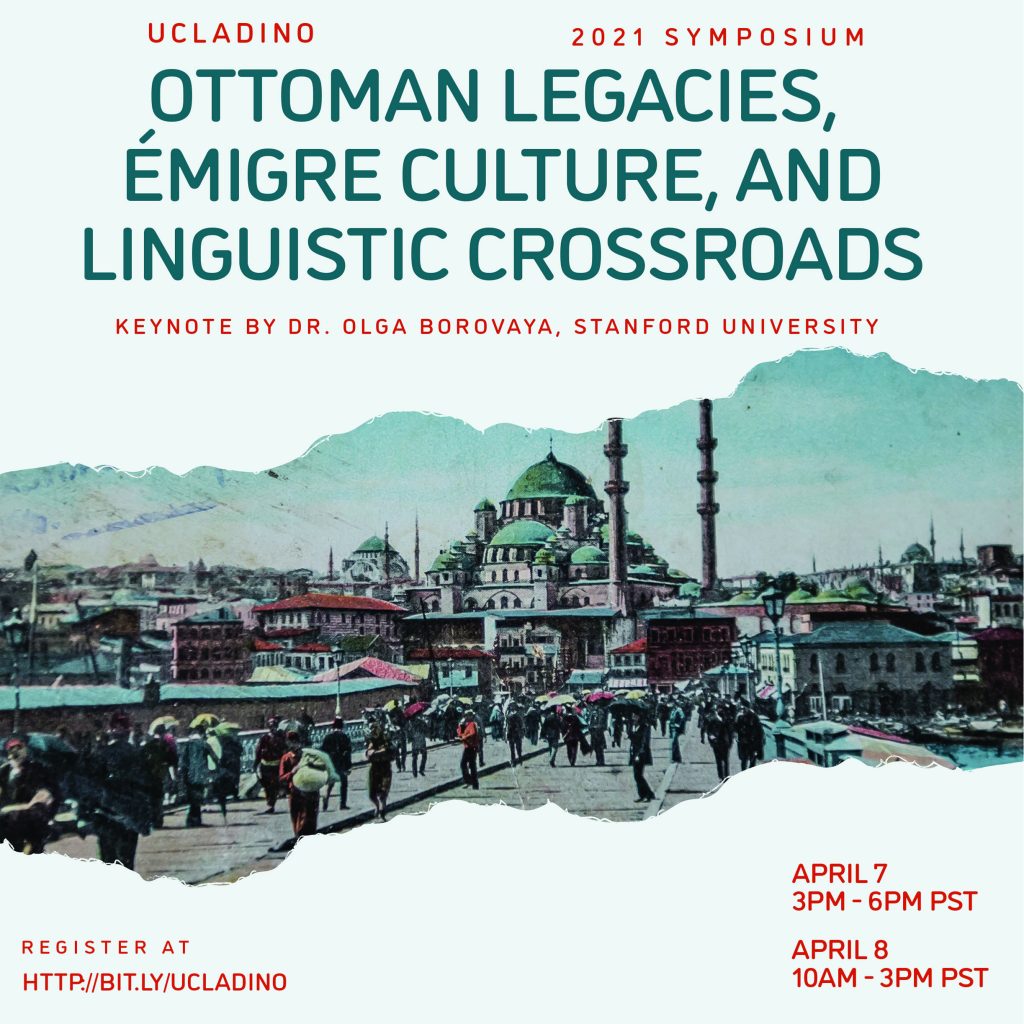
ucLADINO: Ottoman Legacies, Emigre Culture, and Linguistic Crossroads
April 7-8, 2021
Postponed in 2020 due to the closure of the UCLA campus, the annual UCLadino symposium was held on April 7-8. The theme of “Ottoman Legacies, Emigre Culture, and Linguistic Crossroads” laid emphasis on heritage, culture, and communication related to Sephardic Jews. The music-filled program – all organized by graduate students – featured panels on Ladino Linguistics, History and Memory, and Social Networks, a keynote address by Dr. Olga Borovaya (Stanford), as well as two concerts.
Holocaust at the Crossroads: West and Sub-Saharan African Approaches to African, Holocaust, and Jewish Studies
March 4, 2021
In this workshop, we discussed the state of African research and archival collecting on the subject of the Jews of West and Sub-Saharan Africa and their many complex cultural, spiritual, and economic engagements. We also reflected on the emerging interest among many African scholars in the history of Nazi and Vichy race laws, forced labor, and internment in West Africa and Sub-Saharan Africa—as well as the arena of Holocaust studies more generally. This program assembled a group of scholars from Morocco, Ghana, Mauritania, Senegal, Nigeria, and Mali in conversation with each other and scholars from the United States, Europe, and Israel to address the place of Black African Jewish history within the wider corpus of Jewish studies and the place for Jewish/Holocaust studies in West and Sub-Saharan African studies.
Absent the Archive
Lia Brozgal (UCLA) with Michael Rothberg (UCLA)
April 12, 2021
Alan D. Leve Center affiliated faculty Prof. Lia Brozgal (UCLA) discusses her new book, Absent the Archive, which offers a cultural history of the massacre of peaceful Algerian protestors by Parisian Police. Although covered up by the state, the events of October 17 found their way into novels, poetry, songs, film, visual art, and performance — a corpus that narrativizes and contextualizes the massacre and registers its existence, its scale, and its erasure, while also providing access to the subjective experience of violence and trauma. In conversation with Prof. Michael Rothberg (UCLA), she explores how literature and culture represent history by complicating it; by reverberating against reality but also speculating on what might now have been; by activating networks of signs and meaning; or by showing us things that cannot otherwise be seen.
Book Talk
The Objects that Remain
Laura Levitt (Temple University) with Aliza Luft (UCLA)
April 12, 2021
The Alan D. Leve Center’s 1939 Society Book Talk in Holocaust Studies features Prof. Laura Levitt (Temple University) discussing her new book, The Objects that Remain, which weaves together personal memoir with a fascinating examination of the ways in which the material remains of violent crimes inform our experience of, and thinking about, trauma and loss. Considering artifacts in the United States Holocaust Memorial Museum and evidence in police storage facilities across the country, Levitt’s story moves between intimate trauma, the story of an unsolved rape, and genocide. In discussion with Prof. Aliza Luft (UCLA), she explores what it might mean to do justice to these violent pasts outside the juridical system or through historical empiricism and how we think about evidence from violent crimes and other highly traumatic events.
The 1939 Society Book Talk in Holocaust Studies
Scribes, Stars, and Demons in Ancient Judaism and the Hellenistic Near East
Annette Yoshiko Reed (NYU) with Catherine Bonesho (UCLA)
March 11, 2021
This lecture revisits the beginnings of Jewish demonology by looking to Aramaic Enoch literature, the Dead Sea Scrolls, and the Jewish reception of Mesopotamian scholasticism in the early Hellenistic age. Explicit discussion of demons and exorcism are rare in biblical literature but emerges extensively in Jewish sources from around the third century BCE, especially in Aramaic sources like the Book of the Watchers, Tobit, and Genesis Apocryphon. This seemingly sudden shift has usually been explained as a theological concern with “origins of evil.” By contrast, Reed focuses on the epistemological and anthological ramifications of the integration of “magical” and other knowledge about demons into Jewish scribal expertise, situating the textualization of Jewish knowledge about demons in relation to parallel shifts in areas like astronomy.
Bible and the Ancient World Series
The Demise of the Warlord: A New Interpretation of David and Bathsheba in Light of an Amorite and Akkadian Topos
Daniel Bodi (La Sorbonne – University of Paris) with William Schniedewind (UCLA)
March 11, 2021
Bible and the Ancient World Series
A Judean, an Edomite, and a Negevite Walk into a Shrine: The Archaeology of Religion in Southern Israel
Erin Darby (University of Tennessee, Knoxville) with Aaron Burke (UCLA)
March 11, 2021
In this session, Dr. Erin Darby will discuss the archaeology of religion in southern Israel during the 8th-6th centuries BCE, focusing on what ritual objects might tell us about who occupied these sites and the religious cultures of the region. Our conversation will address ritual objects at both settlements and wayside shrines and will consider questions like, “Can ritual objects be associated with a particular ethnicity or political unit,” “how do we account for similarities and differences in object typologies across southern Jordan and Israel,” and “does the archaeology really provide solid evidence for Edomite vs- Judean control of the Negev in the Iron II period?”
Bible and the Ancient World Series
The Task of the Jewish Historian Today: A Conversation
Opening Remarks: Noam Pianko (President of the AJS) & Shmuel Feiner (Chair of the Historical Society of Israel)
Speakers: Maud Mandel (Williams College), Devin E. Naar (University of Washington), Iris Idelson-Shein (Ben-Gurion University of the Negev), and Anita Shapira (Tel Aviv University)
Moderator: David N. Myers (UCLA)
February 23, 2021
This event brings together prominent U.S. and Israeli historians at a critical time in the history of both countries and the world to discuss the challenges, opportunities, and responsibilities of Jewish history and its practitioners.
Jews and the American West: Violence, Race, and Masculinity
David S. Koffman (York University) and Sarah Imhoff (Indiana University) in conversation with Caroline Luce (UCLA)
February 22, 2021
This webinar brings together David S. Koffman (York University), author of The Jews’ Indian, and Sarah Imhoff (Indiana University), author of Masculinity and the Making of American Judaism, in dynamic conversation with host Caroline Luce (UCLA) about Jews’ relationship to the physical and discursive landscapes of the American west. How did the American colonial project shape Jewish ideas about masculinity, morality, and violence? How has the figure of the Jewish frontiersman been used to advance ideologies of belonging, both in the U.S. and around the world? Using historical materials drawn from their research, together they consider western Jewish subjectivity and the place of “the frontier” in American Jewish history.
Performance in 19th Century Russia and the Rise of the Modern Yiddish Theater
Alyssa Quint (Yeshiva University) with Amelia Glaser (UCSD) and Todd Presner (UCLA)
February 16, 2021
The institution of the modern Yiddish theater coalesced in a short period (from roughly 1876 to 1883) under the stewardship of a Russian-Jewish intellectual named Avrom Goldfaden, known as the father of the Yiddish theater. In composing and producing these first works of the public stage, Goldfaden pulled from Yiddish folk motifs and folksongs, and integrated comic routines from the performance culture of traditional wedding jesters and Purim performers who counted among his first actors. He also borrowed music and forms from the Western opera and operetta tradition. But Goldfaden’s most far-reaching cultural intervention was his creation of an urban-based and public Jewish culture that exuded a sense of belongingness to bourgeois Russian society, a belongingness we do not usually associate with Jews of late Imperial Russia. Goldfaden embodied and modeled the art of celebrity, self-fashioning, and social performance.
Michael and Irene Ross Lecture in Yiddish Studies
Nationalism, Mnemonic Wars and Poland’s “Holocaust Speech Law”
Geneviève Zubrzycki (University of Michigan) with Michael Rothberg (UCLA)
January 26, 2021
Twenty years after the publication of Jan T. Gross’ book Neighbors, which told the story of a the 1941 pogrom in Jedwabne, during which ethnic Poles tormented and murdered their Jewish neighbors, Poland is sharply divided over the history of World War II and the role Poles played in the Holocaust. While a significant portion of Polish society accepts responsibility and is engaged in collective soul-searching, others are denying Polish participation. Holocaust memory is politicized and speech on Polish participation in the Holocaust curtailed and liable to criminal. Professor Zubrzycki will discuss how the fall of communism, Polish nationalism and the politics of memory are related in today’s Poland.
The 1939 Society Lecture in Holocaust Studies
The Finger of the Scribe: How Scribes Learned to Write the Bible
William Schniedewind (UCLA) with Aaron Burke (UCLA)
January 12, 2021
One of the enduring problems in biblical studies is how the Bible came to be written. Clearly, scribes were involved. But our knowledge of scribal training in ancient Israel is limited. William Schniedewind explores the unexpected cache of inscriptions discovered at a remote, Iron Age military post called Kuntillet ‘Ajrud to reconstruct how scribes were taught to write. Here, far from such urban centers as Jerusalem or Samaria, plaster walls and storage pithoi were littered with inscriptions. Apart from the sensational nature of some of the contents—perhaps suggesting Yahweh had a consort—these inscriptions reflect actual student exercises among soldiers stationed near the frontier. What emerges is a glimpse of the ancient Israelite educational system: how Hebrew scribes were trained, the Mesopotamian and cuneiform pedigrees of these training methods, and how these shaped the Bible.
Book Talk
Jewish Listening: A Reckoning
Josh Kun (USC)
December 10, 2020
In his public lecture, “Jewish Listening: A Reckoning”– reimagined as a radio essay — Kun will reflect on a lifetime of listening to music and explore what it means to be a Jewish listener, what it means to listen “as a Jew.” In particular, he will re-visit writing from earlier in his career on the history of Jewish-American music in the context of contemporary debates across Israel and Palestine. Can listening change the meanings of Jewishness? How does music interrupt the equivalencies of identity? What happens when a “Jewish” listener is immersed in the music of Palestine? What new music, what new musical positions, emerge?
2019-2020 Etta and Milton Leve Scholar-in-Residence Lecture
Togo Mizrahi and the Making of Egyptian Cinema
Deborah Starr (Cornell) in conversation with Aomar Boum (UCLA) and Nancy Reynolds (WashU)
November 24, 2020
In this book, Deborah A. Starr recuperates the work of Togo Mizrahi, a pioneer of Egyptian cinema. Mizrahi, an Egyptian Jew with Italian nationality, established himself as a prolific director of popular comedies and musicals in the 1930s and 1940s. As a studio owner and producer, Mizrahi promoted the idea that developing a local cinema industry was a project of national importance. Togo Mizrahi and the Making of Egyptian Cinema integrates film analysis with film history to tease out the cultural and political implications of Mizrahi’s work.
Luminos Book Talk Series
Israel through a Colored Lens: African-American Perspectives on Mizrahi Israelis
Bryan K. Roby (University of Michigan) in conversation with Aomar Boum (UCLA)
November 5, 2020
This talk explores African-American interactions with Middle Eastern Jewish Israelis in the 1950s and 1960s. The focus will be on how African-Americans navigated racial constructs in Israeli society as well as an exploration of their observations on racial dynamics in Israel. I center the travel writings of scholar and social worker Ida B. Jiggetts, who wrote extensively on the social positioning of North African and Yemenite Jewish immigrants to Israel. I conclude with reflections on how Israeli Jewish racial constructs influence current day perceptions of Israel.
Maurice Amado Seminar in Sephardic Studies
The Blood Libel in Modern Eastern Europe: A Social History
Elissa Bemporad (CUNY) in conversation with Boris Dralyuk (LA Review of Books) and David N. Myers (UCLA)
October 20, 2020
In our latest virtual book talk, Elissa Bemporad (Queens College) discusses her book Legacy of Blood: Jews, Pogroms, and Ritual Murder in the Land of the Soviets (2019) with David N. Myers (UCLA) and Boris Dralyuk (L.A. Review of Books). Together, they consider the persistence, permutations, and responses to antisemitic violence and how ritual murder accusations can be used as a canvas to explore neighborhood sociology, memory, and violence in modern society.
Michael and Irene Ross Lecture in Yiddish Studies
“If I Embarrass You, Tell Your Friends”: Jews Making Trouble, Jews Making Comedy
Tony Michels (UW Madison) in conversation with practitioners and critics of comedy, including Jessica Chaffin, Jena Friedman, Lynn Harris, Michaela Watkins, and Josh Kun (USC)
October 18, 2020
American Jewish historian Tony Michels (UW Madison) in conversation with practitioners and critics of comedy, including Jessica Chaffin, Jena Friedman, Lynn Harris, Michaela Watkins, and Josh Kun (USC, 2019-2020 Etta and Milton Leve Scholar-in-Residence), to discuss the outsized role that Jewish women have played as path-breaking comedic writers and performers. Together, the group will reflect on how comedy has changed in recent years, and what labels such as “Jewish comedian” and “female comedian” mean today.
This event is sponsored by the Natalie Limonick Program on Jewish Civilization and the Mosse/Weinstein Center for Jewish Studies, University of Wisconsin, Madison.
A Teach-In on Jewish Studies, Race, and Anti-Racism
Sarah Abrevaya Stein (UCLA), Dean Franco (Wake Forest University), Lila Corwin-Berman (Temple University), Aomar Boum (UCLA), Sultan Doughan (Boston University), Maxwell Greenberg (UCLA), and Benjamin Ratskoff (UCLA)
September 24, 2020
This Teach-In gathers together a diverse array of students and faculty from UCLA and beyond, to consider how Jewish Studies scholarship and pedagogy has (and has not) engaged with racism, anti-racism, and structural violence; and to strategize what we can do to deepen and expand our engagement with these themes.
Joy and Jerry Monkarsh Community Program Sponsored by the UCLA Alan D. Leve Center for Jewish Studies
The Italian Executioners: The Genocide of the Jews of Italy
Simon Levis Sullam (Ca’Foscari University of Venice) with
Marla Stone (Occidental College)
October 7, 2020
Simon Levis Sullam in conversation with Marla Stone will explore the role of Italians – from members of the Fascist Party, police and military forces to everyday citizens – in the Holocaust and meditates on how their involvement became obscured in the postwar era.
Sponsored by the UCLA Alan D. Leve Center for Jewish Studies
Viterbi Family Program in Mediterranean Jewish Studies
2019-2020 Physically Distant, Intellectually Engaged (online events)
Contagion, Culture, and Care
Sunny Yudkoff (University of Wisconsin-Madison), Nayan Shah (USC), and Caroline Luce (UCLA)
June 3, 2020
How do we come to understand and give meaning to epidemics? How do communities respond and give care? This webinar will bring together two scholars whose innovative approaches have advanced our understanding of the history of disease in multiethnic American life – Prof. Nayan Shah, author of Contagious Divides: Epidemics and Race in San Francisco’s Chinatown, and Prof. Sunny Yudkoff, author of Tubercular Capital: Illness and the Conditions of Modern Jewish Writing – to explore the resonances of their work in our current moment with host Dr. Caroline Luce (creator of “The White Plague in the City of Angels”).
Michael and Irene Ross Lecture in Yiddish Studies
Sponsored by the UCLA Alan D. Leve Center for Jewish Studies
Jerusalem: City of the Book
Benjamin Balint (Author) and David N. Myers (UCLA)
May 20, 2020
Author Benjamin Balint discusses his latest book, Jerusalem: City of the Book with Prof. David N. Myers, sharing his forays into Jerusalem’s most inaccessible reaches and asking what it might look like to see Jerusalem, with its cross-hatched encounters between people of diverse faiths and cultures, as a city of the book? Join these two dynamic writers in conversation.
2019-2020 Podcasts
The Implicated Subject: Beyond Victims and Perpetrators
Michael Rothberg
March 5, 2020
When it comes to historical violence and contemporary inequality, none of us are completely innocent. We may not be direct agents of harm, but we may still contribute to, inhabit, or benefit from regimes of domination that we neither set up nor control. Arguing that the familiar categories of victim, perpetrator, and bystander do not adequately account for our connection to injustices past and present, Michael Rothberg offers a new theory of political responsibility through the figure of the implicated subject.
Sponsored by
The UCLA Alan D. Leve Center for Jewish Studies
Cosponsored by: The Sady and Ludwig Kahn Chair in Jewish History, The UCLA Luskin Center for History and Policy, The UCLA Department of History, The UCLA Department of Comparative Literature, The UCLA Department of English, and The UCLA Department of Germanic Languages
From Enoch to Daniel: Reimagining the Past in the Aramaic Dead Sea Scrolls
Daniel A. Machiela (McMaster University) with William Schniedewind (UCLA)
February 25, 2020
Since the late 1940s, the approximately 1,000 manuscripts discovered in caves alongside the Dead Sea – popularly called the Dead Sea Scrolls – have been reshaping in significant ways study of the Bible and ancient Judaism. Often left out of discussions about the scrolls are the approximately 30 Jewish literary works written in Aramaic. This talk will introduce the Aramaic Dead Sea Scrolls, survey their use of earlier biblical traditions, and assess their place in the broader landscape of ancient Judaism.
Bible and Its Interpreters Seminar Series
Sponsored by The UCLA Alan D. Leve Center for Jewish Studies
Cosponsored by The UCLA Department of Near Eastern Languages and Cultures
Through the Female Gaze: Men in the Book of Genesis
Tammi Schneider (Claremont Graduate University)
January 30, 2020
While the bulk of biblical scholarship on the book of Genesis had been conducted by men and about men, more recent works have used feminist approaches to center the female characters in Genesis from numerous perspectives, enhancing our understanding of how the women in Genesis function. In light of these new works, this talk will offer a critical reexamination of the men in the book of Genesis from a more feminist perspective to determine if previous scholarship on these characters can stand up to the female gaze.
Bible and Its Interpreters Seminar Series
Sponsored by The UCLA Alan D. Leve Center for Jewish Studies
Cosponsored by The UCLA Department of Near Eastern Languages and Cultures
Does Jewish Biblical Scholarship Exist: A Historical Perspective
Marc Brettler (Duke University)
January 27, 2020
How and when did Jewish scholars enter into the mainstream of biblical scholarship? What religious and other constraints prevented them from entering the mainstream until the second half of the twentieth century? And once they entered, did they produce a body of distinctive Jewish biblical scholarship?
Bible and Its Interpreters Seminar Series
Sponsored by The UCLA Alan D. Leve Center for Jewish Studies
Cosponsored by The UCLA Department of Near Eastern Languages and Cultures and The UCLA Center for the Study of Religion
Anatomy of a Genocide: A Case Study in Mass Murder
Omer Bartov (Brown University)
January 23, 2020
For more than four hundred years, the Eastern European border town of Buczacz – today part of Ukraine – was home to a highly diverse citizenry. It was here that Poles, Ukrainian, and Jews all lived side by side in relative harmony. Then came World War II, and three years later the entire Jewish population had been murdered by German and Ukrainian police, while Ukrainian nationalists eradicated Polish residents.
The Annual 1939 Society Lecture in Holocaust Studies
Moderator: David N. Myers (UCLA)
Sponsored by: The 1939 Society and The UCLA Alan D. Leve Center for Jewish Studies
Cosponsored by: The UCLA Department of History, UCLA Center for European and Russian Studies, and the UCLA Department of Slavic, East European & Eurasian Languages & Cultures
Risky Business: The Future of Jewish Museums
Barbara Kirshenblatt-Gimblett (POLIN)
January 16, 2020
Award-winning scholar, curator and author Dr. Barbara Kirshenblatt-Gimblett is the Ronald S. Lauder Chief Curator, POLIN Museum Core Exhibition and Professor Emerita of Performance Studies at New York University, discusses the past, present and future of Jewish museums.
The Biennial Leve Award Lecture
Moderator: Sarah Abreveya Stein (UCLA)
Sponsored by: The UCLA Alan D. Leve Center for Jewish Studies
Cosponsored by: Yiddishkayt, the UCLA Department of Theater, TFT, The 1939 Society, the UCLA Center for European and Russian Studies, and the Fowler Museum at UCLA.
America’s Jewish Women: A History from Colonial Times to Today
Pamela Nadell (Author)
December 3, 2019
In this groundbreaking history, Pamela Nadell asks what does it mean to be a Jewish woman in America? Weaving together stories from the colonial era’s matriarch Grace Nathan and her great-granddaughter poet Emma Lazarus to union organizer Bessie Hillman and the great justice Ruth Bader Ginsburg, Nadell shows two threads binding the nation’s Jewish women: a strong sense of self and a resolute commitment to making the world a better place. Informed by the shared values of America’s founding and Jewish identity, America’s Jewish women—the well-known and the scores of activists, workers, wives, and mothers whose names linger on among their communities and families—left deep footprints in the history of the nation they call home.
Moderator: Joan Waugh (UCLA)
Sponsored by: The UCLA Alan D. Leve Center for Jewish Studies
Cosponsored by: The UCLA Center for the Study of Women
Tehran Children: A Holocaust Refugee
Mikhal Dekel (Author)
November 21, 2019
Beginning in September 1941 and throughout the war, Central Asia and Iran became places of refuge to hundreds of thousands of Jewish and Catholic Polish citizens. Mikhal Dekel, whose father was a child refugee in Tehran, will recount the research and writing process of this epic yet relatively unknown Holocaust story, told in her new book Tehran Children: A Holocaust Refugee Odyssey. She discusses the circumstances that brought her father and hundreds of thousands of others from Poland to the Soviet interior, Central Asia, Iran, India and Palestine and talk about the refugees’ experiences in each locale and the mutual impact of refugees and host countries on each other.
The 1939 Society Lecture in Holocaust Studies
Sponsored by the UCLA Alan D. Leve Center for Jewish Studies
Cosponsored by the UCLA Center for European and Russian Studies, UCLA Department of History, UCLA Department of English, and the UCLA Asia Pacific Center
Ben Hecht: Fighting Words, Moving Pictures
Adina Hoffman (Author)
October 31, 2019
One of the greatest American screenwriters, Ben Hecht was a renaissance man of dazzling sorts—reporter, novelist, playwright, crusader for the imperiled Jews of Hitler’s Europe, and propagandist for pre-1948 Palestine’s Jewish terrorist underground. Whatever the outrage he stirred, this self-declared “child of the century” came to embody much that defined America—and especially Jewish America—in his time. Award-winning essayist and biographer Adina Hoffman will discuss her new book about Hecht, which The New Yorker, calls “superb” and Booklist describes as “electrifying.”
Sponsored by the UCLA Alan D. Leve Center for Jewish Studies
Cosponsored by the Sady and Ludwig Kahn Chair in Jewish History and the UCLA Department of History
Hebrew Gothic: History and the Poetics of Persecution
Karen Grumberg (University of Texas at Austin)
October 23, 2019
Sinister tales written since the early twentieth century by the foremost Hebrew authors, including S. Y. Agnon, Leah Goldberg, and Amos Oz, reveal a darkness at the foundation of Hebrew culture. The ghosts of a murdered Talmud scholar and his kidnapped bride rise from their graves for a nocturnal dance of death; a girl hidden by a count in a secret chamber of an Eastern European castle emerges to find that, unbeknownst to her, World War II ended years earlier; a man recounts the act of incest that would shape a trajectory of personal and national history. Reading these works together with central British and American gothic texts, Karen Grumberg illustrates that modern Hebrew literature has regularly appropriated key gothic ideas to help conceptualize the Jewish relationship to the past and, more broadly, to time.
2018-2019 Podcasts
The Jewish Touchstone in the German Critique of Capitalism
Chad Alan Goldberg (University of Wisconsin-Madison)
May 29, 2019
Our understanding of modern capitalism is deeply indebted to the German sociological tradition, and to none more deeply than Karl Marx, Georg Simmel, Werner Sombart, and Max Weber. Notwithstanding their significant disagreements, all four thinkers conceived the origin and distinctive nature of modern capitalism by reference to Jews and Judaism. Chad Alan Goldberg sets out the specific habits of thought shared by these thinkers, uncovers the historical basis (unconscious and repressed) upon which they rested, and shows how these habits of thought extend into the present.
Sady & Ludwig Kahn Lecture Series in German Jewish Studies
When Politics Aren’t Political: The Depoliticization of American Jewish Politics
Lila Corwin Berman (Temple University)
May 16, 2019
Many of the core institutions of American Jewish life, including federations, private foundations, and other communal organizations, have long emphasized their remove from politics. Their declarations represent an almost century-long process of what Berman explains as “depoliticization.” Reflecting liberalism and its ideals of individual and market freedom, policies of depoliticization exercised discipline over American group life. State policies narrowed the terrain of political expression by rewarding with legal and financial power those voluntary groups that professed a clear division between the political and the not political. Yet an irony of depoliticization has been in its extraordinarily political outcomes.
Etta and Milton Leve Scholar-in-Residence Lecture
American Jewish Exceptionalism’s Antisemitism Problem
Lila Corwin Berman (Temple University)
May 14, 2019
When historians of the United States talk about antisemitism, more often than not they do so as proof of American exceptionalism: in its inexorable movement toward the margins of American life, antisemitism exemplifies what is unique and extraordinary about America. Antisemitism’s present absence from historical narratives of the United States has been essential to the exceptionalism and progressive claims of American history, American Jewish history, and much of American communal life. This seminar explores how we might resuscitate the study of antisemitism in the United States from its lifeless instrumentality and, instead, approach it as entangled with histories of power, exclusion, and hierarchy—and how, in the process, our epistemologies of American liberal democracy would demand revision.
Etta and Milton Leve Scholar-in-Residence Seminar
Global Itineraries of Holocaust Memory: The Jewish Caribbean and Nazi Persecution in Literature and Art
Sarah Phillips Casteel (Carleton University)
May 2, 2019
During World War II, the Caribbean provided safe haven to Jewish refugees from the Nazis. Meanwhile, Caribbean expatriates living in Europe found themselves caught up in the war and, in some cases, imprisoned. This talk revisits these entangled wartime histories through the lens of art and literature. Caribbean artists and writers trace wartime journeys between Suriname and Belgium, Poland and Haiti, to reveal unexpected intersections between Jewish and African diaspora experience. In their work, the Caribbean emerges as a site where not only Black and Jewish but also Sephardic and Ashkenazi memories and identities converge.
Arnold Band Distinguished Lecture in Jewish Studies
The Last Watchman of Old Cairo
Michael David Lukas (Author)
April 30, 2019
Lukas will be reading from his second novel, The Last Watchman of Old Cairo. A multigenerational novel centered around Cairo’s Ibn Ezra Synagogue, the book knits together the disparate experiences of three different narrators—an eleventh century Muslim watchman, a pair of Victorian-era linguists, and a contemporary Comparative Literature graduate student—as each “discovers” a trove of discarded documents hidden in the attic of the synagogue.
Viterbi Seminar in Mediterranean Jewish Studies
The Bund in the Borderlands
Caroline Luce (UCLA)
April 18, 2019
Dr. Caroline Luce offers a preview of her book-in-progress, Yiddish in the Land of Sunshine: Jewish Radicalism, Labor and Culture in Los Angeles, 1900-1950. The book follows a group of young Jewish radicals – most veterans of the Russian Revolution of 1905 – as they moved from the borderlands of the Russian Empire to the borderlands of Southern California and then into the multiethnic “borderhood” of Boyle Heights. This lecture will focus on their earliest years in Los Angeles, highlighting the events surrounding the arrest and trial of a group of Mexican revolutionaries of the Partido Liberal Mexicano (PLM) and Jewish engagement in the radical public sphere of early twentieth century Los Angeles.
Lecture on Jewish Los Angeles Series
Feeding the Gods in Ancient Israel
Jennie Ebeling (University of Evansville)
April 11, 2019
Bread and other grain-based foods were not only staples in the ancient Israelite diet; they were also staples in the ritual acts that accompanied the worship of several deities in ancient Israel. In addition to the state god YHWH, who required regular offerings of lechem hapanim (“bread of the presence”) in the Tabernacle and the Jerusalem Temple (Exodus 25:30, 39:36, 40:23; Leviticus 24: 5-9; Numbers 4:7; 1 Kings 7:48), the Queen of Heaven (Jeremiah 7:18, 44:17-25) was worshipped by families in Jerusalem and throughout Judah with cakes that were marked with her image. Although the biblical writers did not record the details of these practices, the remains of ritual activity in a variety of Iron Age (ca. 1200-586 BCE) archaeological contexts are strongly associated with areas where bread and other foods were prepared and consumed. In this presentation, I will discuss the evidence for feeding the gods in Israelite houses, the house of YHWH, and other contexts, and suggest that the ritual importance of bread in ancient Israel began with women’s food offerings to household deities.
Archaeology of Ancient Israel Lecture Series
Hannah Arendt’s Message of Ill-Tidings
Lyndsey Stonebridge (University of Birmingham)
April 4, 2019
‘It was not only their own misfortunes that the refugees carried with them from land to land, from continent to continent,’ Hannah Arendt wrote, ‘but the great misfortune of the whole world.’ Shortly before her death, Arendt said that the real story of her generation of Jewish refugees from Nazism had yet to be fully understood. This lecture will return to Arendt’s refugee years to show how her influential theories about rights, the human condition, and political life were forged through her understanding of statelessness as an existential condition.
The 1939 Society Lecture in Holocaust Studies
Unexpected Itineraries: Holocaust Testimony beyond Borders
Michael Rothberg (UCLA)
March 14, 2019
This talk discussed the trajectories of three women who survived the Holocaust and went on to bear witness to their experiences in various media: from oral and written testimonies to film and music. Charlotte Delbo, Marceline Loridan-Ivens, and Esther Bejarano came from different backgrounds and led very different lives, but they all followed “unexpected itineraries” that took them across borders and put them in touch with some of the burning social and political issues of the postwar world. In considering these women’s acts of witness, this account will emphasize the creativity and resilience that characterize their lives after Auschwitz.
Annual 1939 Society Lecture in Holocaust Studies
Thought Crimes: Subversive Politics in Art Made for Medieval Jews
Marc Epstein (Vassar College)
March 7, 2019
Marc Michael Epstein will explore issues of temporality (the way in which the passing of time is indicated or implied) in illuminated manuscripts made for Jews in the fourteenth century. What happens when, viewing images as a frozen snapshots in time, we consider the potentially politically subversive implications of the implied action that will ensue in the moment after the one that is frozen in the frame? What can we learn from such considerations about the political and theological views of the constellation of patrons, rabbinic advisors, scribes, designers, illustrators and illuminators who collaborated to produce these beautiful and iconographically complex masterpieces?
Maurice Amado Lecture on Sephardic Studies
How Moses Became a Levite
Mark Leuchter (Temple University)
March 5, 2019
The Bible presents Moses as Israel’s prophet par excellence and among the most prominent members of the Israelite tribe of Levi. But how does this picture of Moses square with actual history? How did the memory of an early Transjordanian holy man become part of a priestly tradition in ancient Israel? Answering these (and other) questions requires rethinking not only the biblical sources but how warfare, economics, and politics led to different corners of Israelite society “claiming” Moses for themselves…including the Levites.
Bible and Its Interpreters Seminar Series
The Matter of the Neighbor: Budd Schulberg, James Baldwin, and the Watts Writers Workshop
Dean Franco (Wake Forest University)
February 28, 2019
This lecture will explore the Watts Writers Workshop, founded in the heart of Watts by Jewish American writer Budd Schulberg immediately after the Watts Rebellion of 1965 . Franco will explore how the success and final demise of the project tracks Schulberg’s shift from prose to property. Drawing on Schulberg’s archives, including lease contracts, letters, and personal notes, Franco argues that Schulberg’s personal and financial investment in Watts relocated his political standing as the “neighbor” to the Watts writers with whom he worked.
Lecture on Jewish Los Angeles Series
Preservation and Innovation: The Tracks of the Master Scribe
Sara Milstein (University of British Columbia)
February 12, 2019
When we encounter a text, whether ancient or modern, we typically start at the beginning and work our way toward the end. For biblical and Mesopotamian literature, however, this habit can lead to misinterpretation. In the ancient Near East, “master scribes”—those who held the authority to produce and revise texts—regularly introduced changes in the course of transmission. One of the most effective techniques in the scribal toolbox was what Milstein calls “revision through introduction,” a method that allowed scribes to preserve received material while simultaneously recasting it. Milstein demonstrates what is to be gained by disentangling the competing voices in a given work, a process that allows for the text to be perceived afresh at all stages in its development.
Bible and Its Interpreters Seminar Series
Pogrom: Kishinev and the Tilt of History
Steven J. Zipperstein (Stanford)
January 24, 2019
Kishinev’s 1903 pogrom was the first instance in Russian Jewish life where an event received international attention. The riot, leaving 49 dead in an obscure border town, dominated headlines in the western world for weeks. It intruded on Russian-American relations and inspired endeavors as widely contradictory as the Hagannah, the precursor to the Israeli army, the NAACP, and the first version of “The Protocols of the Elders of Zion.” How did this incident come to define so much, and for so long?
Michael and Irene Ross Lecture in Yiddish Studies
Dwelling on the Past and Longing for Home: Israel in Exile
Carly Crouch (Fuller Theological Seminary)
January 23, 2019
This talk examines the effect of the sixth century BCE deportations to Babylonia on Israelite identity. Paying close attention to the prophetic book of Ezekiel, whose community was deported from Jerusalem to Babylonia by Nebuchadnezzar, it explores how the experience of forced migration changed the way the people talked about themselves, their past, and their homeland. To help make sense of these changes, it places Ezekiel’s reactions in conversation with the responses of more recent forced migrants to similar experiences.
Bible and its Interpreters Seminar Series
The Legend of Khaybar, A Jewish “Kingdom” in the Arabian Desert
Liran Yadgar (UCLA)
January 17, 2019
In the year 628 C.E., a few years after the Prophet Muhammad’s migration from Mecca to Medina and the founding, in Medina, of the early Muslim State, the Jewish stronghold of Khaybar in the Arabian Desert fell into the Prophet’s hands. This marked the end of the Khaybari settlement that also served as a refuge to Medinan Jews as a result of their previous battles against the Prophet. The Khaybari Jews, however, did not disappear from history. According to Jewish legend, the Jews of Khaybar remained in their territory and lived there as a nation of mighty warriors free from Muslim rule. This lecture will follow the legend of Khaybar from the early Islamic period to the twentieth century.
Viterbi Lecture in Mediterranean Jewish Studies
Jewish Studies in Morocco: A Conversation
Khalid Ben-Srhir (Mohammed V. University, Rabat) with Aomar Boum (UCLA)
January 15, 2019
Professor Khalid Ben-srhir is by academic trade an expert on British Moroccan relations. However, in Morocco he is also known as “Mr. Jewish Studies translator.” Ben-srhir started his career as a secondary school teacher in Morocco’s southern hinterland before he joined University Mohamed V as a Professor. Today, he is not only the editor of the oldest history journal in Morocco, Hesperis-Tamuda, but also a pioneer and an established name in the Arabic and French translation of Jewish Studies scholarship. In this informal conversation, UCLA Professor Aomar Boum will talk with the Center’s Moroccan guest about his personal and professional experiences with Jewish history in Morocco, as well as the state and future of research on Moroccan Jews and Judaism.
Maurice Amado Seminar in Sephardic Studies
The Holocaust and North Africa
Aomar Boum (UCLA) and Sarah Abrevaya Stein (UCLA)
November 27, 2018
This event celebrated the release of The Holocaust and North Africa, edited by Alan D. Leve Center faculty Professors Aomar Boum and Sarah Abrevaya Stein. The Holocaust is usually understood as a European story. Yet, this pivotal episode unfolded across North Africa and reverberated through politics, literature, memoir, and memory—Muslim as well as Jewish—in the post-war years. The Holocaust and North Africa offers the first English-language study of the unfolding events in North Africa, pushing at the boundaries of Holocaust Studies and North African Studies, and suggesting, powerfully, that neither is complete without the other. The essays in this volume reconstruct the implementation of race laws and forced labor across the Maghrib during World War II and consider the Holocaust as a North African local affair, which took diverse form from town to town and city to city. They explore how the Holocaust ruptured Muslim–Jewish relations, setting the stage for an entirely new post-war reality.
Book Launch
‘The Foundation of the World’: The Ecological Ideas of Post-Expulsion Spanish Jews in Italy and the Ottoman Empire
Andrew Berns (University of South Carolina)
November 15, 2018
In the wake of their banishment from Spain in 1492, after nearly 1500 years on Iberian soil, how did Spanish Jews think about land and the natural world? My talk explores how Sephardic Jews developed their ideas about the proper use (and improper abuse) of land. From safe havens in Italy and the Ottoman Empire, scholars such as Isaac Abravanel, Abraham Saba and others wrote copiously about agricultural practices and land management in their commentaries on biblical and rabbinic texts. The late Middle Ages witnessed drastic changes in land use on the Iberian Peninsula, in Italy, and throughout the Mediterranean: I show how Spanish-Jewish ideas about the land (the biblical Land of Israel as well as lands of the diaspora) responded to ecological realities as well as intellectual trends.
Viterbi Lecture in Mediterranean Jewish Studies
A Place in the Sun: Italian Jews and the Colonization of Africa
Shira Klein (Chapman University)
November 14, 2018
For four decades (1890s-1930s), Italian Jews strongly approved of their country’s colonizing enterprise. Throughout Italy’s expansion to Somalia, Eritrea, Libya, and Ethiopia, Italian Jews lent their support. But the act of colonizing challenged their comfortable dual identity, namely, their ability to be both Italian and Jewish. The empire pitted Italian colonizers and colonized African Jews against each other, and Italian Jews found themselves caught in the middle.
Viterbi Seminar in Mediterranean Jewish Studies
2017-2018 Podcasts
Primo Levi for the Public
May 6, 2018
This half-day symposium brought together an array of international scholars and writers engaged with the history, literature, and impact of Primo Levi, a chemist, writer, and humanist who survived Auschwitz and, through his writing, provided generations of students and scholars with the philosophical language to understand the Shoah—and the modern condition. The symposium celebrated the publication, in 2015, of Levi’s complete works in English (by translator Ann Goldstein, published by W. W. Norton) and probes the literary, philosophical, and historical legacy of Levi.
Viterbi Symposium in Mediterranean Jewish Studies
Atina Grossmann – Trauma, Privilege, and Adventure in Transit: German Jewish Refugees in Iran and India
Atina Grossmann (The Cooper Union for the Advancement of Science and Art)
May 17, 2018
This lecture examines the intensely ambivalent and paradoxical experiences of bourgeois Jews who found refuge in the “Orient” of India and Iran after 1933. On the margins of their collapsing and devastated Jewish European world, they lived as hybrids, themselves on the margins, expat, emigré, enemy alien, and refugee, caught uneasily, more or less comfortably, between colonizer and colonized, expelled from the “West” but never really leaving it behind. Drawing on an extensive collection of family correspondence and memorabilia from both Iran and India (1935-1947), as well as other sources, Grossmann probes refugees’ understanding of their own unstable position, the changing geopolitical situation, and their efforts to come to terms with emerging revelations about the destruction of European Jewry.
Sady and Ludwig Kahn Lecture in German Jewish Studies
Galit Hasan-Rokem: Is the Wandering Jew in Contemporary Israeli Literature a Paradox?
Galit Hasan-Rokem (Hebrew University of Jerusalem)
May 10, 2018
Various ideologies of the early 20th century foresaw an end for the journey of the Wandering Jew in the near future: Communists suggested that he would disappear with the dissolution of nations, Zionists believed that he would return home and no longer be a wanderer. The Wandering Jew has not disappeared from contemporary literature, among Jews and others. The most surprising may be the presence of this figure in a number of Israeli novels from the seventies to the recent years. This lecture will address those cases in their socio-cultural contexts.
Arnold Band Distinguished Lecture in Jewish Studies
Sarah Abrevaya Stein and Lia Brozgal: Colonial Tunisia from the Gutter Up: Ninette of Sin Street. Jews, Translation, and Franco-Tunisian Literature
Sarah Abrevaya Stein (UCLA) & Lia Brozgal (UCLA)
Discussant:
Alma Heckman (UC Santa Cruz)
May 1, 2018
Book launch of the first English-language translation of Vitalis Danon’s Ninette of Sin Street. Originally published in Tunis in 1938, this novella is Danon’s best-known work, and one of the first Tunisian fictions written in French. Ninette is an unlikely protagonist, compelled by poverty to work as a prostitute, she dreams of a better life and an education for her son. Plucky and street-wise, she enrolls her son in the local school. In Danon’s story, Ninette narrates her hard scrabble life to the headmaster of her son’s school, a monologue that is by turns funny, poignant, and subtly critical of the status quo. The book’s editors will participate in a lively conversation about this historic work, its place within global and North African literature, and the history of Tunisian Jewry.
Book Talk
Maimonides and the Merchants
Mark R. Cohen (Princeton)
April 24, 2018
The advent of Islam in the seventh century brought profound economic changes to the Middle East and to the Jews living there. The Talmud, written in and for an agrarian society, was in many ways ill-equipped for the new economy. In the early Islamic period, the Babylonian Geonim made accommodations through their responsa, through occasional taqqanot, and especially by applying the concept that custom can be a source of law. Not previously noticed, however, in the Mishneh Torah, Maimonides made his own efforts to update the halakha through codification, in order to make it conform with Jewish merchant practice as illustrated in the business documents of the Cairo Geniza.
Viterbi Lecture in Mediterranean Jewish Studies
Abel Beth Maacah: Uncovering the Secrets of a Biblical City
Robert Mullins (Azusa Pacific University)
April 17, 2018
Abel Beth Ma’acah is a city of major biblical and historical importance on the northern border of present-day Israel. It is mentioned several times in the Hebrew Bible, most notably in the time of King David when a “wise woman” surrendered the severed head of Sheba ben Bichri to Joab who had been sent from Jerusalem to capture him (2 Sam 20:14-22). Though called “a city and a mother in Israel,” other verses suggest that the population was Aramean or perhaps another ethnic group (2 Sam 10:6-8; 1 Chron 19:6; Josh 13:11). Who were the people of Abel and how might we determine their ethnicity in the material record? The primary aim of this lecture will be to explore the intriguing yet elusive relationship between historical memory as recorded in the Bible and finds on the ground.
Archaeology of Ancient Israel Lecture Series
Culture and Resistance in Wartime Ghettos: Case Studies from Lodz, Vilna, and Warsaw
Samuel Kassow (Trinity College)
April 16, 2018
The Warsaw, Lodz and Vilna ghettos saw an extraordinary degree of cultural activity: reportage, poetry, theater, documentation and street songs. What was the impact of this cultural resistance? How should it be studied? This seminar will also consider the complex interplay of cultural and armed resistance in the Vilna and Warsaw ghettos.
Milton and Etta Leve Scholar-in-Residence Lecture
History and Resistance: Emanuel Ringelblum in the Warsaw Ghetto
Samuel Kassow (Trinity College)
April 12, 2018
During World War II, Jews resisted not only with guns but also with pen and paper. Even in the face of death, they left “time capsules” full of documents that they buried under the rubble of ghettos and death camps. They were determined that posterity would remember them on the basis of Jewish and not German sources. Thousands of documents were buried in the Ringelblum Archive in the Warsaw Ghetto. Of the 60 people that the Polish Jewish historian Emanuel Ringelblum recruited to work on this national mission, all but three perished in the Holocaust. The lecture will explore their story.
Milton and Etta Leve Scholar-in-Residence Lecture
What happened to Sisera in Judges 5, 25-27?
Thomas Schneider (University of British Columbia)
March 13, 2018
The two versions of the story of Sisera’s defeat at the hands of Yael in Judges 4 and 5 are among the most iconic episodes of the Hebrew Bible, with a long and colourful history of interpretation and reception. This lecture will present a new understanding of Sisera’s fate in the poetic version of Judges 5,25-27. On the basis of a reassessment of the meaning of Biblical Hebrew raqqā (“cheek”, not “temple”) and the verbs describing Yael’s attack on Sisera in v. 26, it is suggested that the focus of this episode is not on the killing of Sisera but his stigmatization. Scars of holes inflicted in the face were a visible trace of the Assyrian practice of leading foreign rulers on facial hooks into captivity that is also well documented in texts of the Hebrew Bible. The proposed military submission and humiliation of Sisera sets the poetic version of the encounter of Yael and Sisera apart from the prose version in Judges 4 as an account that is factually and literarily independent.
Bible and Its Interpreters Seminar Series
East West Street: A Personal History of Genocide and Crimes Against Humanity
Philippe Sands (University College London)
February 22, 2018
Lecture explores how personal lives and history are interwoven. Drawing from his Baillie Gifford (Samuel Johnson) prize-winning book East West Street (Alfred Knopf/Vintage, 2016)—part historical detective story, part family history, part legal thriller—Sands connects his work on ‘crimes against humanity’ and ‘genocide,’ the events that overwhelmed his family during World War II, and an untold story at the heart of the Nuremberg Trial that pits lawyers Rafael Lemkin and Hersch Lauterpacht against Hans Frank, defendant number 7 and Adolf Hitler’s former lawyer.
The Annual 1939 Society Lecture in Holocaust Studies
Bad Rabbi and other Strange But True Stories from the Yiddish Press
Edward Portnoy (Rutgers)
February 22, 2018
Bad Rabbi (Stanford UP, 2017) is an underground history of downwardly mobile Jews from the seamy underbelly of New York and Warsaw, the two major centers of Yiddish culture before WWII. With true stories plucked from the pages of the Yiddish papers, Portnoy introduces drunks, thieves, murderers, wrestlers, poets, and beauty queens whose misadventures were immortalized in print.
Michael and Irene Ross Lecture in Yiddish Studies
Did Adam Fall, Stumble, or Stub His Toe in the Garden of Eden? A New Look at an Ancient Story
Ziony Zevit (American Jewish University)
February 20, 2018
This seminar examined a few salient features of the Garden of Eden story after reconsidering its vocabulary and grammar. The examination yielded new insights into the story’s plot that have broad implications for correcting contemporary notions about what it meant and its significance in the context of ancient Israel’s civilization.
Bible and Its Interpreters Seminar Series
Why Study Jewish History?
David N. Myers (UCLA)
February 13, 2018
This event focused on two recently published books: the first, Jewish History: A Very Short Introduction (Oxford, 2017), offers a concise account of the entire course of Jewish history in 100 pages; the second, The Stakes of History: On the Use and Abuse of Jewish History (Yale, 2018), is an argument for the study of history, and especially Jewish history, as an anchor of memory and indispensable ingredient for informed civic engagement. The dialogue will focus on the intersecting themes of the two books, which together reveal the pleasures and payoff for studying Jewish history.
Book Talk
What Does the Word Lesbian Mean in Palestine in 1923?
Ofer Nur (Tel Aviv University)
February 6, 2018
This seminar is based on an unpublished MS of a novel, written in 1923 by Sara Rappeport (1890-1980) member of kibbutz Beit Alpha, entitled: “The Wives of Sheikh Husseini.” This exceptional novel describes a love affair between a kibbutz member and an Arab Sheikh that ends in marriage, a baby boy named Ishamel, and membership in the Haifa branch of the Palestine communist party. The word Lesbian appears in the novel and Nur explores its meaning and context. The use of the word “Lesbian” in Hebrew in Israel begins in the late 1950s. Going back to an isolated use of the word in 1923 can teach us something new about same-sex relations in the imagination of those who lived in mandate Palestine and in Israel.
Faculty/Student Seminar
New Media Jews: “Transparent,” Podcasting, and the Place of Jews in 21st-Century American Culture
Josh Lambert (Yiddish Book Center / University of Massachusetts, Amherst)
November 30, 2017
How can we explain the prominence of Jews and Jewishness in 21st-century American media? At a moment when companies like Amazon and Netflix were making billion-dollar gambits to reach massive audiences with their own original content, it turned out to be Jill Soloway’s Transparent that proved that a website could beat out the cable and broadcast television networks at the Golden Globes and Emmys. As much as these recent successes might seem to echo the influential roles played by Jews in American media and popular culture throughout the 20th century, they also reflect dramatic changes in demography, commerce, and technology. This lecture proposes that we consider the current wave of Jewish culture as resulting from two key developments: the increasing institutionalization of Jewish culture in America since the late 20th century, and the affinity between streaming media technology and demographic minorities.
Naftulin Family Lecture on Studies in Jewish Identity
How Ancient Israel Began: A New Archaeological Perspective
David Ilan (Hebrew Union College, Jerusalem)
November 14, 2017
Over the last hundred years or so, a number of theories have been proposed to explain the origins of ancient Israel. All these have been informed to some degree by the biblical text and all have considered the role of New Kingdom Egypt and the collapse of empires throughout the Near East circa 1200-1100 BCE. The lecture will present a radical new proposal: that Egypt itself instigated “Israelite” settlement.
Lecture in Archaeology of Ancient Israel Series
The Unspoken Holocaust
Yossi Sucary (Institute for the Translation of Hebrew Literature)
November 2, 2017
The lecture discusses the situation of Jews in North Africa during WWII: the Nazi occupation of Libya, the concentration camps in the Sahara desert, and the deportation of Jews from the heat of the desert to the frozen concentration camps in Europe. It will also explore the relationship between Arabs and Jews in Libya under the Nazi occupation.
‘I’m Right, You Don’t Agree, So You Must be Wrong’: Grounds for Pluralism in the Jewish and American Communities
Rabbi Elliot Dorff (American Jewish University)
October 24, 2017
The Alan D. Leve Center honors Rabbi Elliot Dorff as the first recipient of the biennial Leve Award that recognizes and celebrates the contribution made by a person whose ideas, values, and accomplishments have had a positive impact on the world, our community, and our humanity. Rabbi Dorff was selected as the inaugural recipient of this new award, in honor of the work he has done to build bridges between and beyond the Jewish community. Rabbi Elliot Dorff, Ph.D. is Rector and Sol & Anne Dorff Distinguished Service Professor in Philosophy at American Jewish University, as well as a Visiting Professor of Law at UCLA School of Law.
Inaugural Leve Award Celebration and Open House
2016-2017 Podcasts
Racial Photography as Scientific Evidence
Amos Morris-Reich (University of Haifa)
May 25, 2017
Foregoing the political lens through which we usually look back at racial photography, this talk returns racial photography into the history of science and addresses it as a form of scientific evidence. Morris-Reich reconstructs individual cases, conceptual genealogies, and patterns of practice of the use of photography and photographic techniques for the study of “race” from the nineteenth century to the Nazi period.
Sady & Ludwig Kahn Lecture in German Jewish Studies
The Making of Austro-Modernism
Marjorie Perloff (Stanford & USC)
May 16, 2017
This talk is an introduction to Perloff’s new book Edge of Irony: Modernism in the Shadow of the Habsburg Empire (2016) and makes the case for a distinctive Austro-Modernism in the period between the two World Wars—a modernism that has its own particular ethos, different from that of the Weimar Republic in Germany as well as that of France or Britain.
Imaginative Engagement: Women of the Hebrew Bible in After Abel and Other Stories
Michal Lemberger (Author)
May 9, 2017
Vividly reimagined with startling contemporary clarity, this debut collection of short stories gives voice to silent, often-marginalized biblical women: their ambitions, their love for their children, their values, their tremendous struggles, and their challenges.
The Yiddish Historians of the Holocaust and the Prewar Tradition of Yiddish Historical Scholarship
Mark L. Smith (UCLA)
April 25, 2017
The first Jewish historians of the Holocaust pioneered the study of the Holocaust from the perspective of Jewish experience. They also redefined the concept of Jewish resistance. Overlooked, argues Smith, is that the works of these historians are united by a shared commitment to writing in Yiddish and to a research agenda arising from the prewar traditions of Yiddish historical scholarship.
Michael & Irene Ross Seminar in Yiddish Studies
Divine Law and Community Boundaries in Jewish Antiquity
Christine Hayes (Yale)
April 4, 2017
In late antiquity, two radically distinct conceptions of divine law—Greek natural law grounded in reason and biblical law grounded in revelation—confronted one another with a force that reverberates to the present. This talk explores these responses and highlights their role in creating and maintaining distinct communities in the world of late antique Judaism.
Rabbis and Other Jews in the Ancient World Series
Memory and Continuity of the Southern Italian Jewish Legacy
Fabrizio Lelli (University of Salento, Lecce)
March 16, 2017
Lecture looks at the history of Apulian Jewish culture and its major intellectual achievements in the late Middle Ages and also concentrates on written and oral testimonies of former Jewish refugees, who at the very end of WWII resided in the United Nations transit camps that were established in the region of Apulia. In this talk, Lelli will focus on this extraordinary spiritual rebirth of contemporary Judaism, by comparing it with other intellectually significant phases of Apulian Judaism in the past.
Viterbi Lecture in Mediterranean Jewish Studies
Jewish Salonica: Between the Ottoman Empire and Modern Greece
Devin Naar (University of Washington)
March 14, 2017
How did the collapse of the Ottoman Empire and the rise of modern Greece impact the largest Sephardic Jewish community in the world? Drawing on newly discovered archival materials in Ladino, Greek, Hebrew, and French to demonstrate how the Jews of Salonica (Thessaloniki), sought to transform themselves from Ottoman Jews into Hellenic Jews during the early 20th century. Through the case of Salonica, Naar recovers the experiences of a once dynamic and now lost Jewish community at the crossroads of Europe and the Middle East.
Maurice Amado Seminar in Sephardic Studies
Anti-Prophecy in the Poetry of H.N. Bialik
Robert Alter (UC Berkeley)
March 9, 2017
Though H.N. Bialik knew the biblical Prophets in the Hebrew virtually by heart and could compose poetry in letter-perfect biblical Hebrew that would have been entirely intelligible to the Prophets themselves, his notion of the poet as prophet actually came to him from an iconic Russian poem by Pushkin, “The Prophet,” based on Isaiah 6. The lecture focuses on a close reading of his poem Davar (“Word”).
Annual Arnold Band Distinguished Lecture in Jewish Studies
The Joshua Generation: How David Ben-Gurion and his Political Successors Read the Biblical Book of Conquest
Rachel Havrelock (University of Illinois at Chicago)
February 28, 2017
In the name of enshrining the Bible as the central text in Israeli life, Israeli Prime Minister Ben-Gurion convened a study group at his residence dedicated to interpreting the book of Joshua. The study group participants asserted that the true meaning of the Bible could only be unlocked by Jews living in their ancient homeland. However, a web of conflicted interpretations emerged from the group and Ben-Gurion’s concluding address set off a fierce debate regarding the basis of citizen rights that has yet to be resolved.
Bible and Its Interpreters Seminar Series
Joseph and the Genesis of Ancient Israel
Lauren Monroe (Cornell)
February 21, 2017
Joseph stands out as distinct among his brothers, first, for the sheer space allotted to him in the book of Genesis. This alone suggests something different about the figure of Joseph from a literary historical standpoint, and raises the question of the socio-historical circumstances that underlie his representation.
Bible and Its Interpreters Seminar Series
Drumming Away Demons
Susan Ackerman (Dartmouth)
February 7, 2017
The inhabitants of the ancient biblical world, including many ancient Israelites, viewed their cosmos as the home of many unseen forces. Ackerman’s talk explores the possibility that beating upon drums may have been one means by which the ancients warded off these demonic agents.
Bible and Its Interpreters Seminar Series
Jewish Identity in Question: The Legacy of Irène Némirovsky
Susan Suleiman (Harvard)
January 26, 2017
This lecture discussed Jewish identity in the life and work of Irène Némirovsky (1903-1942), a Russian Jewish immigrant to France who achieved a brilliant career as a novelist during the 1930s but was deported as a “foreign Jew” in 1942 and died in Auschwitz. Némirovsky’s portrayals of Jewish characters in her fiction are controversial, often considered anti-semitic. Suleiman argues instead that her Jewish characters exemplify the dilemmas and contradictions of Jewish existence in the 20th century, in Europe and beyond.
Naftulin Family Lecture on Studies in Jewish Identity
Championing Civil Rights and Resisting Injustice: Rabbi Joachim Prinz and Kurt Weill
January 22, 2017
Rabbi Joachim Prinz (1902-1988) and Composer Kurt Weill (1900-1950) were both German Jewish émigrés who fled Nazi Germany and came to America to reestablish their lives and careers. Their experiences in Europe informed their professional work and galvanized them to fight injustice and champion civil rights. This symposium will put the lives and works of the two men in conversation with one another by examining a shared historical foundation for social justice and delving into their specific contributions on the world stage.
Natalie Limonick Symposium in Jewish Civilization
Rome in the Jewish Imagination
Daniel Stein Kokin (UCLA and Universität Greifswald)
December 7, 2016
As capital of a mighty empire and missionizing church, Rome for Jews has often appeared a source of unyielding oppression and persecution. Yet Jews have lived continuously in Rome for more than two thousand years, longer than in virtually any other city in the world. Stein Kokin will explore the more than two millennia of vexed ties binding the “eternal city” and “immortal people” (as Mark Twain described the Jews).
Viterbi Lecture in Mediterranean Jewish Studies
The Rabbinic Sacrificial Vision and the Roman Imperial Cult
Mira Balberg (Northwestern)
December 6, 2016
Sacrifice in the Roman Empire was a heavily politicized matter and an arena through which relations of power were formed, loyalty was displayed, and alliances were worked out. Seminar will explore the ways in which Jews in the Roman Empire were entangled in Imperial sacrificial networks, and how Jews and Romans used sacrifice, both as a cultic form and as an expression of fidelity, to assess and define the relations between the Jews and the Empire.
Rabbis and Other Jews in the Ancient World Series
‘Lock and Key’: The History of Ancient Israel between the Hebrew Bible and Archaeology
Stefan Beyerle (Universität Greifswald)
November 29, 2016
The so-called “Lock and Key” model represents a method to establish the relationship between data from Ancient Near Eastern archaeology and the literary history of texts from the Hebrew Bible. In its first part the talk will explain current alternative models concerning the relationship of archaeological and historical examinations by focusing on the “Lock and Key” model. In addition, the presentation will discuss archaeological and literary evidence with a view to the Book of Amos.
Rabbis and Other Jews in the Ancient World Series
Wounds of History: The Polish Underground and the Jews during World War II
Joshua Zimmerman (Yeshiva University)
November 17, 2016
Discussing one of the central problems in the history of Polish-Jewish relations: the attitude and behavior of the Polish Underground toward the Jews during World War II. Presenting archival documents, testimonies, and memoirs, Zimmerman recasts the entire debate by concluding that the reaction of the Polish Underground to the catastrophe that befell European Jewry was immensely varied—sometimes killing and other times helping the Jews who also participated in the anti-Nazi struggle.
The Annual 1939 Society Lecture in Holocaust Studies
Across Legal Lines: Jews and Muslims in Modern Morocco
Jessica Marglin (USC)
November 15, 2016
Through the experiences of a single Jewish family, Marglin charts how the law helped Jews to integrate into Muslim society—until colonial reforms abruptly curtailed their legal mobility.
Maurice Amado Seminar in Sephardic Studies
2015-2016 Podcasts
The First Decade of Israeli Literature: The case of Aharon Appelfeld
Arnold Band (UCLA)
May 12, 2016
The first decade Israeli sovereignty has been a source of fascination for all sorts of historians who find in this “return to history” many intriguing phenomena. The same is true, of course, for Israeli literature. Usually the emphasis is on what is new in Israeli writing after 1948 or how the individual writers emerged from the collective ethos of the kibbutz. Critics cite such writers and Shamir, Megid, or Yizhar in prose or Amichai and Zach in poetry. A consensus has arisen regarding the nature of Israeli writing in its first decade. If however we shift the emphasis from these writers to the late Agnon, the leading writer of the period, or to the early Appelfeld, who developed a brilliant career afterwards we get a strikingly different picture. The further we advance from the first decade, the more we realize that its literature as more varied and richer than early historians have described it.
Annual Arnold Band Distinguished Lecture in Jewish Studies
The Balkan Wars (1912-13) and the Jewish Communities of the Ottoman Empire: Between Participation and Exclusion
Eyal Ginio (Hebrew University of Jerusalem)
April 19, 2016
The Balkan Wars (1912-13) presented a major watershed in the life of the Jewish communities of the Ottoman Empire. By using the Ladino and Ottoman press, memoire literature and various archival documents, Ginio’s presentation discusses the dilemmas faced by Ottoman Jews during these troubled times and their changing perceptions of citizenship and their role in the public life on the eve of the Ottoman Empire’s demise.
Maurice Amado Seminar in Sephardic Studies
Absence and Presence: Readings and Conversation
Dalia Sofer (Author)
April 14, 2016
Dalia Sofer reads from the novels The Septembers of Shiraz—which chronicles the unraveling and eventual departure of a man wrongly imprisoned in Tehran in the aftermath of the 1979 revolution—and The Soundman of Tehran, a work-in-progress, about a man contending with a fraught past: his early years in Tehran’s dilapidated Jewish quarter, his misguided youth in France, and his eventual return with his young son to the city of his birth. The protagonists of these two novels have contrasting trajectories: one chooses to leave, the other chooses to return.
Maurice Amado Lecture in Sephardic Studies
Two Models of Jewish Continuity from India
Nathan Katz (Florida International University)
April 12, 2016
As American Jewish institutions struggle to find way to ensure Jewish “continuity,” it would be wise to look outside of the usual contexts to learn how other Jewish communities have successfully done so. In India we find two models: the learned Jewish community at Kochi (Cochin), and the pious group known as the Bene Israel. These two tiny communities each lived in India for centuries if not millennia, interacting harmoniously with their Hindu, Muslim and Christian neighbors, contributing to their host societies as well as to Jewish literature and customs, all the while maintaining their identities as Jews.
Rethinking Liberation
Dan Stone (Royal Holloway, University of London)
March 31, 2016
Seventy years after the end of the war, the liberation of the camps is still relatively understudied by historians. In this lecture, Dan Stone will give an overview of the different sorts of liberation experienced by the victims of Nazism and explain the importance of the liberation and what followed for understanding the history of the Holocaust.
The 1939 Society Distinguished Lecture in Holocaust Studies
From Maimonides to Microsoft: The Jewish Law of Copyright Since the Birth of Print
Neil W. Netanel (UCLA)
March 1, 2016
In 1998 Microsoft petitioned a rabbinic court in Bnei Brak for a ruling that commercial piracy of software violates Jewish law. The court’s curt one-paragraph ruling proclaims that rabbis have ruled on similar questions since the dawn of print. Prof. Netanel’s new book traces the emergence and historical development of this Jewish law of copyright. He places Jewish copyright law in the context of the Jewish book trade; the precariousness of Jewish communal autonomy; and the influence of modern copyright law and of secular and papal book privileges on key rabbinic rulings.
Faculty/Student Book Seminar
Songs that Speak: Reflections on Research Among the Ethiopian Jews
Kay Kaufman Shelemay (Harvard)
February 11, 2016
Shelemay’s presentation provided an overview of the Ethiopian Jewish tradition based on the only musical study of their liturgy and its musical content before their departure from Ethiopia. Here song revealed unexpected insights into both the Ethiopian Jewish past and the processes through which Ethiopian Jews became part of the broader Jewish world.
Mickey Katz Lecture in Jewish Music
The Money Launderer’s Daughter: A Sephardic Woman and a Slave Rumor in the Early Modern Mediterranean
Gillian Weiss (Case Western Reserve University)
February 9, 2016
This is a talk about a pregnant, Arabic-speaking girl from Tunis forcibly converted to Catholicism at Marseille’s main cathedral. Her travels and travails – which feature three years in Algerian captivity provide a map for discovering otherwise hidden communication patterns, social connections and religious-political concerns, notably the conquest of Jewish and Muslim, as well as Protestant, souls for France’s “Most Christian King.”
Maurice Amado Seminar in Sephardic Studies
From Ritual Space to Ritual Text: New Light on the Background of the Priestly Blessing in Ancient Judah
Jeremy Smoak (UCLA)
January 26, 2016
Several recently discovered inscriptions from Israel and surrounding regions offer new light on the early history and function of the priestly blessing of Numbers 6:24–26. These inscriptions demonstrate that the blessing held a diverse set of functions related to both temple rituals and private religious practice during its earliest history in the biblical period. By extension, these inscriptions provide new insight into the background and meaning of the instructions for the priestly blessing found in Numbers 6:22–27.
Bible and Its Interpreters Seminar Series
Refiguring American Jewish Identity: the Palestine Chapter
Atalia Omer (University of Notre Dame)
January 21, 2016
Based on in-depth interviews with Jewish-American Palestine solidarity activists and systematic study of Jewish solidarity movements in social media, the talk explores new configurations of American Jewish identity.
Naftulin Family Lecture on Studies in Jewish Identity
The Book of Daniel in Jewish Neo-Aramaic Translation
Yona Sabar (UCLA)
November 24, 2015
Shortly after the Babylonian Exile, Jews found Hebrew Scriptures (Torah) more and more difficult to understand. There was a growing need for oral and written translations-explanations, such as the classical Aramaic Targums, which began with Ezra, and continued until modern times. All traditional Jewish education includes teaching a traditional translation in the local language, be it Aramaic, Yiddish, Judeo-Spanish, Judeo-Arabic, Judeo-Persian, or English. The book of Daniel is unique, since most of it is already in Aramaic. So, how does a traditional Neo- Aramaic speaker (of ca. 1960s CE) cope with a Biblical Aramaic text (of ca.160 BCE)? Sabar, himself a native speaker of Aramaic, will discuss the general nature of the translation and offer samples of the types of translations, and mistranslations he encountered.
Faculty/Student Book Seminar
Academic Research on Moroccan Judaism: Historiography, Sources and Archives
Jamaâ Baïda (Mohammed V University, Rabat, Morocco)
November 12, 2015
Moroccan historians tended to neglect topics revolving around Moroccan Judaism until the mid-seventies when the Jewish element became essential in economic and social history. Baïda will discuss the progress and difficulties in the appropriation of Judaism as a component in the country’s history.
The Betrayers
David Bezmozgis (Author) & Naya Lekht (UCLA)
November 5, 2015
Writer and filmmaker, David Bezmozgis, in conversation with Dr. Naya Lekht, discusses his award-winning new novel, The Betrayers (2014), in context with his previous books, Natasha and Other Stories (2004) and The Free World (2011). Unfolding over the course of one day, The Betrayers, is the story of a disgraced Israeli politician who flees with his young mistress to Crimea, only to encounter the man who denounced him to the KGB forty years earlier. The novel explores the themes of personal and political morality set against contemporary Israel and the former Soviet Union.
2014-2015 Podcasts
Ladino’s Controversial History
Olga Borovaya (Stanford)
October 14, 2014
For more than a century, everything related to the history and use of Ladino (Judeo-Spanish) has been a matter of disagreement among scholars. In this talk on the Ibero-Romance language used by Sephardi Jews in the Balkans and the eastern Mediterranean in the 16th through mid-20th centuries, Borovaya will offer a history of the Sephardi vernacular and elucidate some of the myths and misconceptions surrounding the language.
Maurice Amado Seminar in Sephardic Studies
How to Accept German Reparations
Susan Slyomovics (UCLA)
October 23, 2014
In a landmark process after the Holocaust, Germany created the largest sustained redress program in history, amounting to more than $60 billion. When human rights violations are presented primarily in material terms, acknowledging an indemnity claim becomes one way for a victim to be recognized. At the same time, indemnifications provoke difficult questions about how suffering and loss can be measured. Slyomovics, daughter of a survivor, maintains that we can use the legacies of German reparations to reconsider approaches to reparations in the future.
Book Launch
A Bintel Brief: Love and Longing in Old New York
Liana Finck (Author)
November 13, 2014
The original “A Bintel Brief” (“A Bundle of Letters”) was an advice column for Jews fresh off the boat in The Jewish Daily Forward, a.k.a. The Forverts, a feature regarded by many as the prototype for “Dear Abby.” This seminar will discuss Liana Finck’s new, widely acclaimed graphic novel, A Bintel Brief: Love and Longing in Old New York (Ecco, 2014), which brings a selection of these letters to life and includes an imaginative conversation with the paper’s editor, Abraham Cahan.
Michael and Irene Ross Seminar in Yiddish Studies
Jews and Sovereign Political Power in the Middle Ages: New Evidence from the Cairo Geniza
Marina Rustow (Johns Hopkins University)
December 10, 2014
The vast majority of Jews in the Middle Ages lived in the Islamic world. While the salience of that fact has long been recognized for the survival of Judaism after antiquity, we still know remarkably little about how medieval Jews navigated one of the fundamental conditions of their existence: the states under whose rule they lived. Hitherto unknown documents from the Cairo Geniza, a cache of manuscripts discovered in a medieval Egyptian synagogue, suggest that Jews maintained surprisingly close and extensive contacts with the courts of caliphs and sultans, their bureaucracies and provincial officials. This lecture will present some of that evidence and discuss its implications for the Jewish communities of the eastern Mediterranean in the 10th, 11th and 12th centuries, as well as for the history of premodern Islamic statecraft.
The Book of Genesis in the Western Imagination
Ronald Hendel (UC Berkeley)
January 26, 2015
The book of Genesis has had a surprising and momentous life in Western culture, from its birth in the ancient Middle East to current controversies about sex and science. The ways that people read Genesis and the ways that they understand the world have long been intertwined. Hendel will explore some of these byways, including Genesis as apocalypse, allegory, mysticism, and literature.
Bible and Its Interpreters Seminar Series
Jewish Refugees in Apulia
Fabrizio Lelli (U. of Salento, Italy)
January 28, 2015
At the end of WWII, more than 250,000 Jewish refugees lived in DP camps in Germany, Austria and Italy which were set up under the aegis of the UN and the Allied Forces, with the support of international Jewish organizations. Since 2000, Fabrizio Lelli has been collecting documents and personal testimonies from former refugees in the Apulia region of southern Italy. Traumatized, unable or unwilling to return to their former homes, many were stuck in a Mediterranean limbo, trying to recover from the war but without knowing where they would—or could—go next. Through his Jewish Refugees in Apulia project, Lelli has published the moving stories of 36 refugees on his website. His work also played a role in convincing an Italian municipality to preserve three murals painted by a Jewish refugee in a building slated for demolition.
Viterbi Lecture in Mediterranean Jewish Studies
Was Ancient Israel a Patriarchal Society?
Carol Meyers (Duke)
February 10, 2015
The answer to this question, surprisingly, is not an automatic “yes.” This presentation will examine the origins of this designation, which assumes a hierarchical male-dominated structure for Israelite society. Recent research using archaeological and ethnographic data in addition to biblical texts challenges the patriarchal-hierarchical model and proposes another one that may be more appropriate for the complexities of Israelite society.
Bible and Its Interpreters Seminar Series
The Late Agnon and the Re-Imagining of Galician Jewry
Alan Mintz (JTS)
February 12, 2015
During the fifteen years before his death in 1970, S. Y. Agnon wrote an epic cycle of stories about Buczacz, the Galician town in which he grew up. This project represents a unique response to the Holocaust and an unprecedented effort to re-imagine the inner life of Polish Jewry during its golden age.
Arnold Band Distinguished Lecture in Jewish Studies
David’s Divided Heart
David Wolpe (Sinai Temple)
February 17, 2015
Of all the figures in the Bible, David arguably stands out as the most perplexing and enigmatic. He was many things: a warrior who subdued Goliath and the Philistines; a king who united a nation; a poet who created beautiful, sensitive verse; a loyal servant of God who proposed the great Temple and founded the Messianic line; a schemer, deceiver, and adulterer who freely indulged his very human appetites. Rabbi Wolpe takes a fresh look at David in an attempt to find coherence in his seemingly contradictory actions and impulses.
Bible and Its Interpreters Seminar Series
Interpreting the Family of Abraham: Political Uses and Abuses
Carol Bakhos (UCLA)
February 19, 2015
This panel discussion will explore the broader implications of Prof. Carol Bakhos’ recent book, The Family of Abraham: Jewish, Christian, Muslim Interpretations (Harvard University Press, 2014). The term “Abrahamic religions” has gained considerable currency in both scholarly and ecumenical circles as a way of referring to Judaism, Christianity, and Islam. Bakhos steps back from this convention to ask a frequently overlooked question: What, in fact, is Abrahamic about these three faiths? Exploring diverse stories and interpretations relating to the portrayal of Abraham, she reveals how he is venerated in these different scriptural traditions and how scriptural narratives have been pressed into service for nonreligious purposes.
Book Launch
People of the Book or People of the (Foot) Ball? Ethnicizing European and Latin American Soccer
Raanan Rein (Tel Aviv University)
February 23, 2015
While most historians would agree as to the centrality of sports in general and of soccer in particular in Latin American societies, very little has been written on ethnicity and sports in such immigrant societies as Argentina and Brazil. As far as the historiography of the Jewish experience in Latin America is concerned, hardly any scholarly works exist that are devoted to popular culture, particularly that of unaffiliated Jews.
Raanan Rein examines Argentine football as a space of both prejudice and dialogue. Rein argues that for the first immigrant generation, belonging to this club was a way of becoming Argentines. For the next generation, it was a way of maintaining ethnic Jewish identity, while for the third it has become a family tradition.
When Jews Speak Arabic: Jewish Languages in Colonial Morocco
Oren Kosansky (Lewis & Clark College)
February 24, 2015
As in much of the greater Sephardic world, the Jews of Morocco have long used multiple languages within North Africa and broader Mediterranean networks. Hebrew, Judeo-Spanish, Berber, and Arabic were among the idioms in common usage, distributed across various ritual contexts, social environments, and geographic regions. Yet, the early twentieth century marked a significant language shift that captured the interest of French colonial forces that occupied Morocco from 1912 – 1956. Reducing a much more dynamic linguistic environment to a single channel of transformation, colonial linguists focused predominantly on Arabic as the language of a receding Moroccan Jewish past and French as the language of more promising future.
Maurice Amado Seminar in Sephardic Studies
Folksongs of Modernity: A Judeo-Spanish Perspective
Edwin Seroussi (The Hebrew University of Jerusalem)
February 25, 2015
Folksongs of modernity: is it an oxymoron? If tradition is all that preceded modernity and folksongs a characteristic feature of traditional societies, then how are folksongs still among us and why? Seroussi suggests that modern touristic excursions, pilgrimages and edifying fieldtrips to ruins’ sites are experiences analogous to the performance and modern consumption of folksongs. The sonic excursion, substitutes the spatial-visual experience of the tour for the museum or ruins’ park. “Modern” folksongs from the Ladino (Judeo-Spanish) repertoire will buttress these theoretical postulates.
Deuteronomy as Scripture and Deuteronomy as Tradition
Benjamin Sommer (Jewish Theology Seminary)
March 2, 2015
There are several respects in which Deuteronomy straddles the line between what scholars of religion call “scripture” and what they term “tradition.” These include Deuteronomy’s pronounced interpretive character and its emphasis on its own orality. Sommer will discuss surprising similar views of modern biblical critics and of some traditional Jewish interpreters (especially in the Jewish mystical tradition) regarding these characteristics of Deuteronomy. He shows that Deuteronomy not only embodies a central Jewish concept of scripture but helps to construct it.
Bible and Its Interpreters Seminar Series
Hitler’s Furies: German Women in the Nazi Killing Fields
Wendy Lower (Claremont)
March 12, 2015
Wendy Lower’s stunning account of the role of German women on the World War II Nazi eastern front powerfully revises history, proving that we have ignored the reality of women’s participation in the Holocaust, including as brutal killers. Drawing on twenty years of research that included access to post-Soviet documents and interviews with German witnesses, Lower makes an incisive case for the massive complicity, and worse, of the 500,000 young German women she places, for the first time, directly in the killing fields of the expanding Reich.
The 1939 Society Distinguished Lecture in Holocaust Studies
The Wherewithal: A Novel in Verse
Philip Schultz (DePaul University)
April 23, 2015
Pulitzer Prize-winning author Philip Schultz will speak about The Wherewithal: A Novel in Verse (Harcourt, 2014). This is the astonishing story of Henryk Wyrzykowski, a drifting, haunted young man hiding from the Vietnam War in the basement of a San Francisco welfare building and translating his mother’s diaries. The diaries concern the Jedwabne massacre, an event that took place in German-occupied Poland in 1941. Wildly inventive, dark, beautiful, and unrelenting, The Wherewithal is a meditation on the nature of evil and the destruction of war.
The 1939 Society Lecture in Holocaust Studies
Capital, Culture, and the City: German Jews and the Other Weimar Republic
Emily J. Levine (University of North Carolina, Greensboro)
April 30, 2015
Berlin may have been the capital of Weimar, Germany, but Hamburg, the port city 200 miles northwest, emerged in interwar Germany as a unique setting for intellectual life. Through the interconnected lives of three German-Jewish scholars Aby Warburg, Ernst Cassirer, and Erwin Panofsky, Emily J. Levine tells the forgotten story of this commercial city’s transformation into a cultural center and the significant role that the city played for the German Jewish experience.
The Sady and Ludwig Kahn Lecture in German Jewish Studies
Music and Identity: The Musical Lives of Shlomo Carlebach and Mickey Katz
Mark Kligman (UCLA)
May 7, 2015
Jewish music has always responded to its environment. Jews often negotiate utilizing music of the Jewish tradition and developing new sounds influenced by the music of their surroundings. This presentation of the music of legendary Rabbi Shlomo Carlebach and comedic entertainer Mickey Katz will highlight both their European Jewish rooted traditions and recent developments in America.
The Annual Naftulin Family Lecture in Jewish Identity
Moral Grandeur and Spiritual Audacity: A Conference in Honor of Abraham Joshua Heschel
May 3 & 4, 2015
A theologian of extraordinary eloquence and poetic vision, Abraham Joshua Heschel (1907-1972) was also a key figure in social justice movements in the United States in the 1960s and early 70s, including the civil rights movement, the movement against the war in Vietnam, and the transformations of the Catholic Church known as Vatican II.
Heschel’s books have had immeasurable impact on both Jewish and non-Jewish thinkers. Hence, this conference will feature talks by key figures in contemporary Jewish thought and practice, as well as Christian scholars and public figures. Panels will discuss Heschel and social justice, Heschel’s poetry and spiritual practices, and the continuing urgency of his life and ideas today.
The Natalie Limonick Conference on Jewish Civilization
The Faith of Fallen Jews: Yosef Hayim Yerushalmi and the Writing of Jewish History
David N. Myers (UCLA)
Alexander Kaye (Ohio State University)
May 19, 2015
From his first book, From Spanish Court to Italian Ghetto, to his well-known volume on Jewish memory, Zakhor, to his treatment of Sigmund Freud in Freud’s Moses, Yosef Hayim Yerushalmi (1932-2009) earned recognition as perhaps the greatest Jewish historian of his day. The collected essays represent the range of Yerushalmi’s writing, from his research on early modern Spanish Jewry and the experience of crypto-Jews, to varied reflections on Jewish history and memory, and his enduring interest in the political history of the Jews. Also included are little-known autobiographical recollections and his only published work of fiction.
Book Launch
